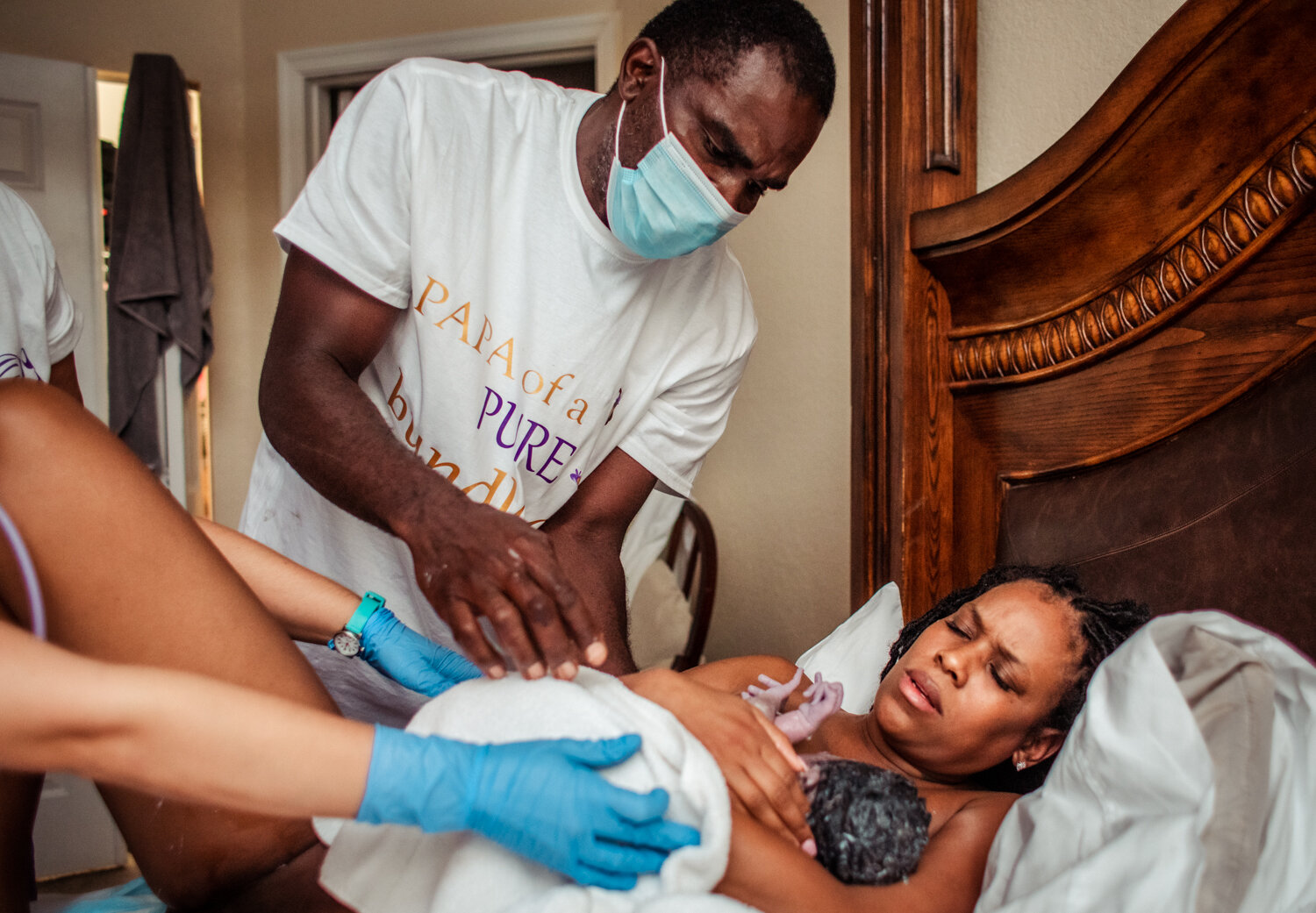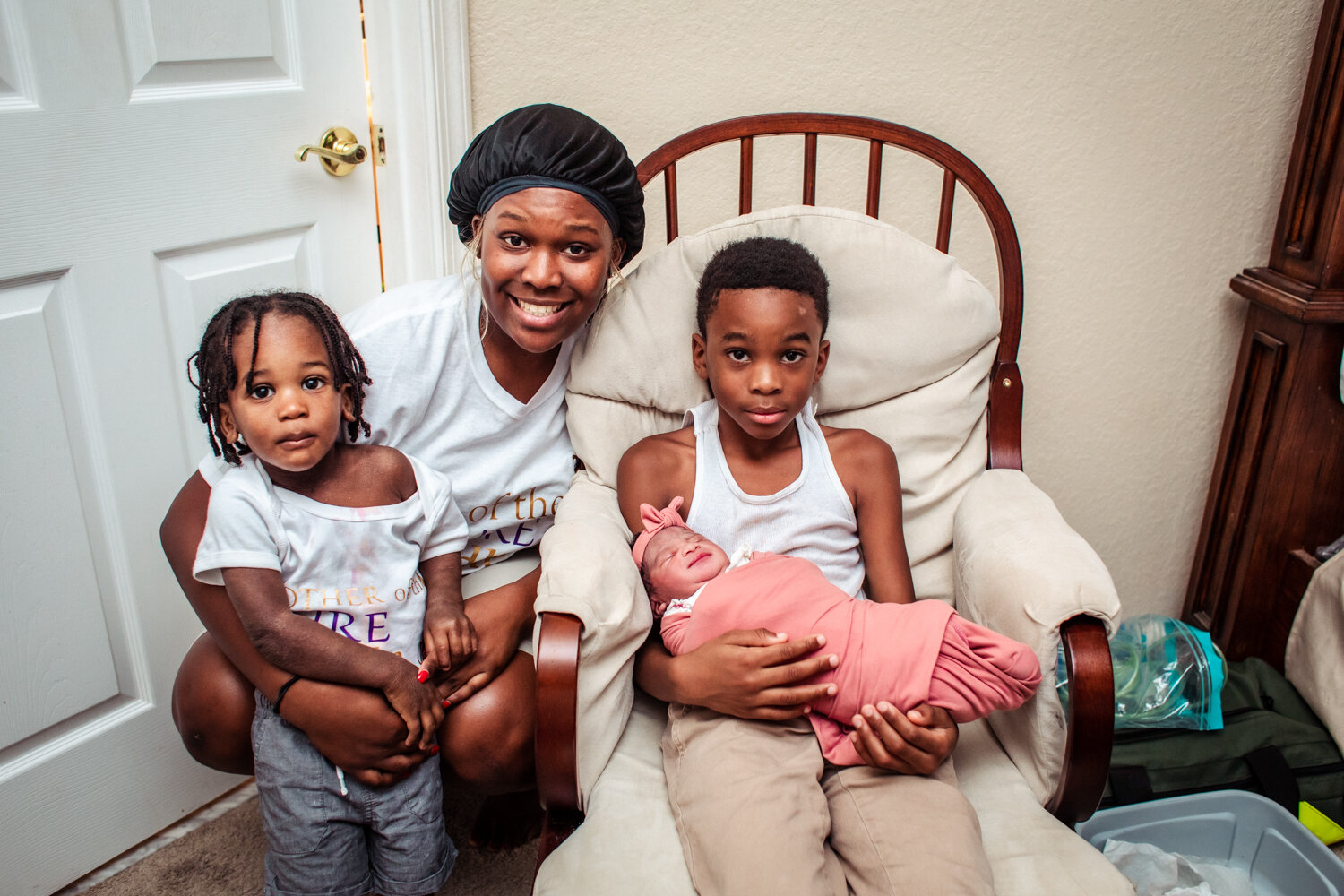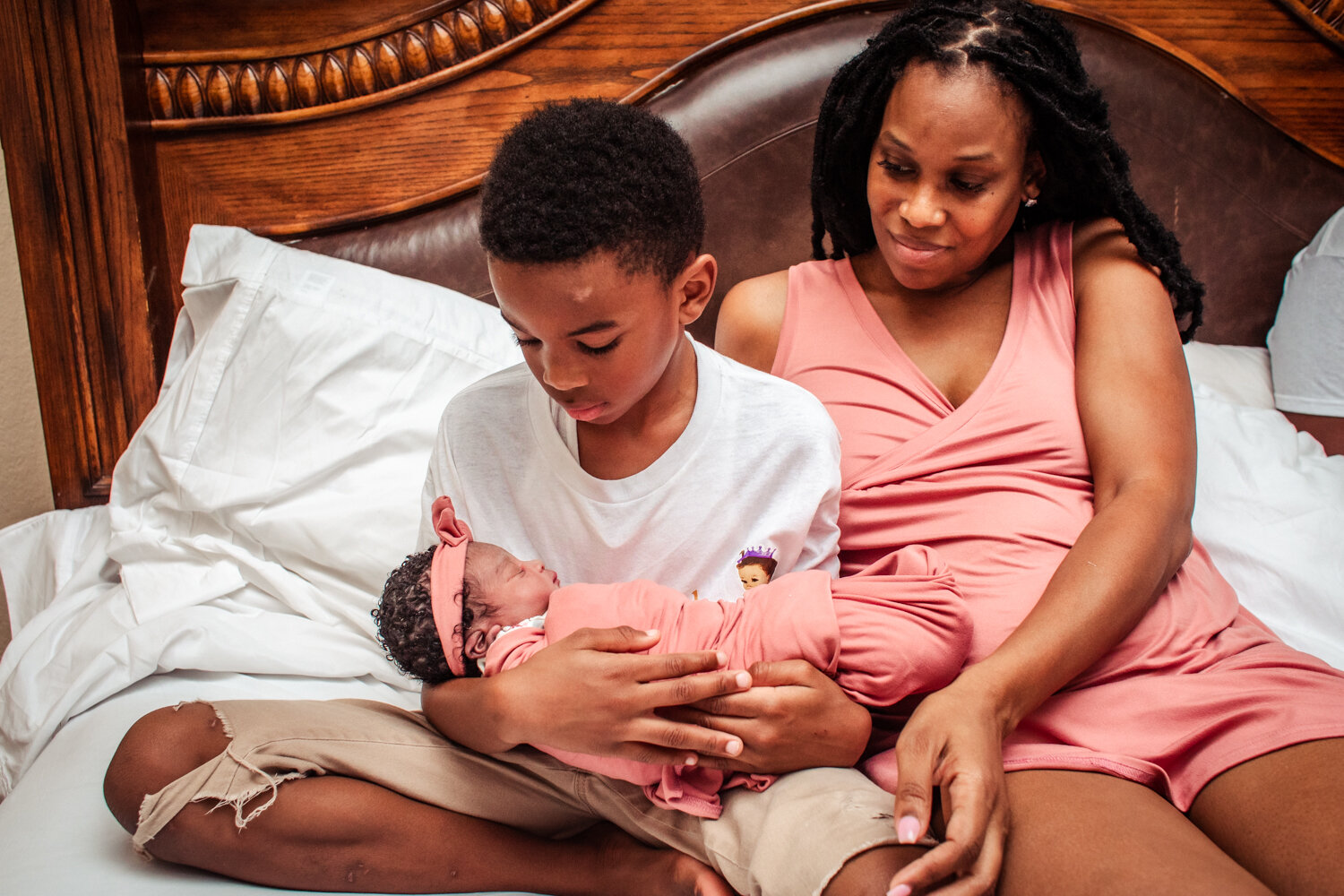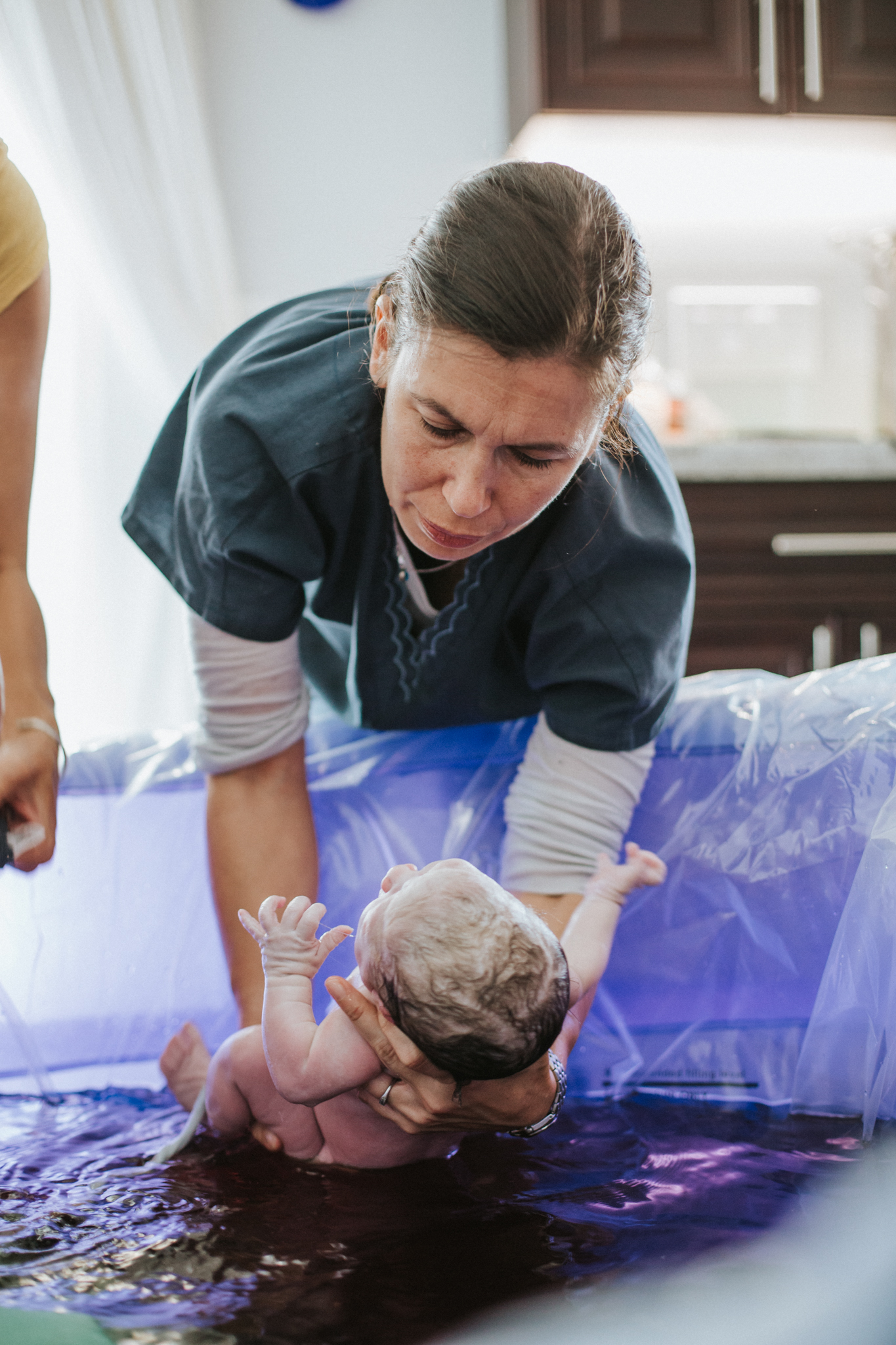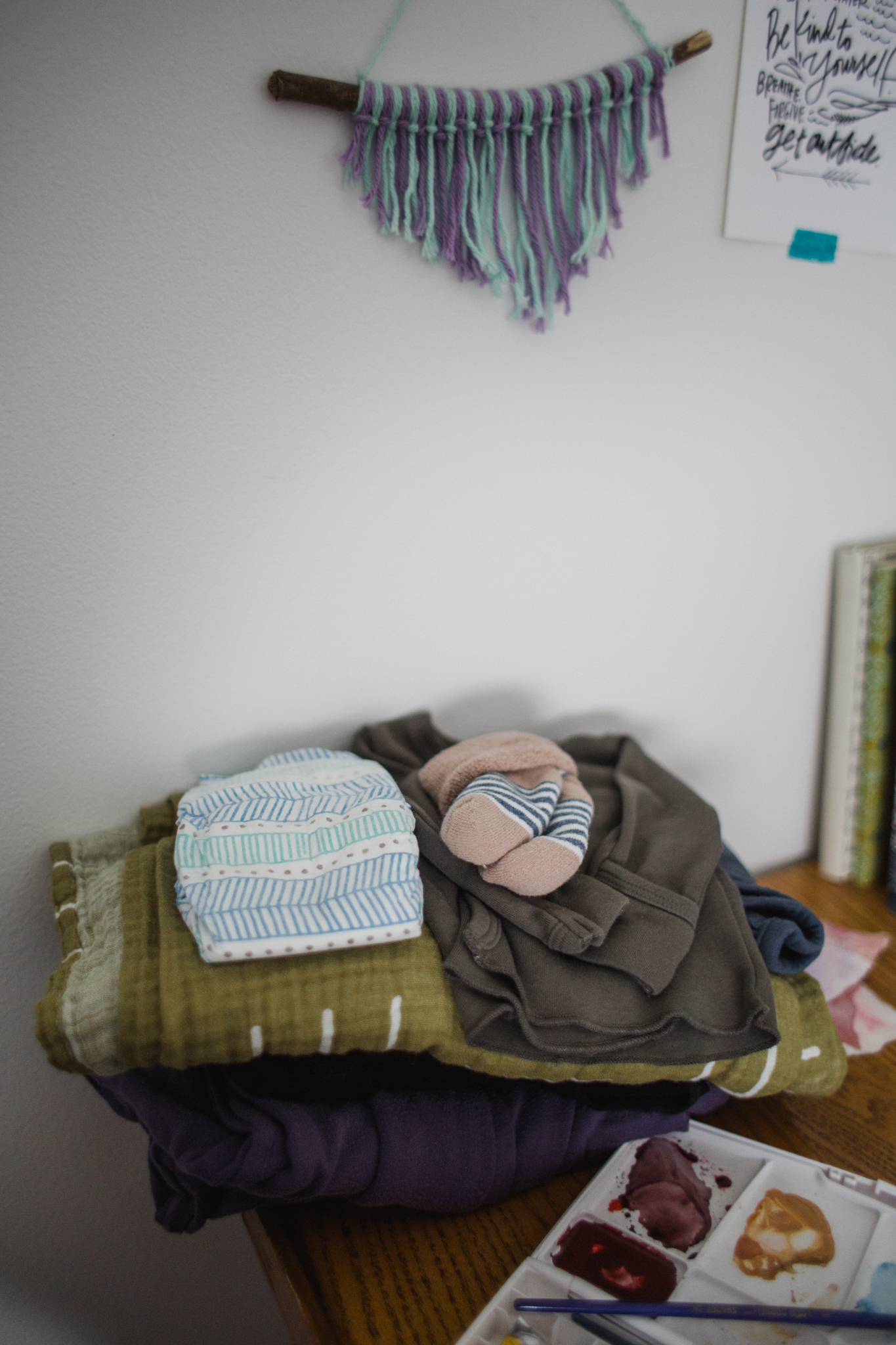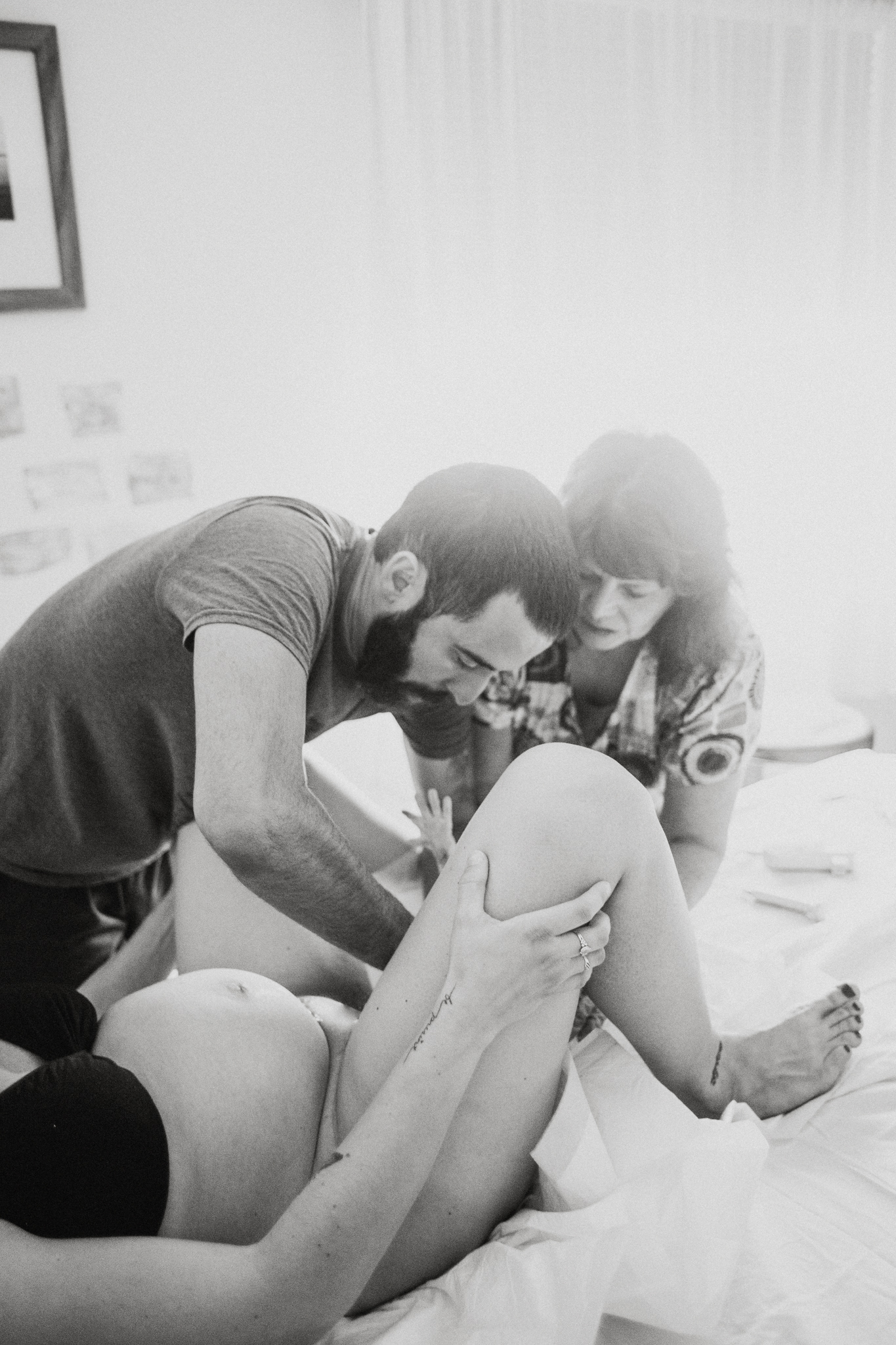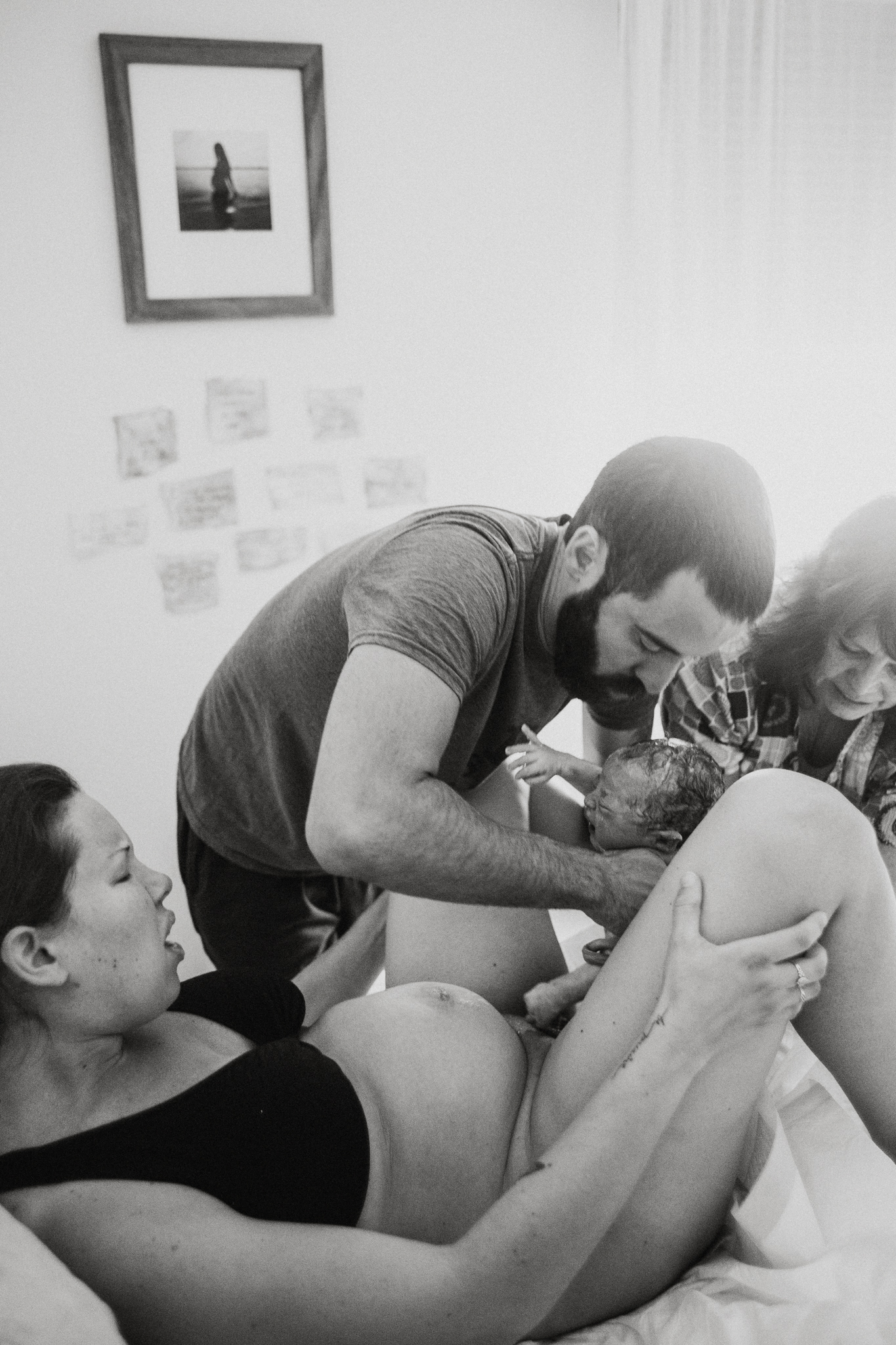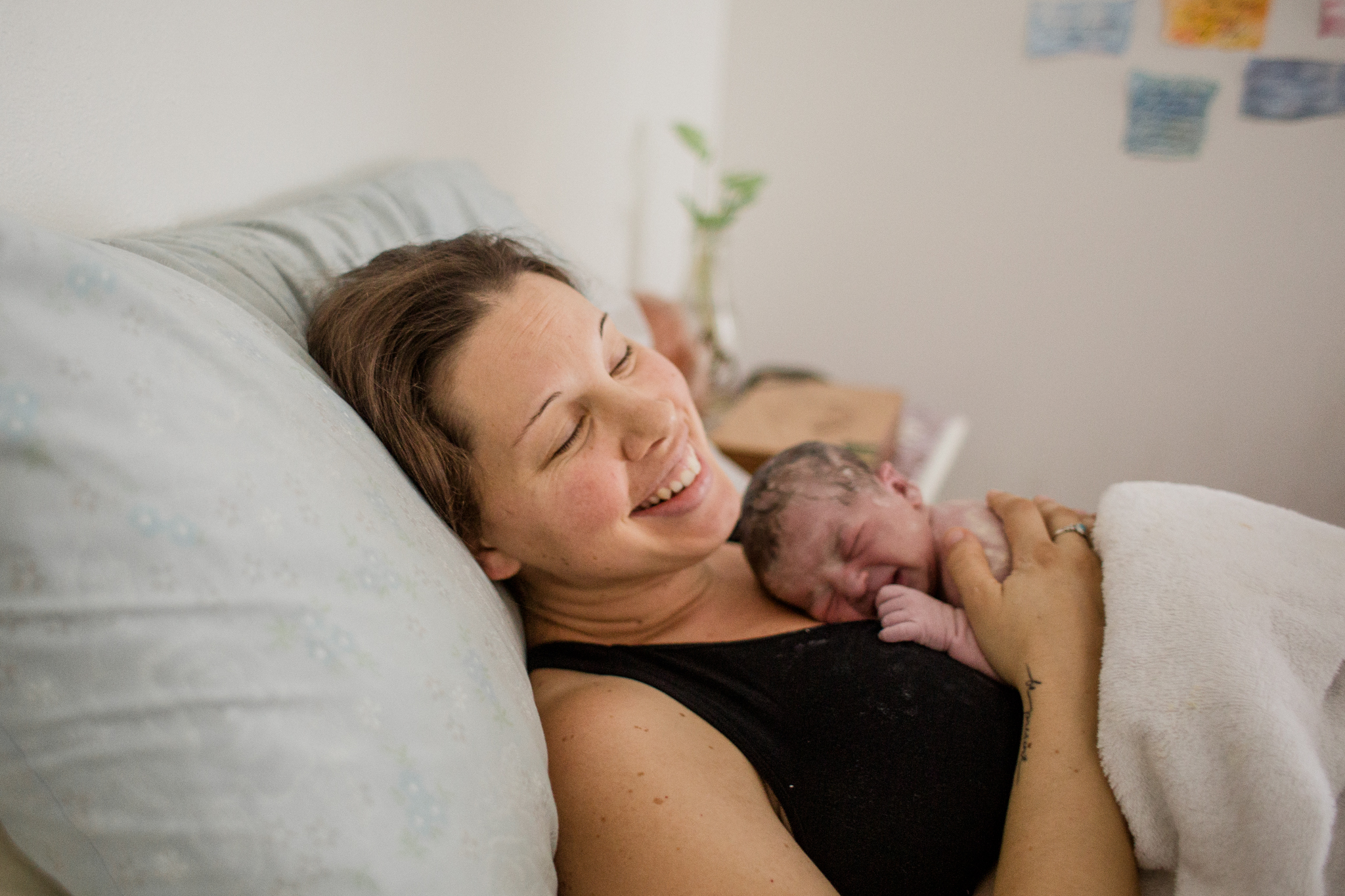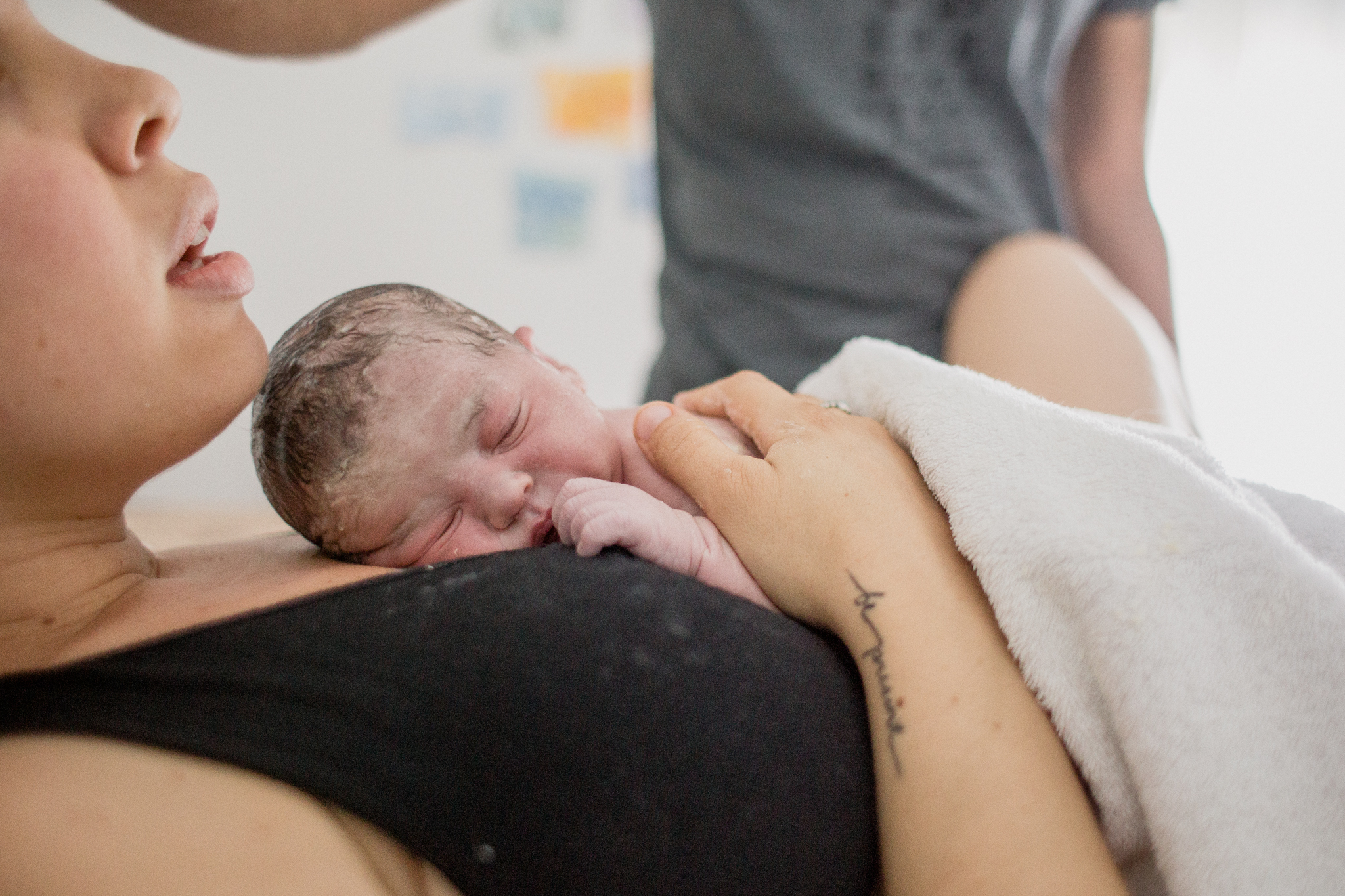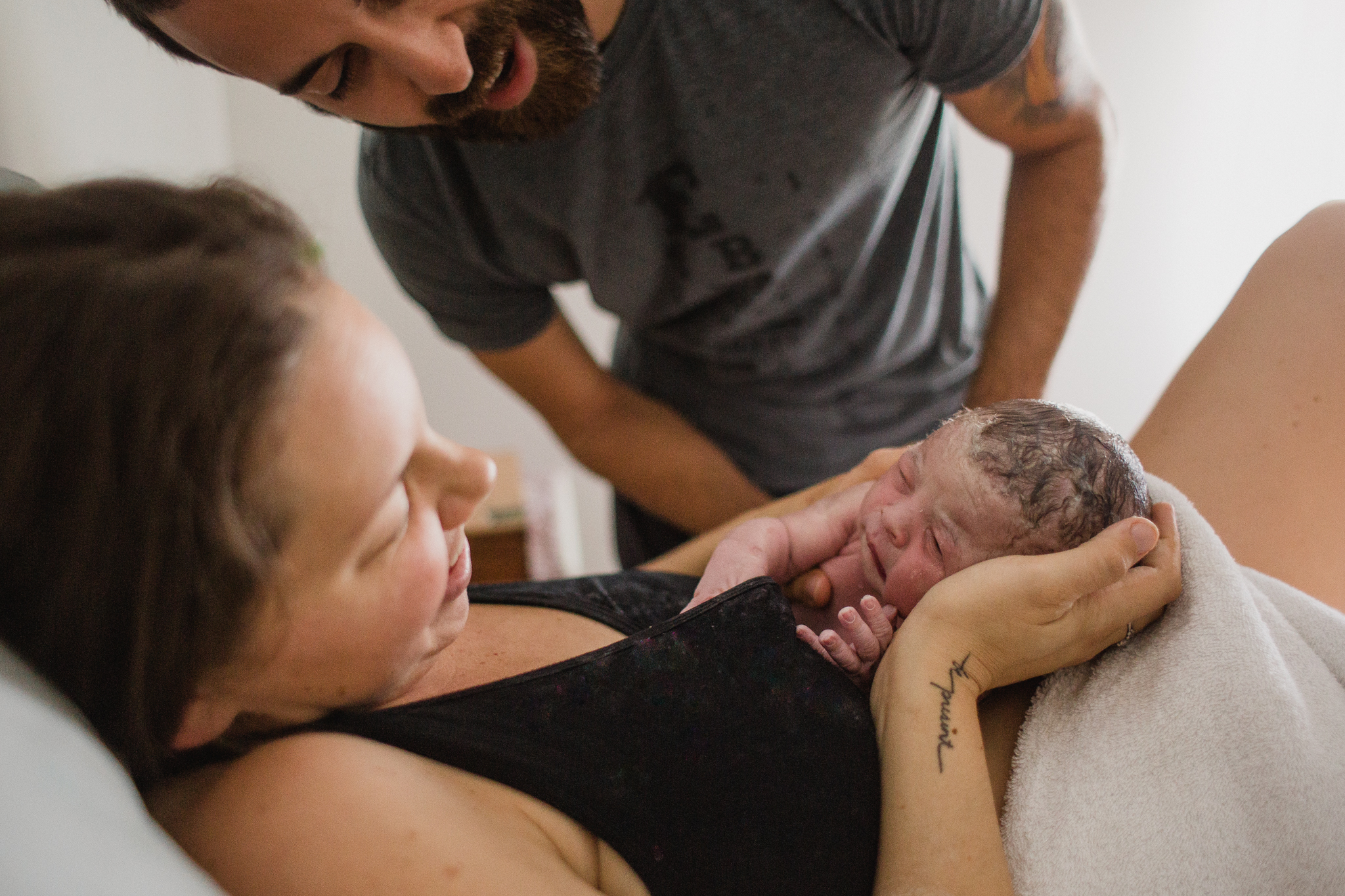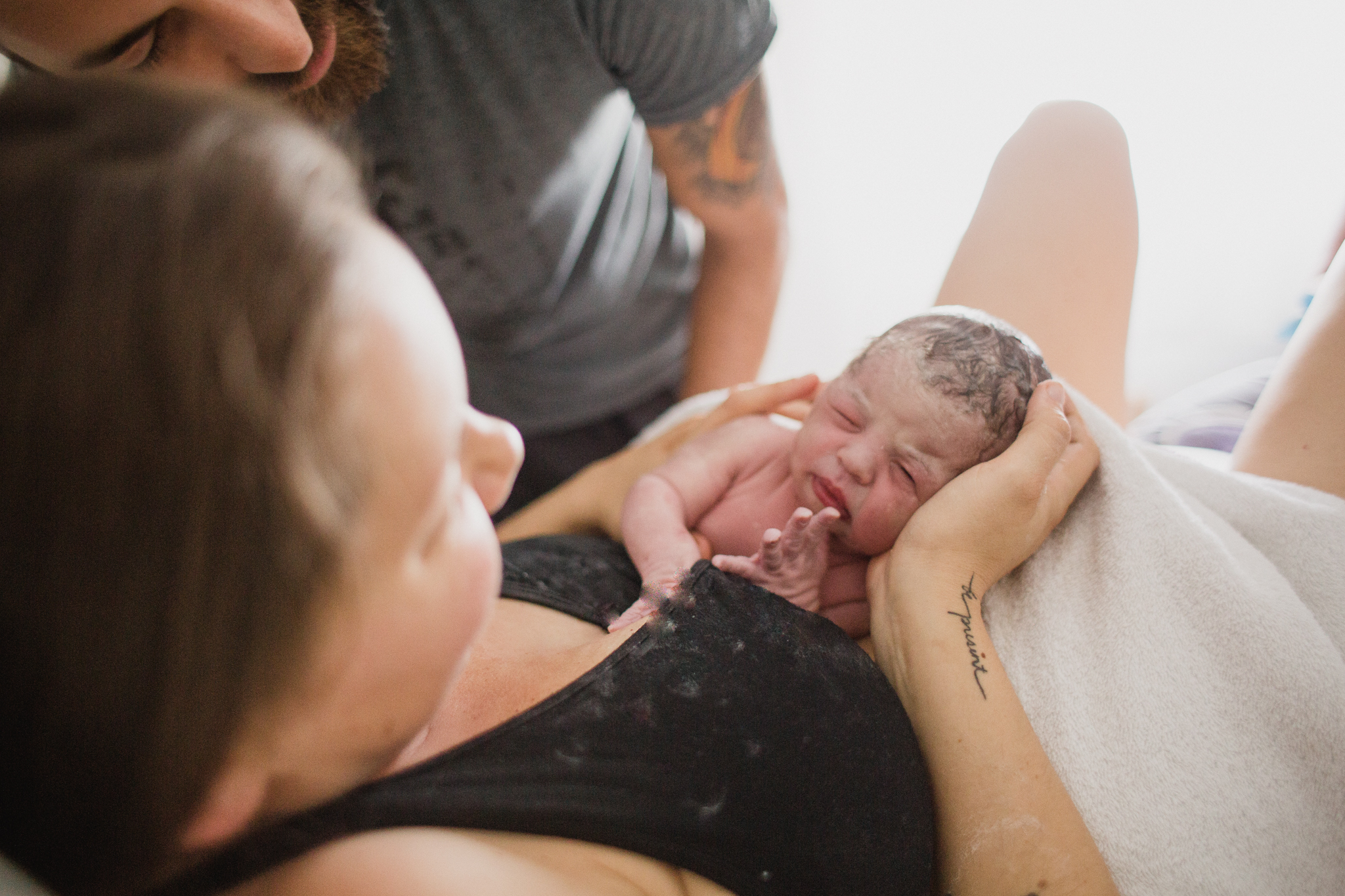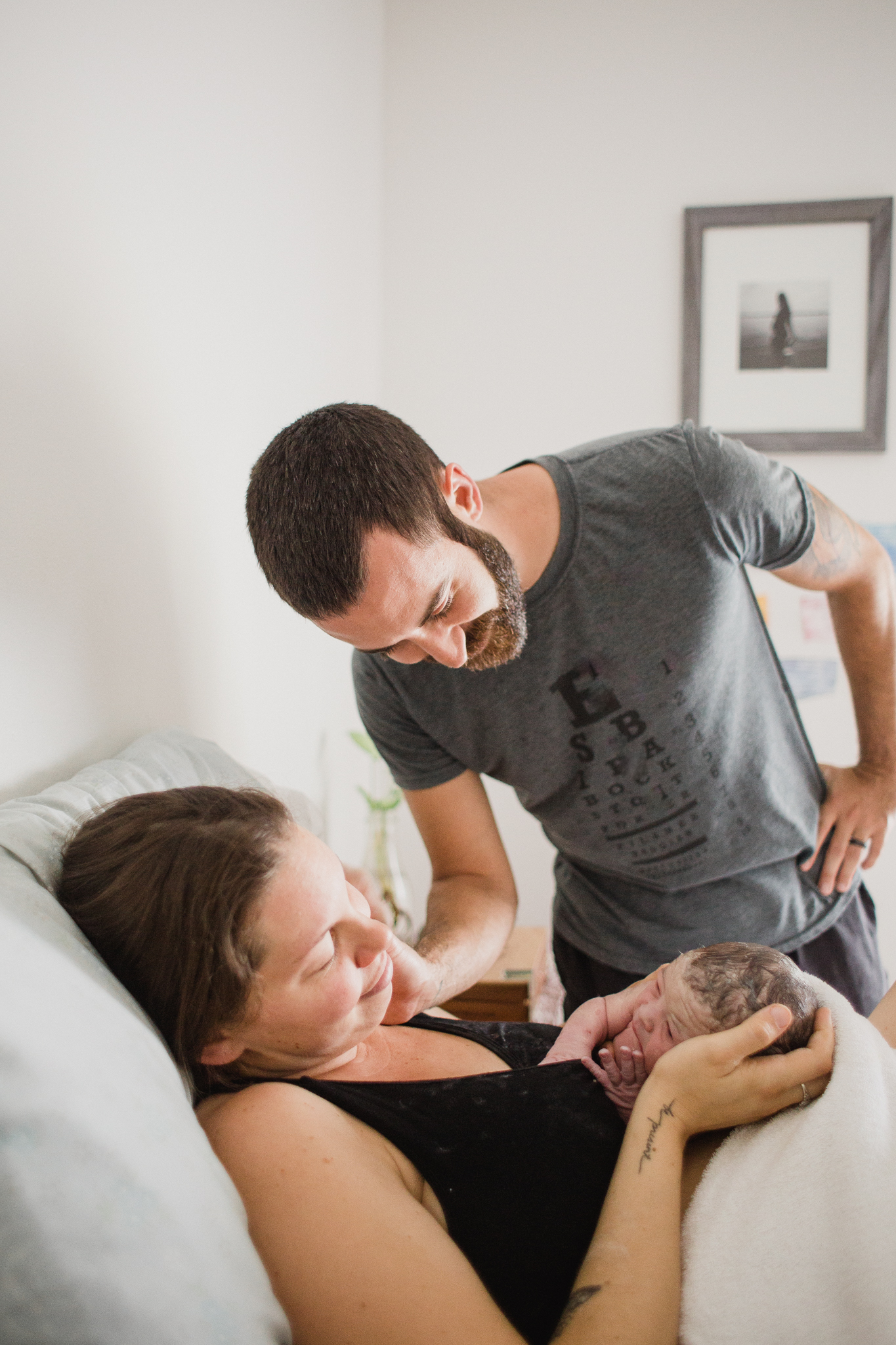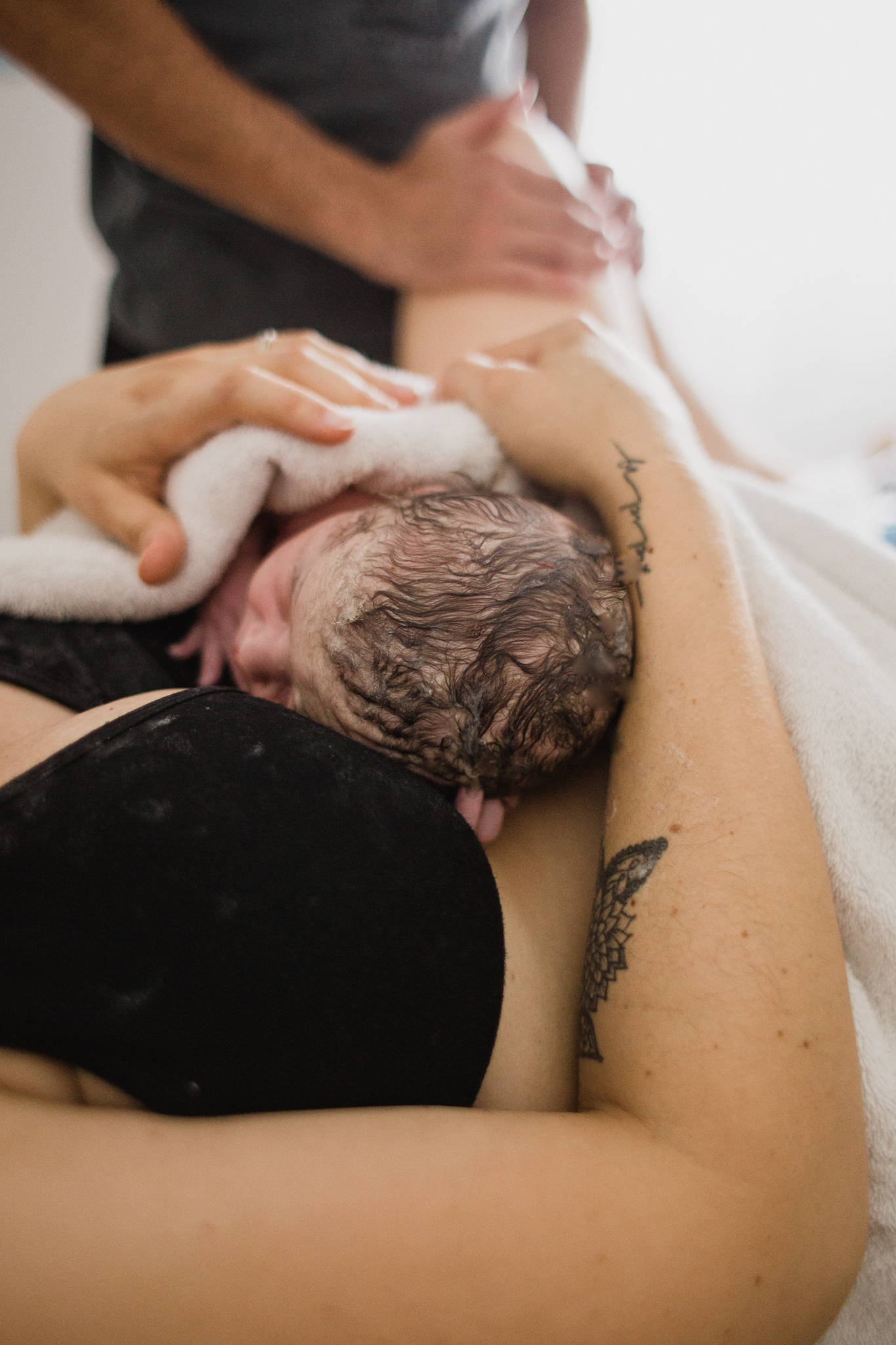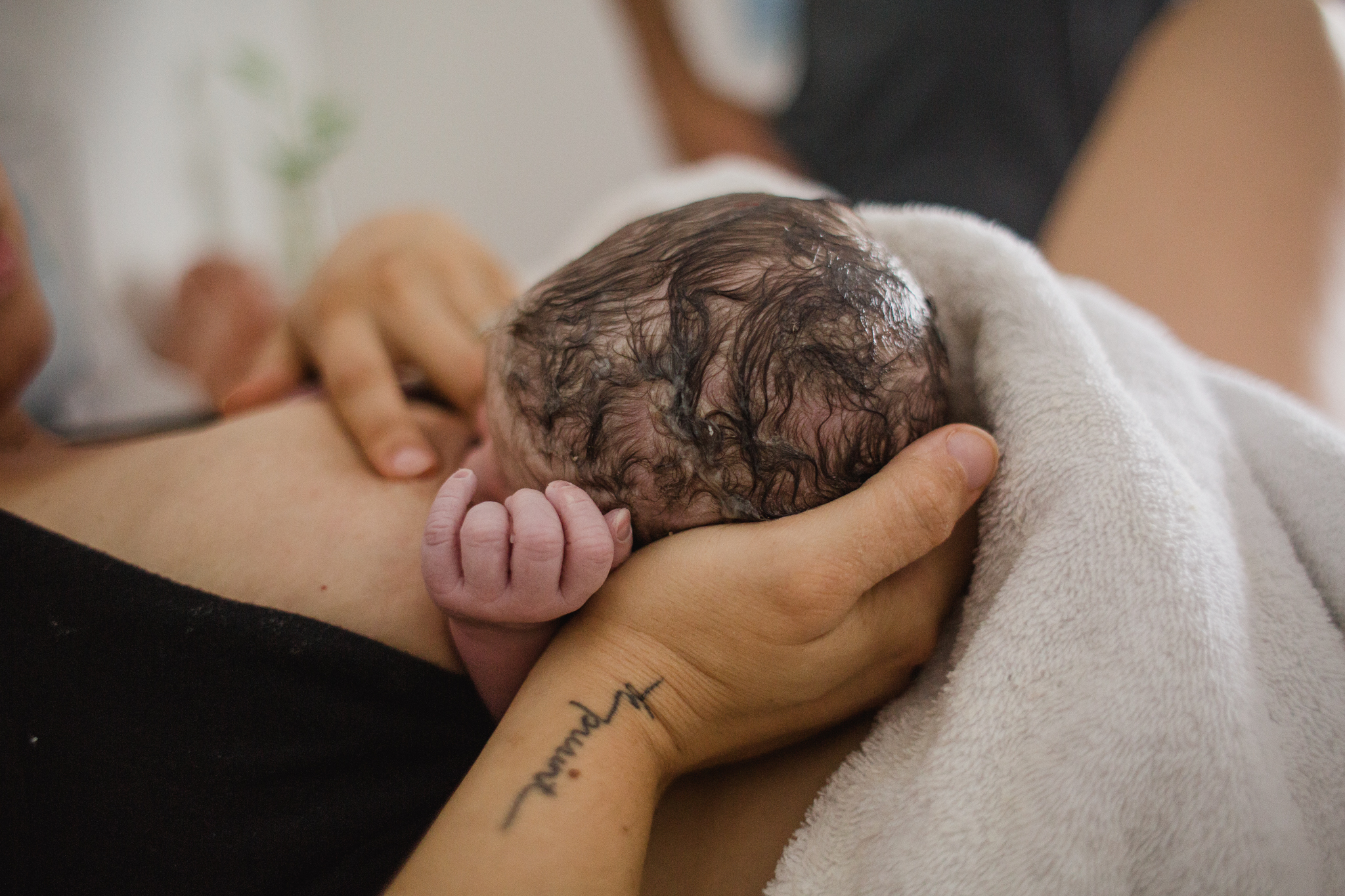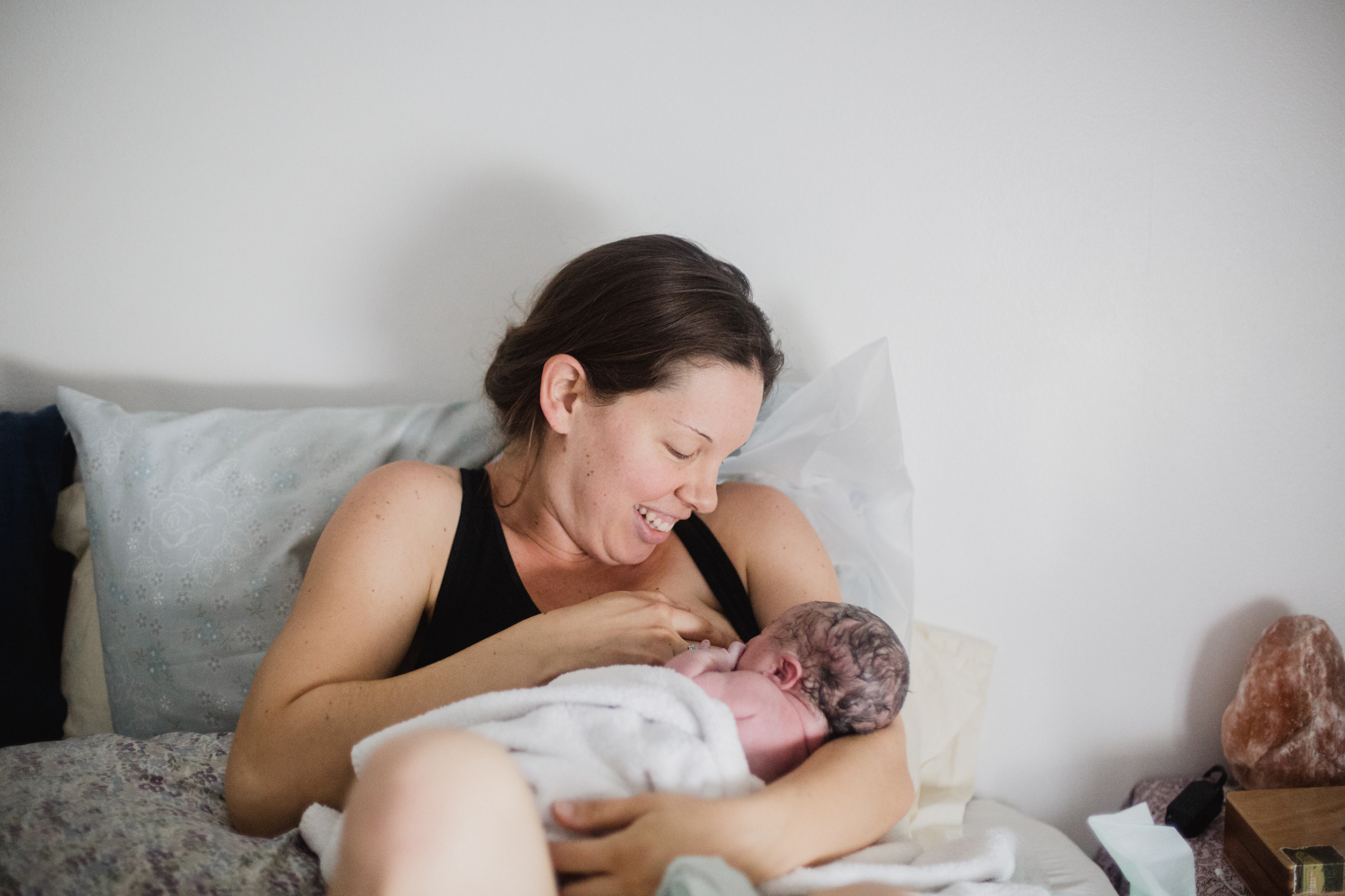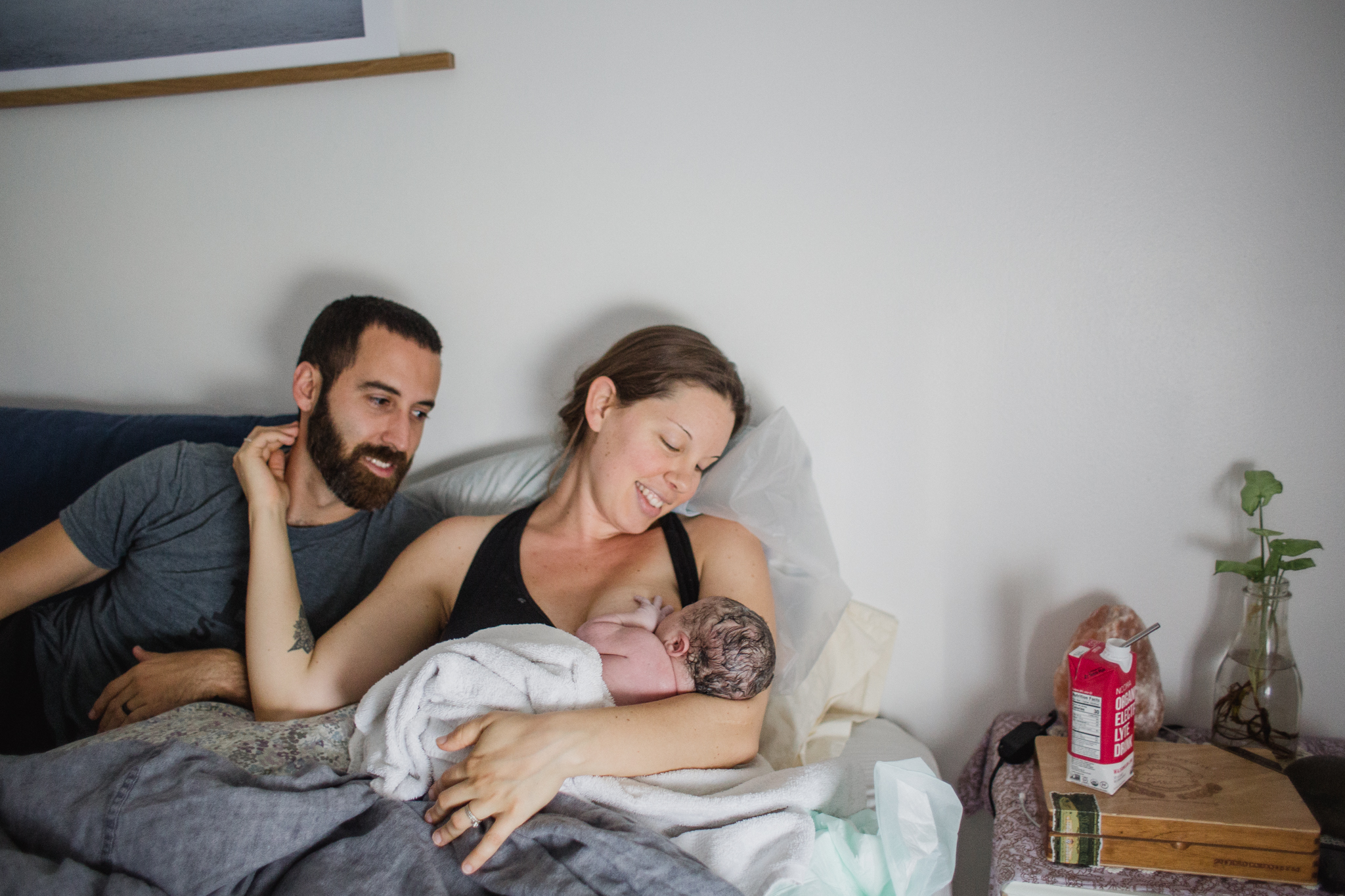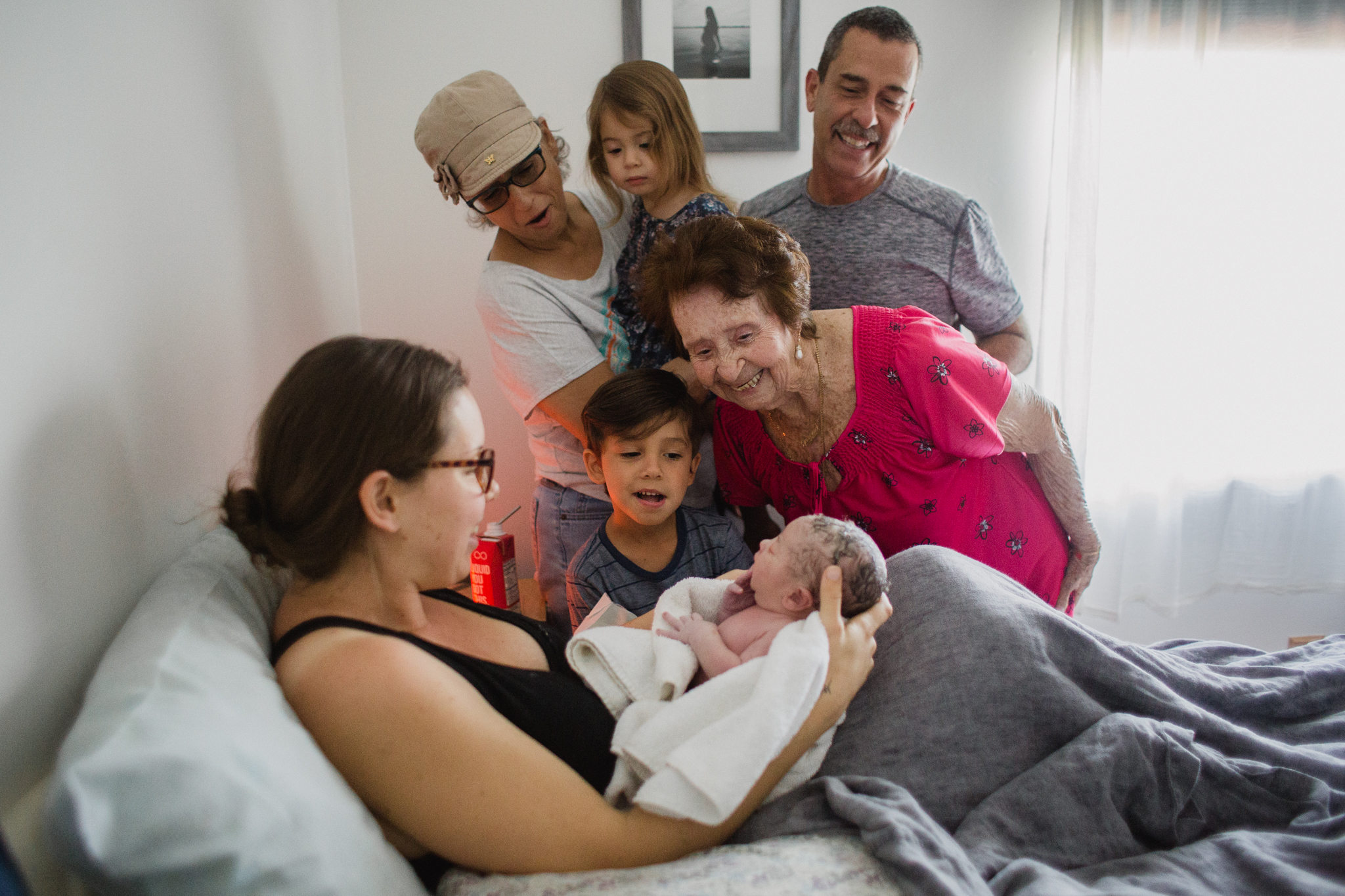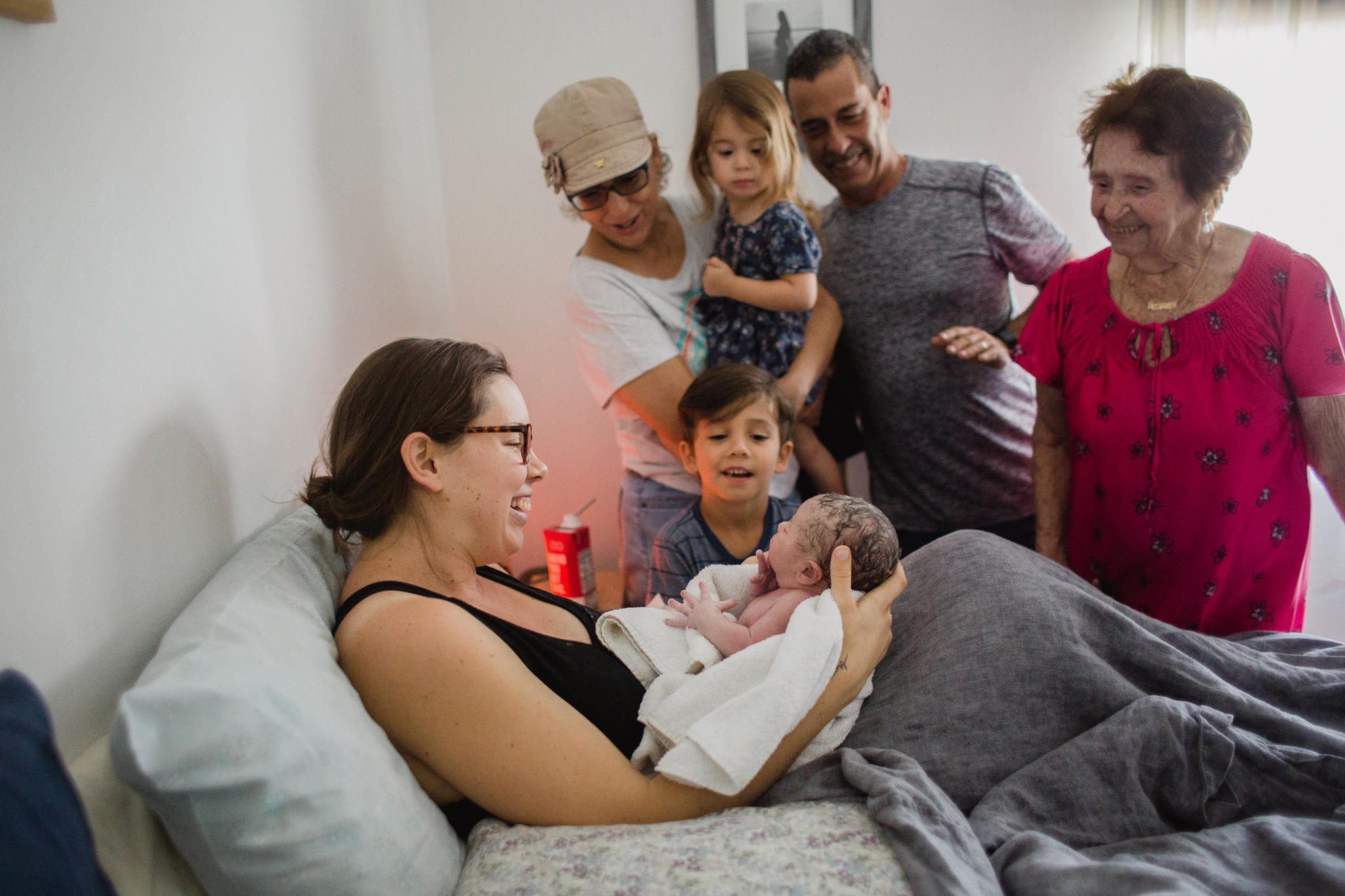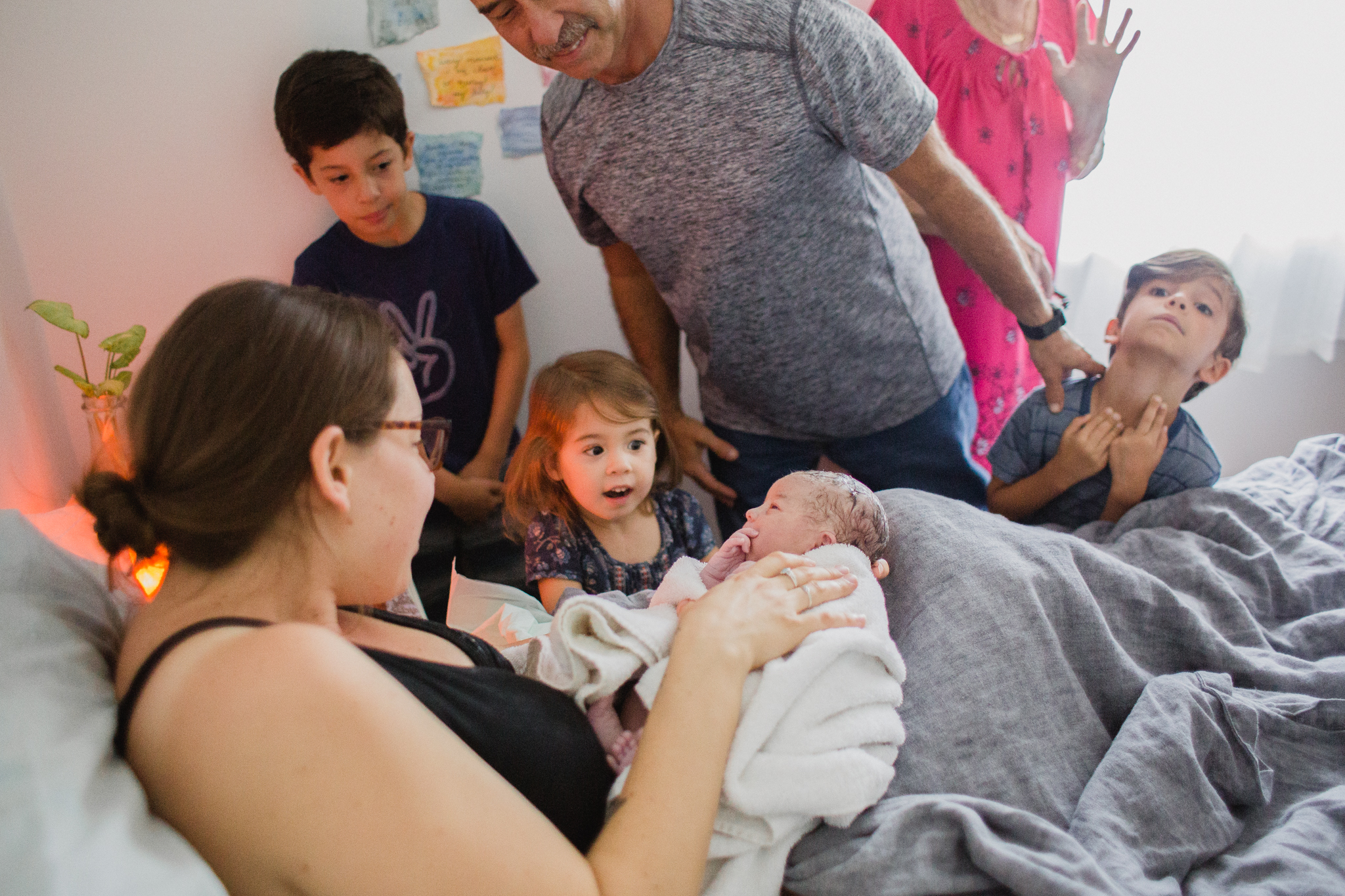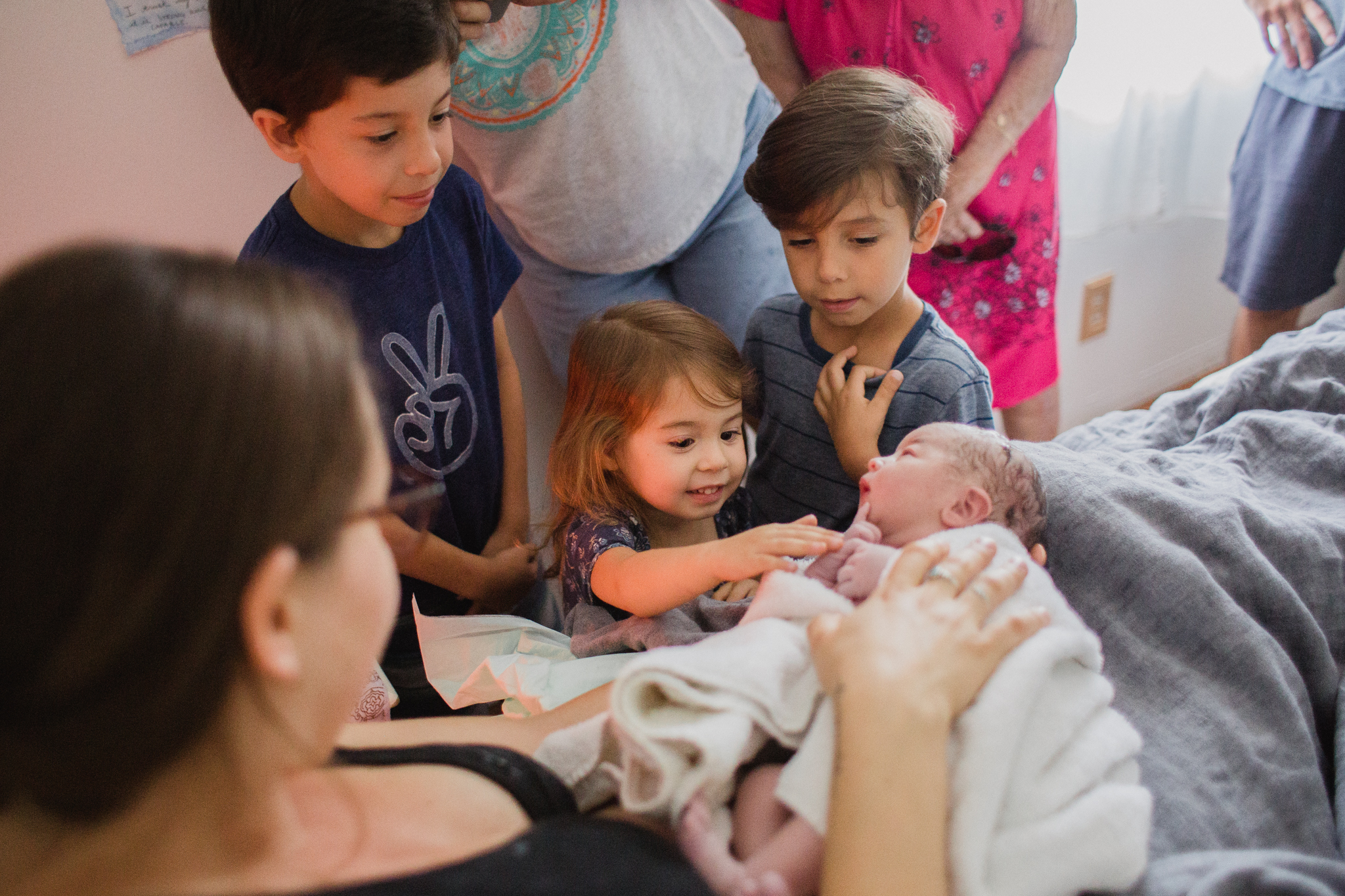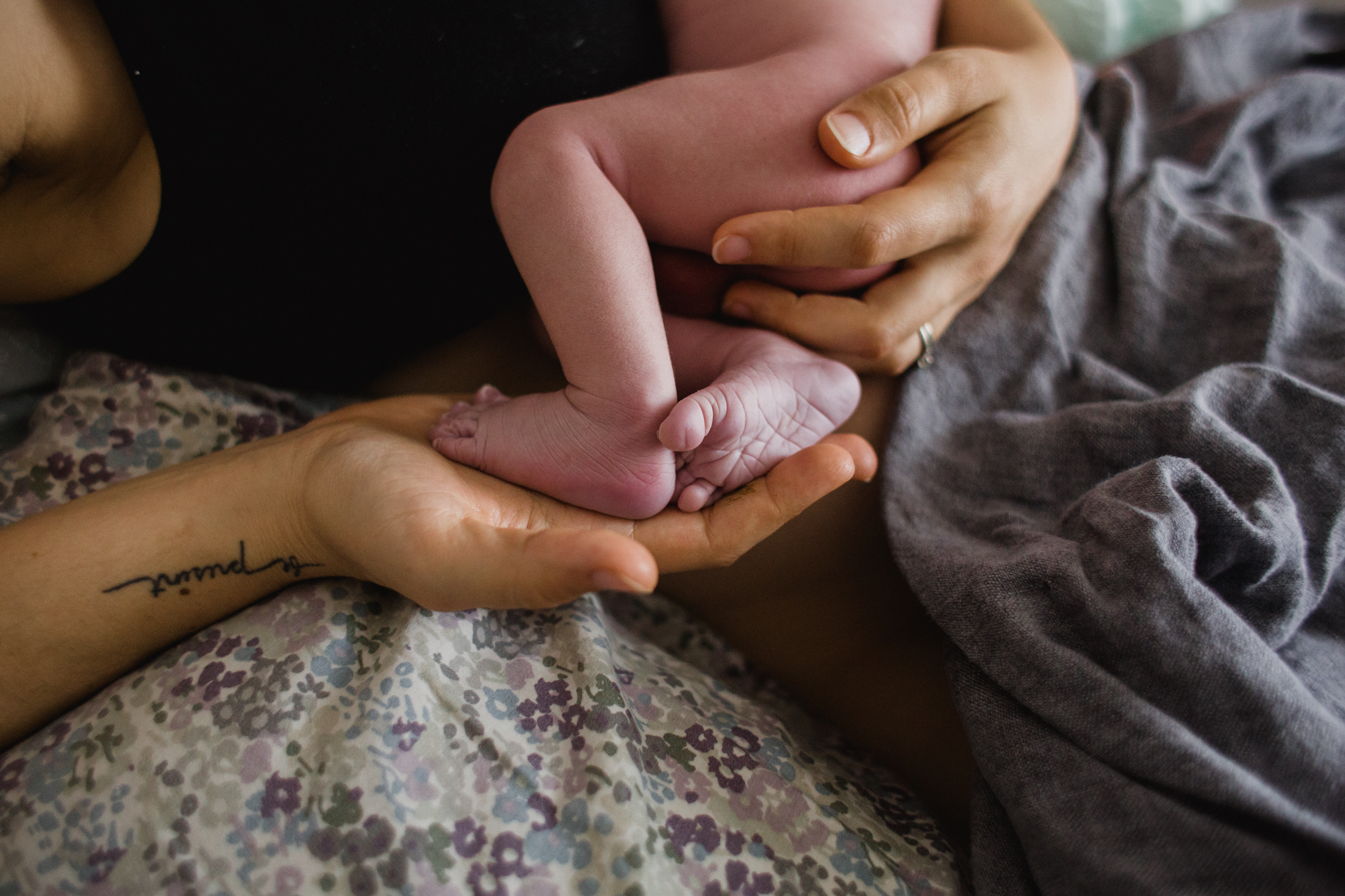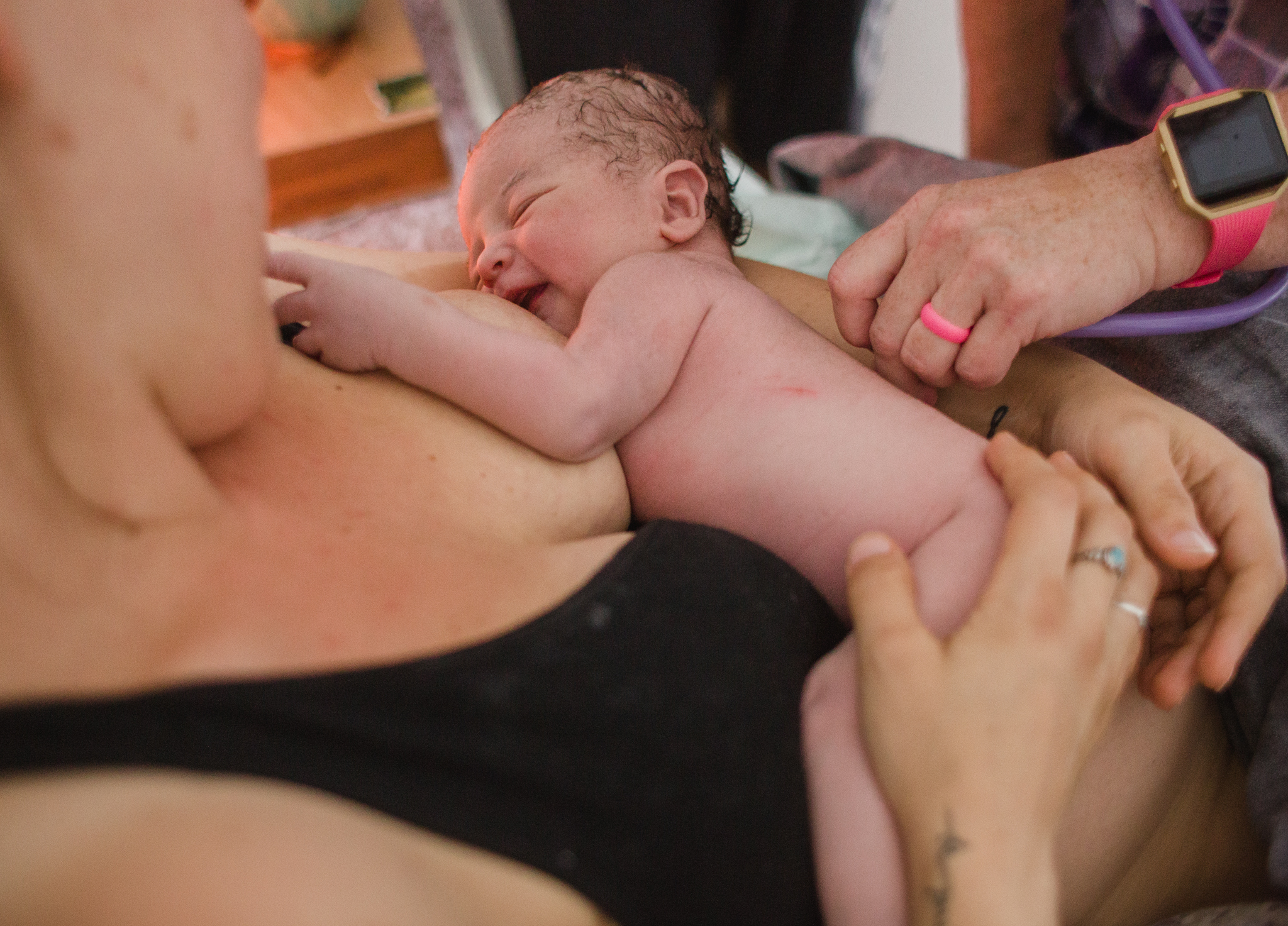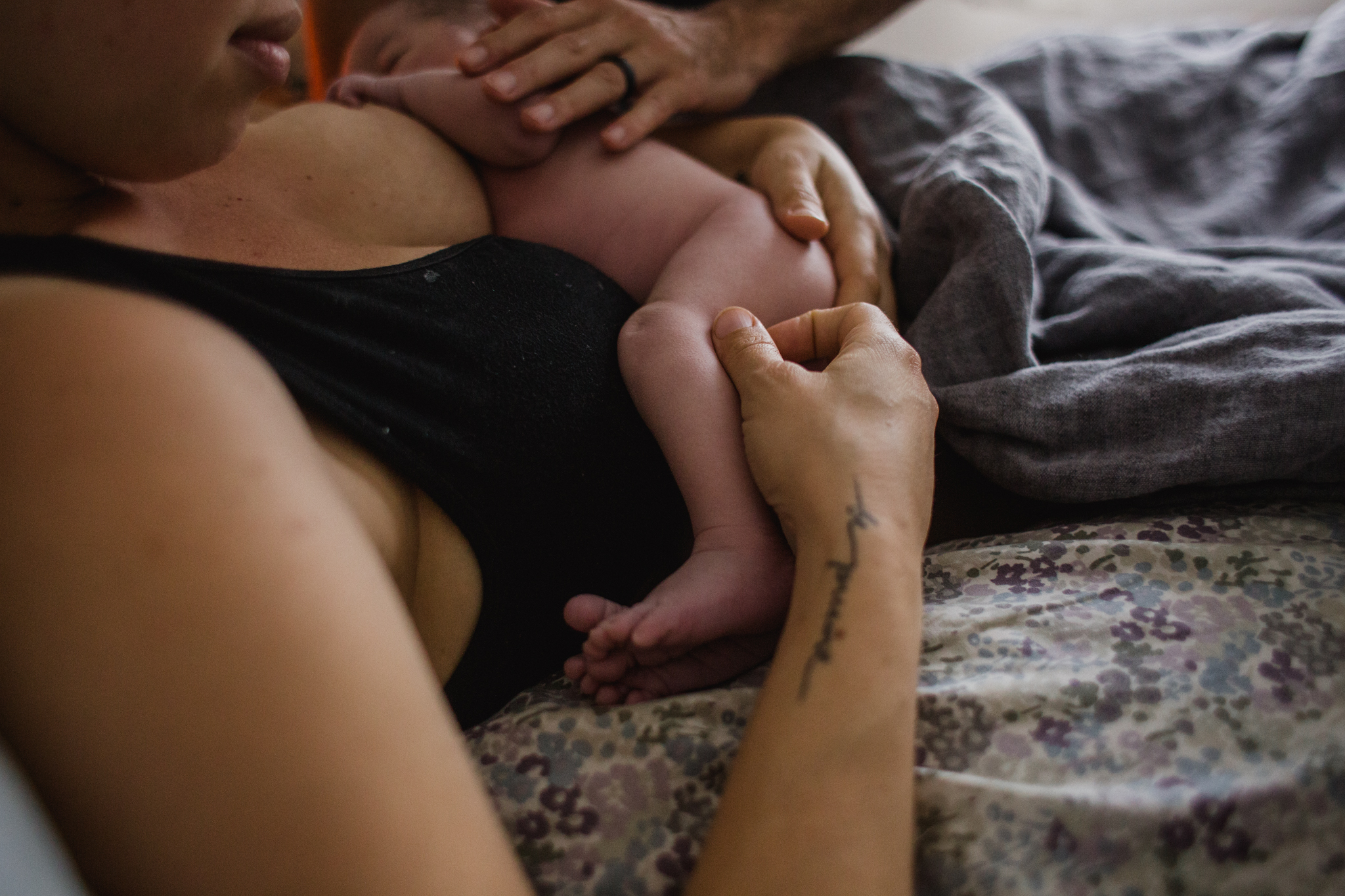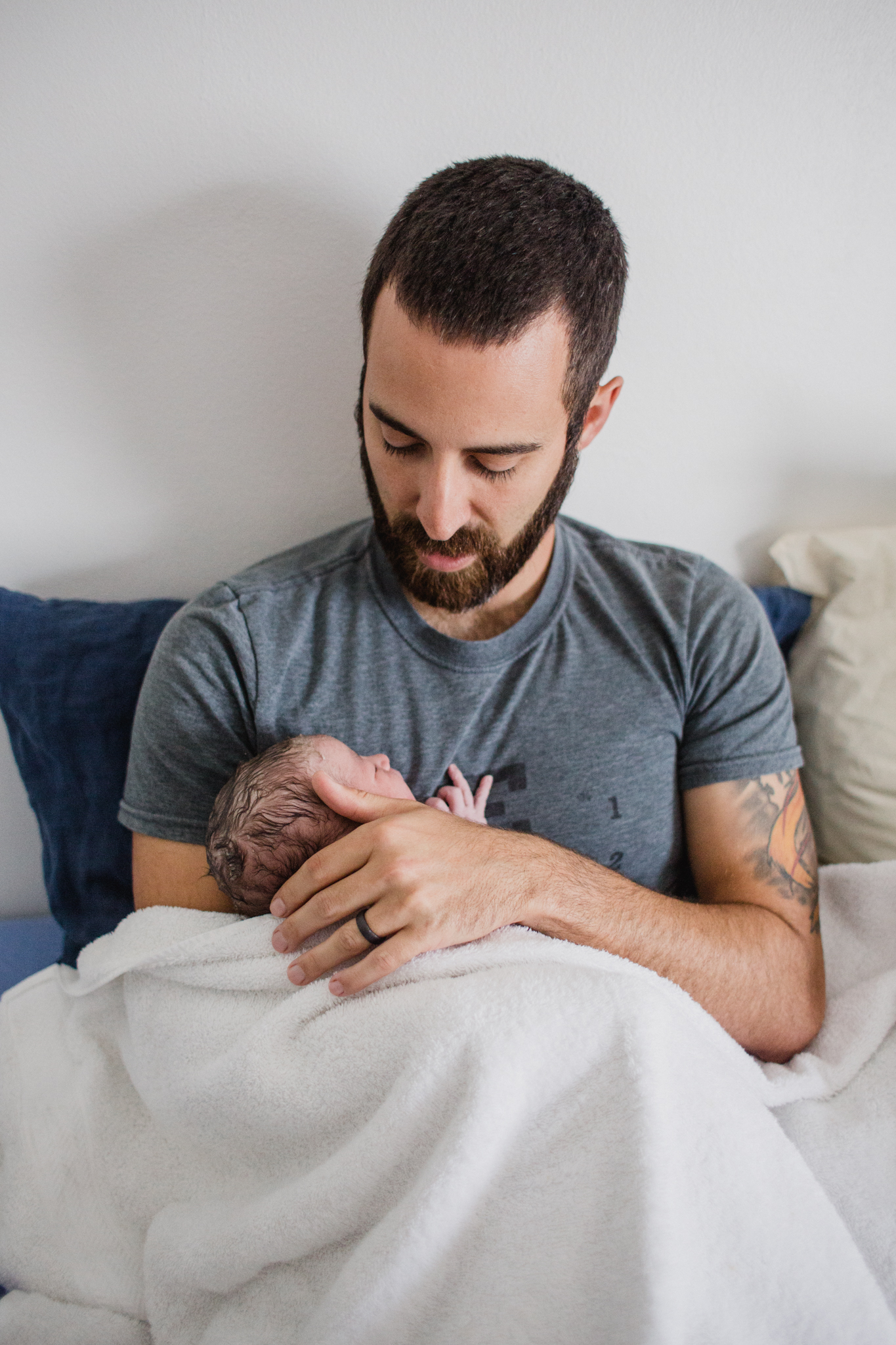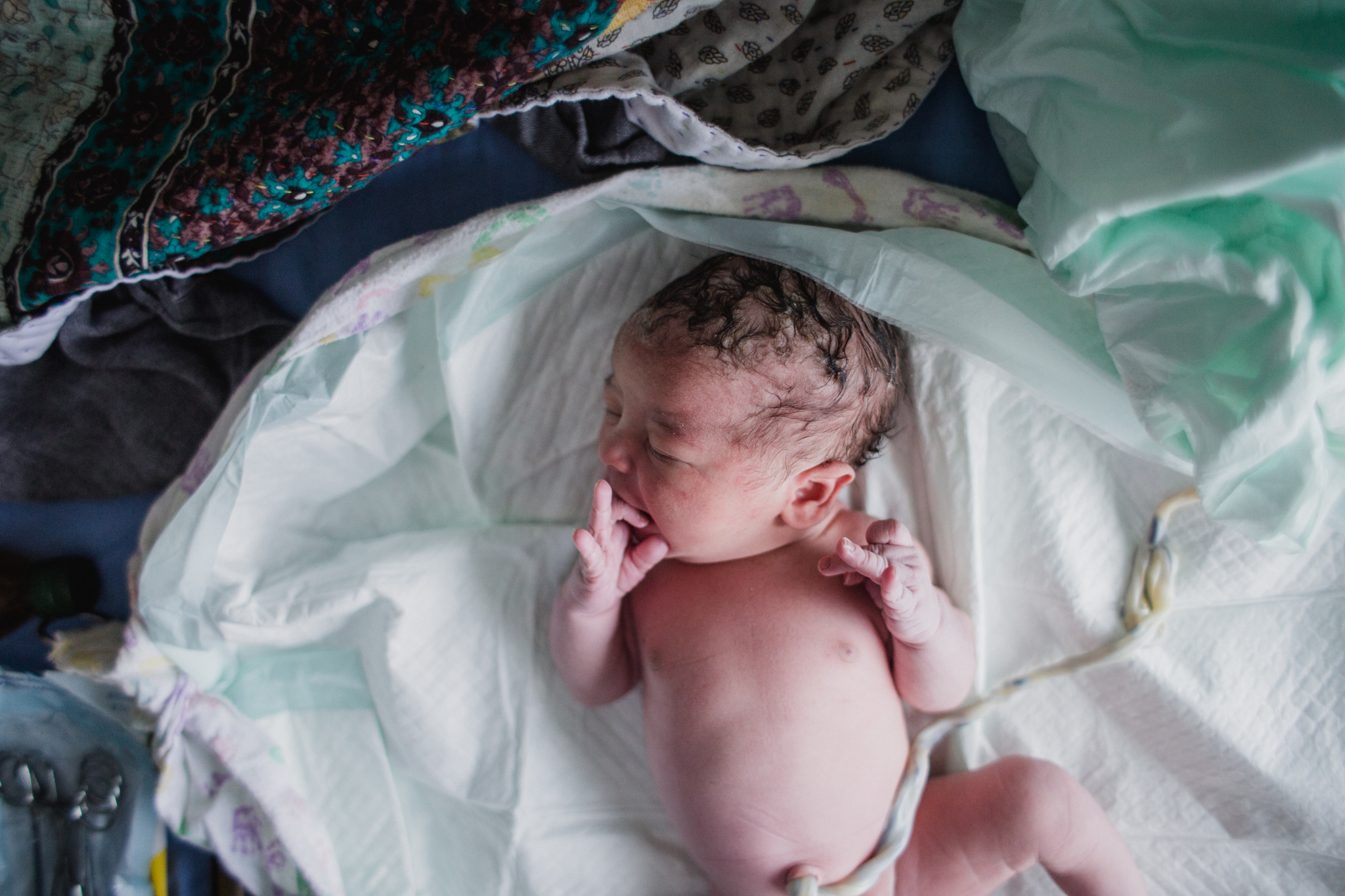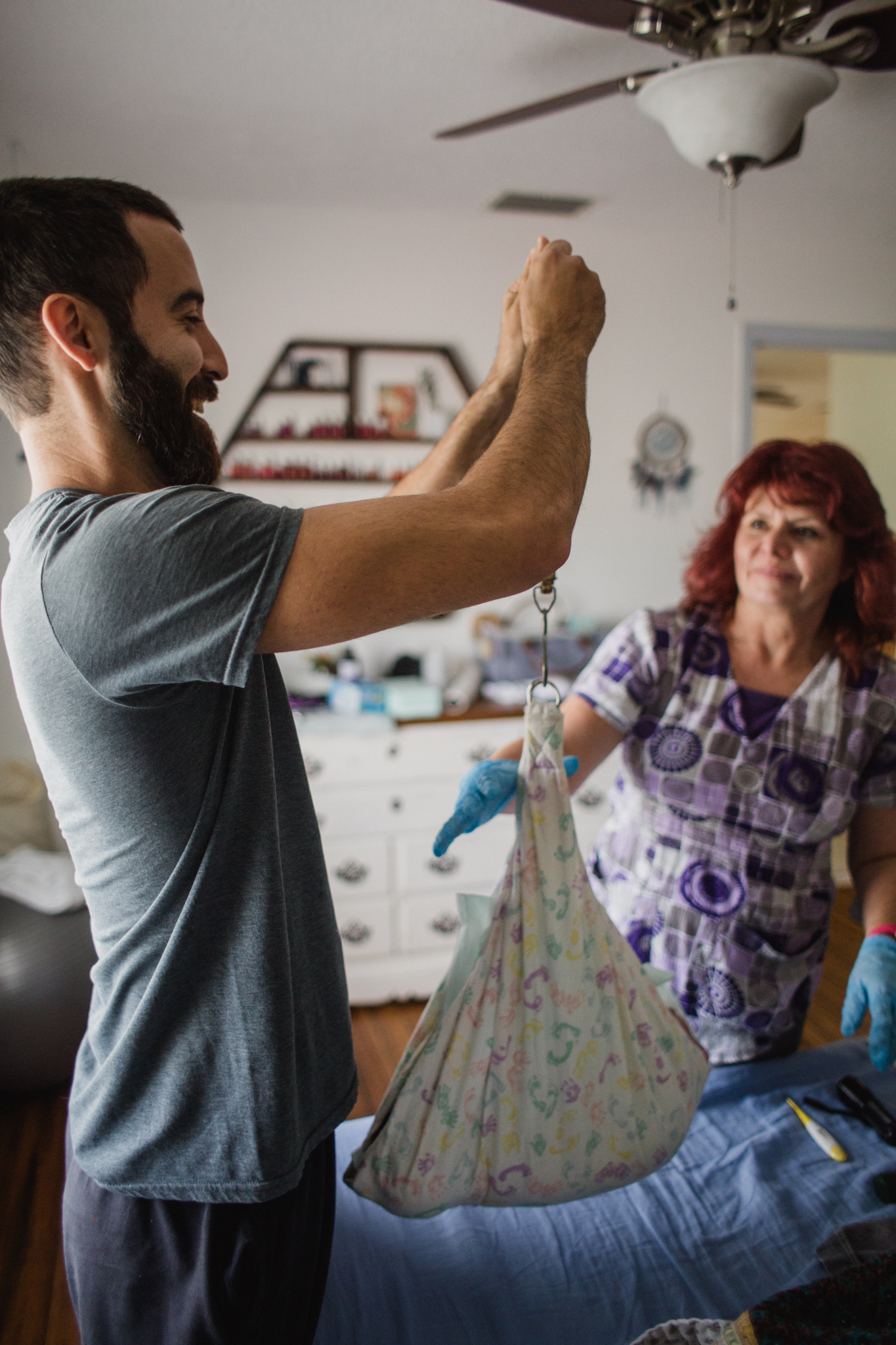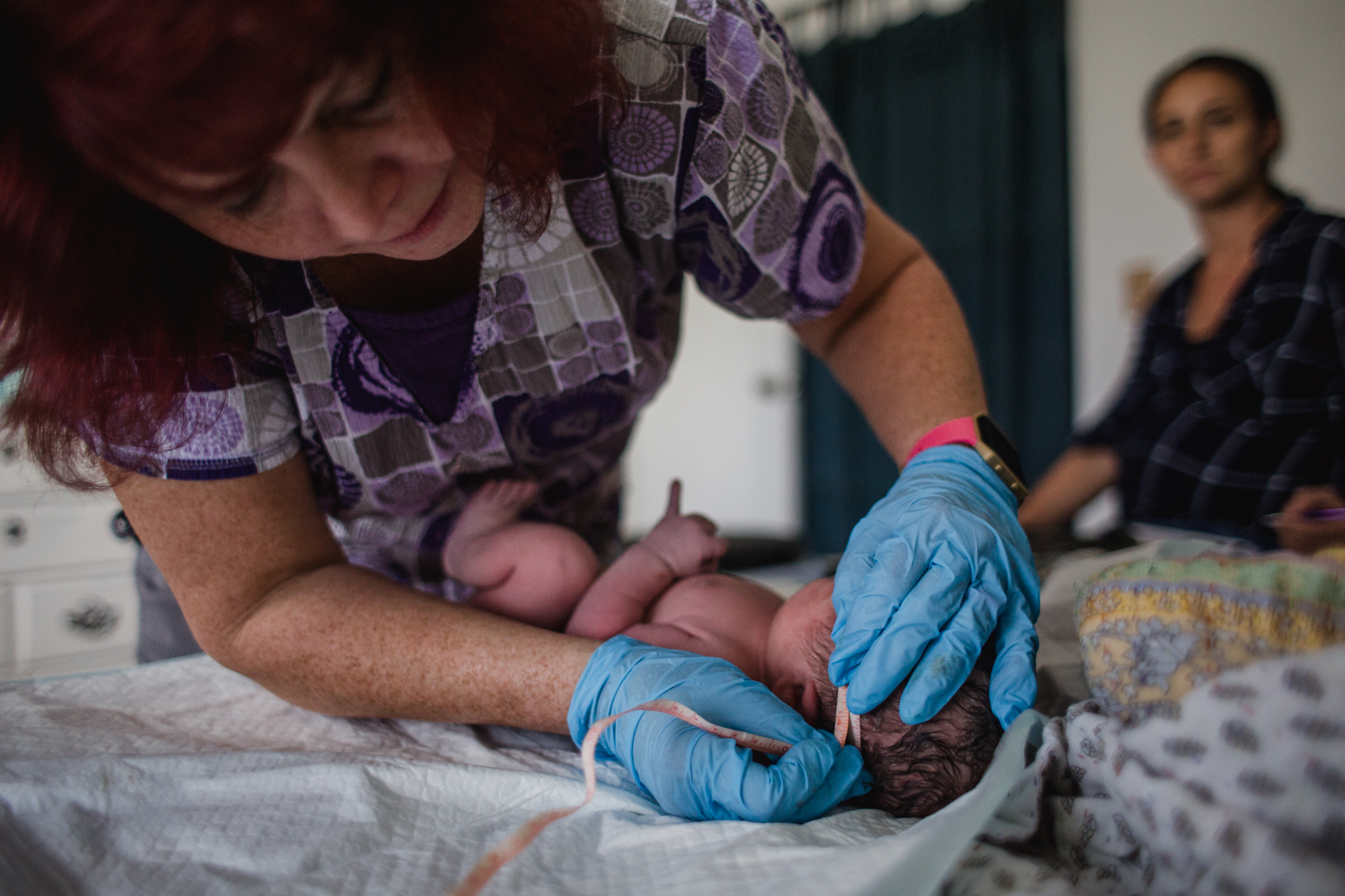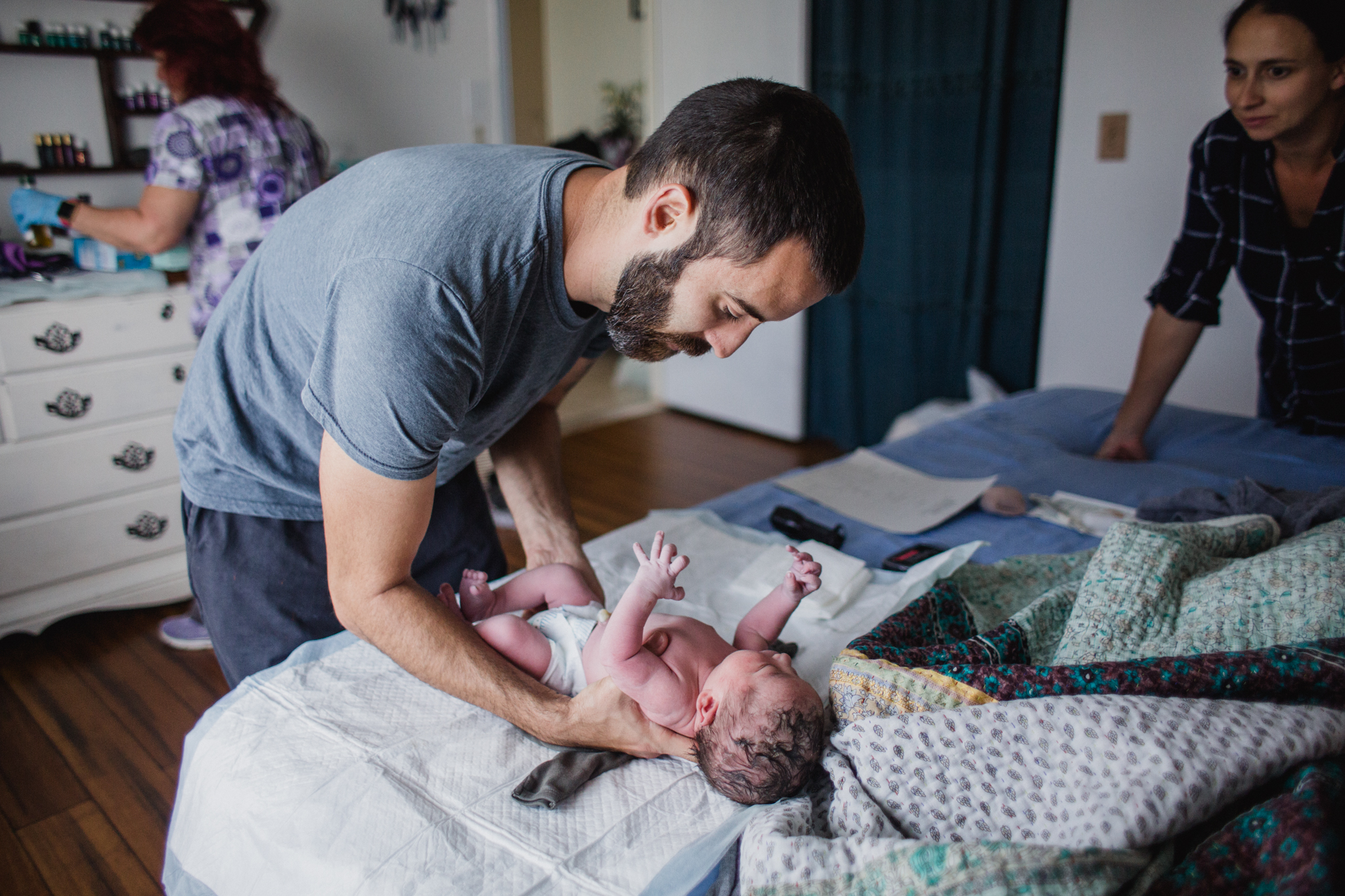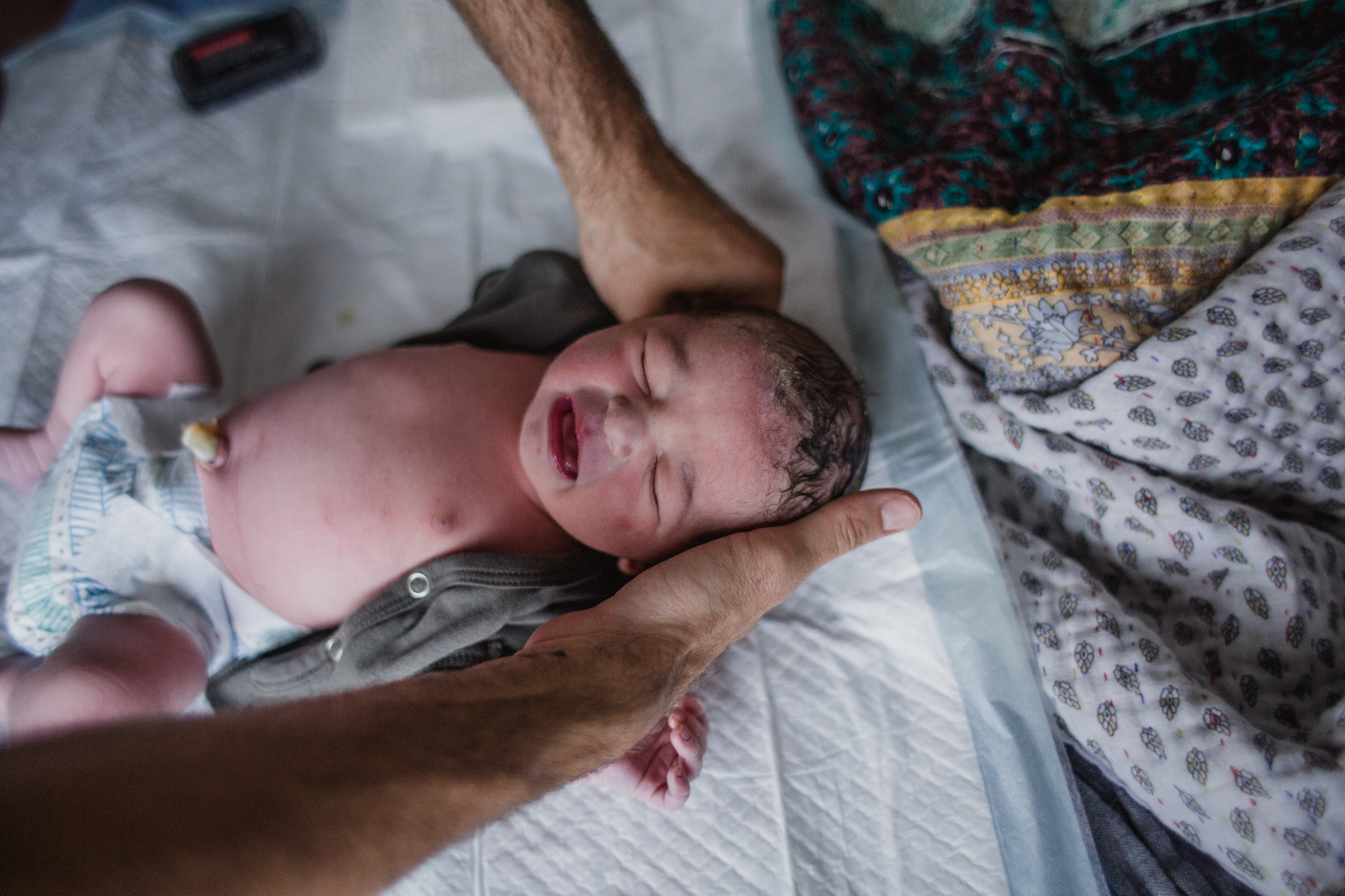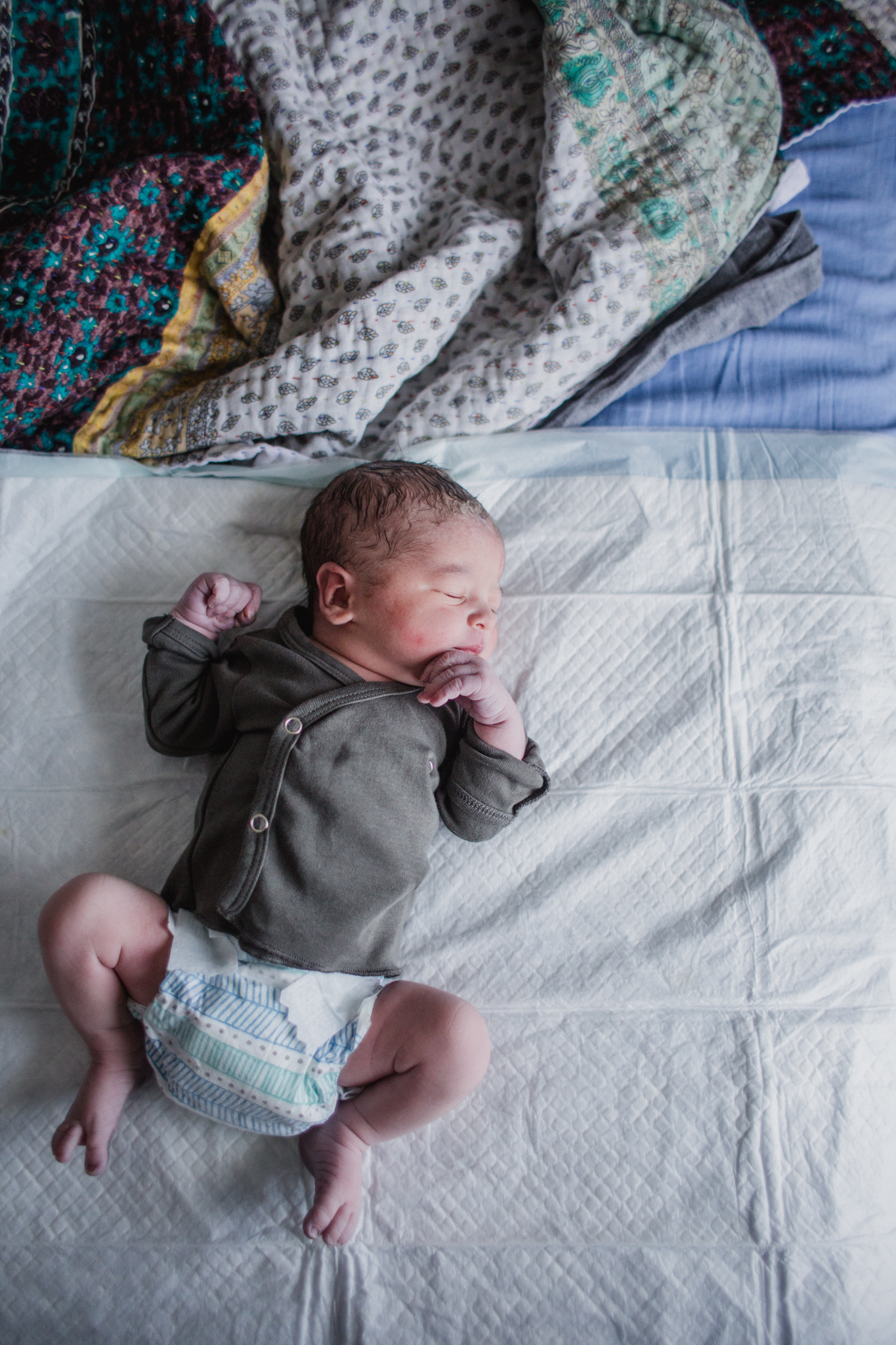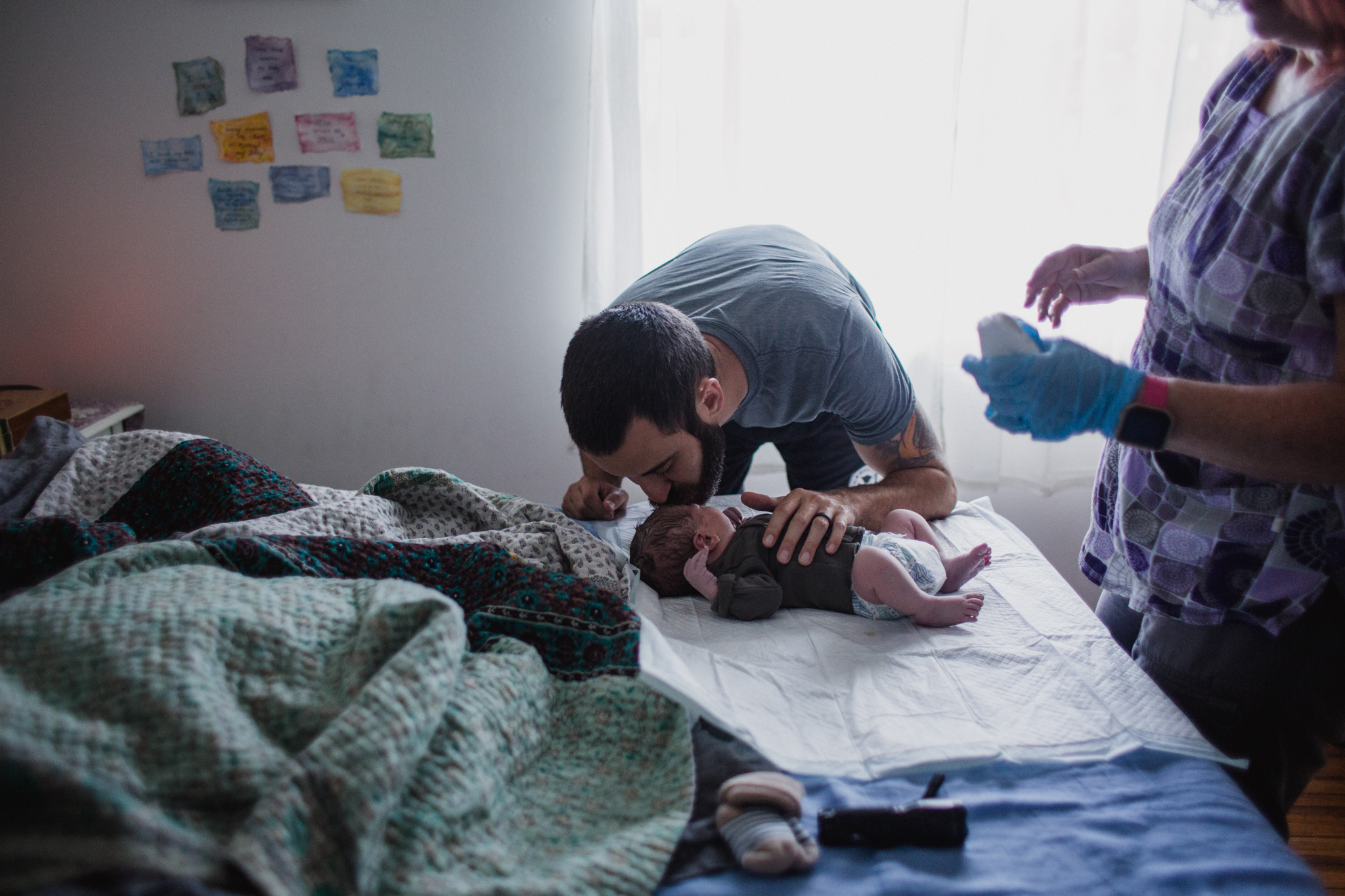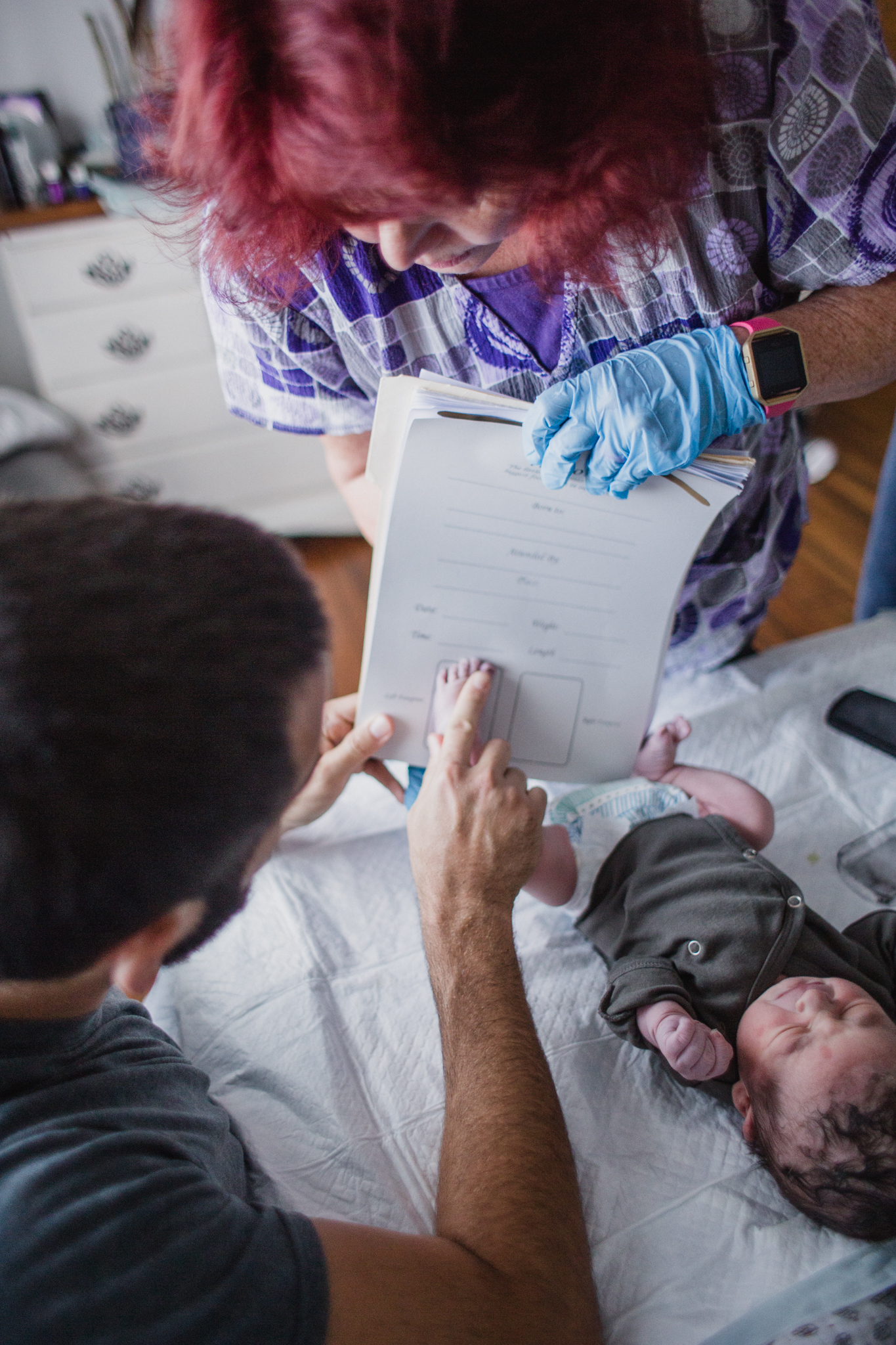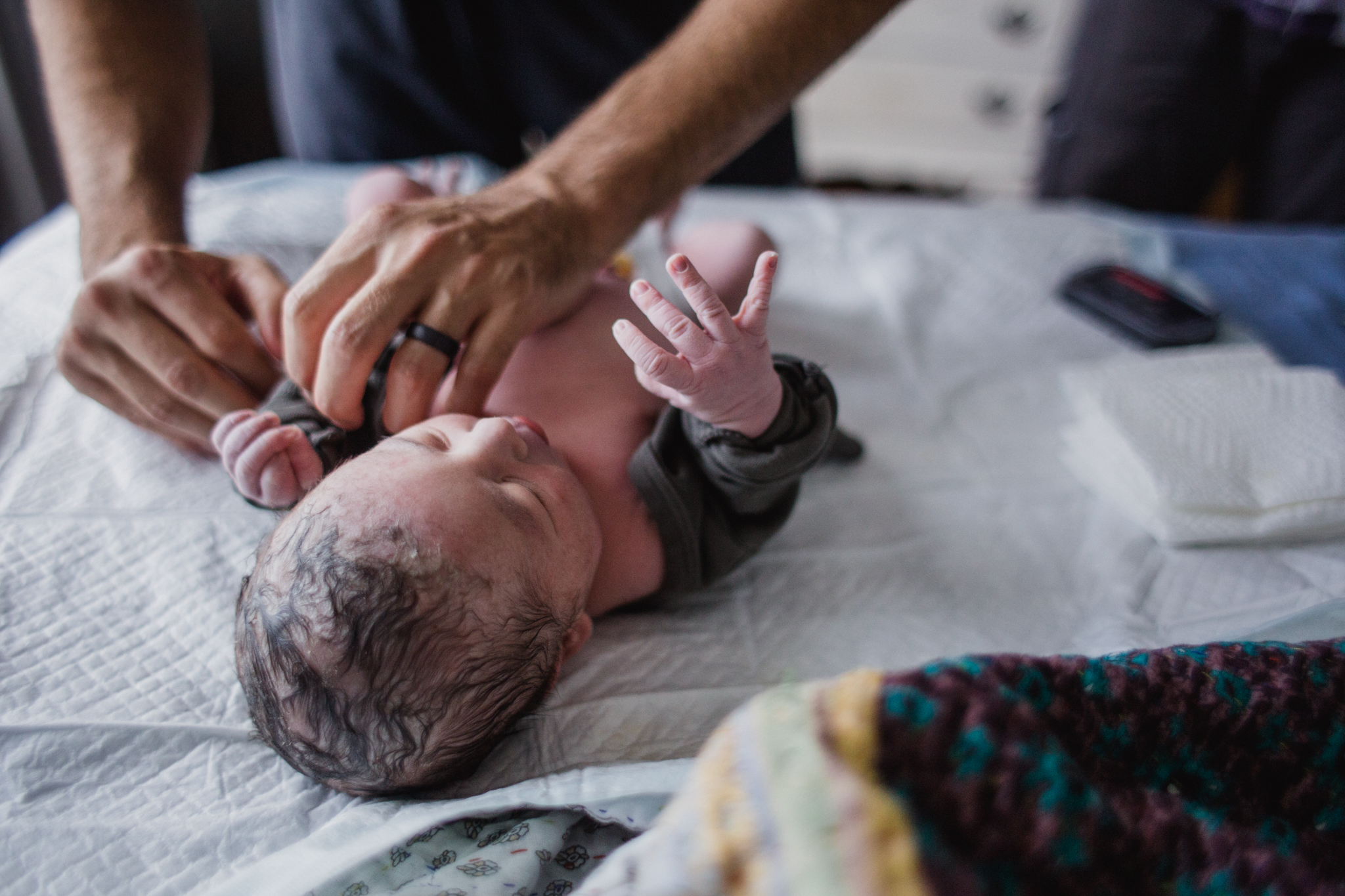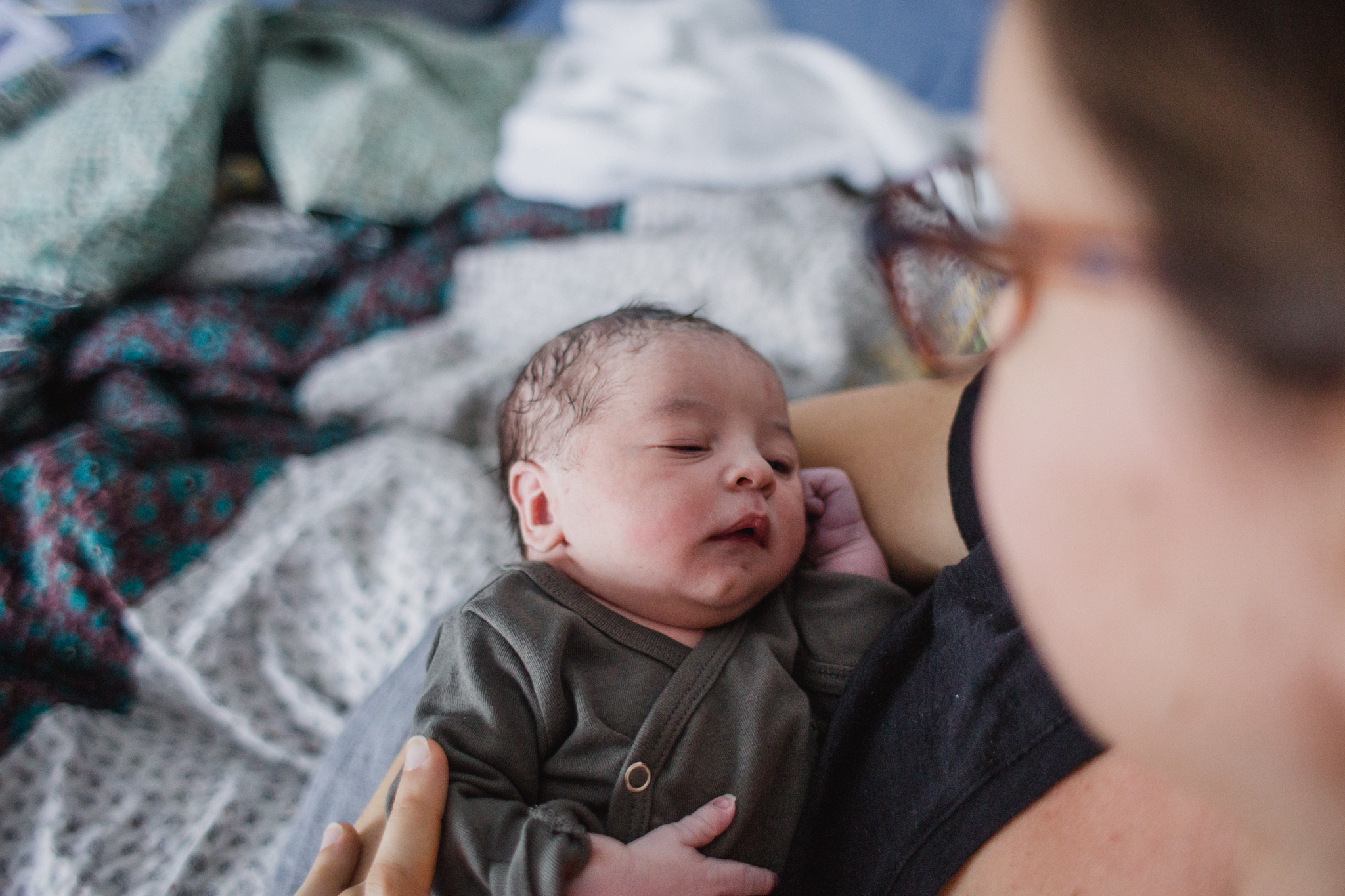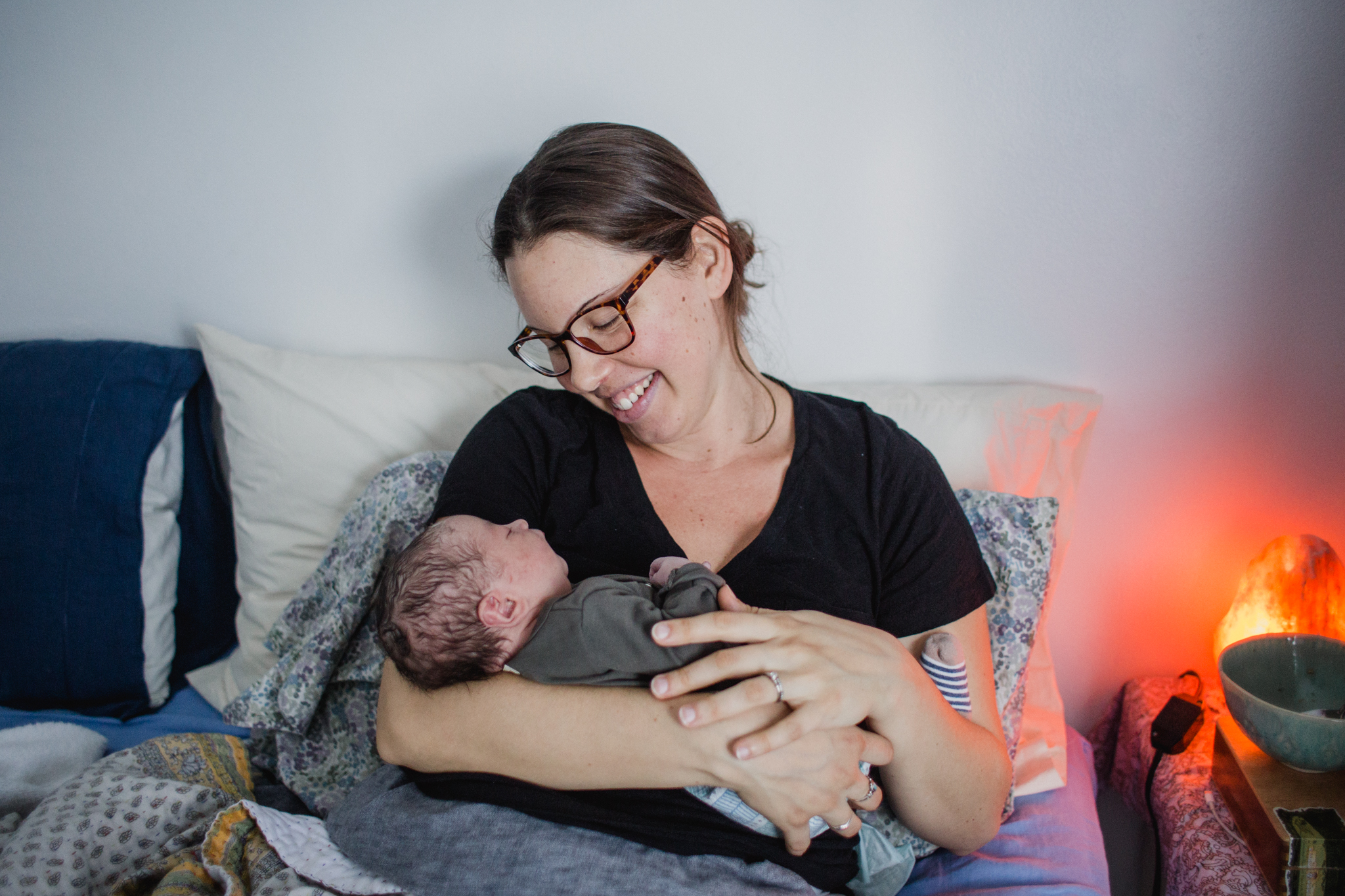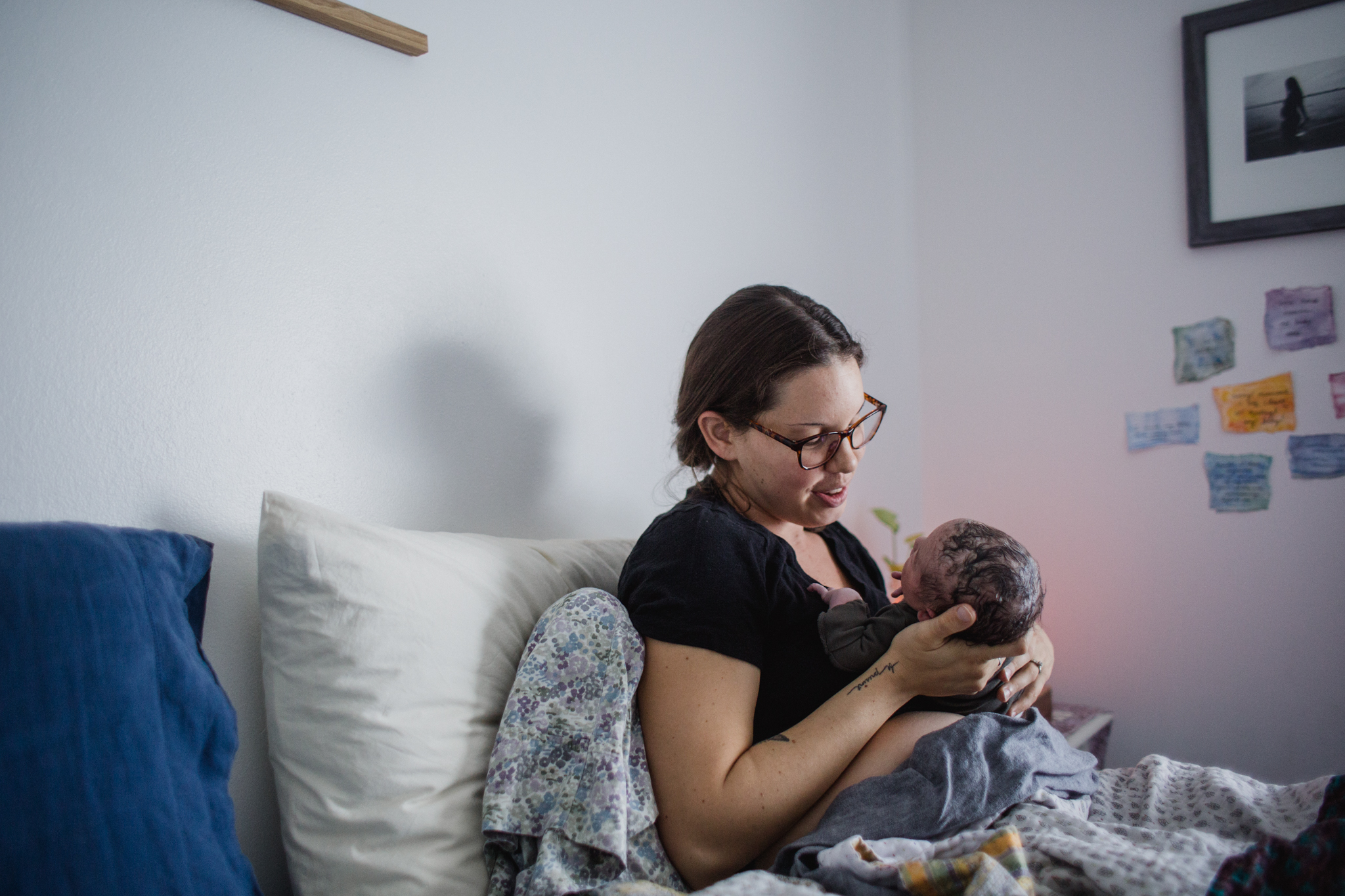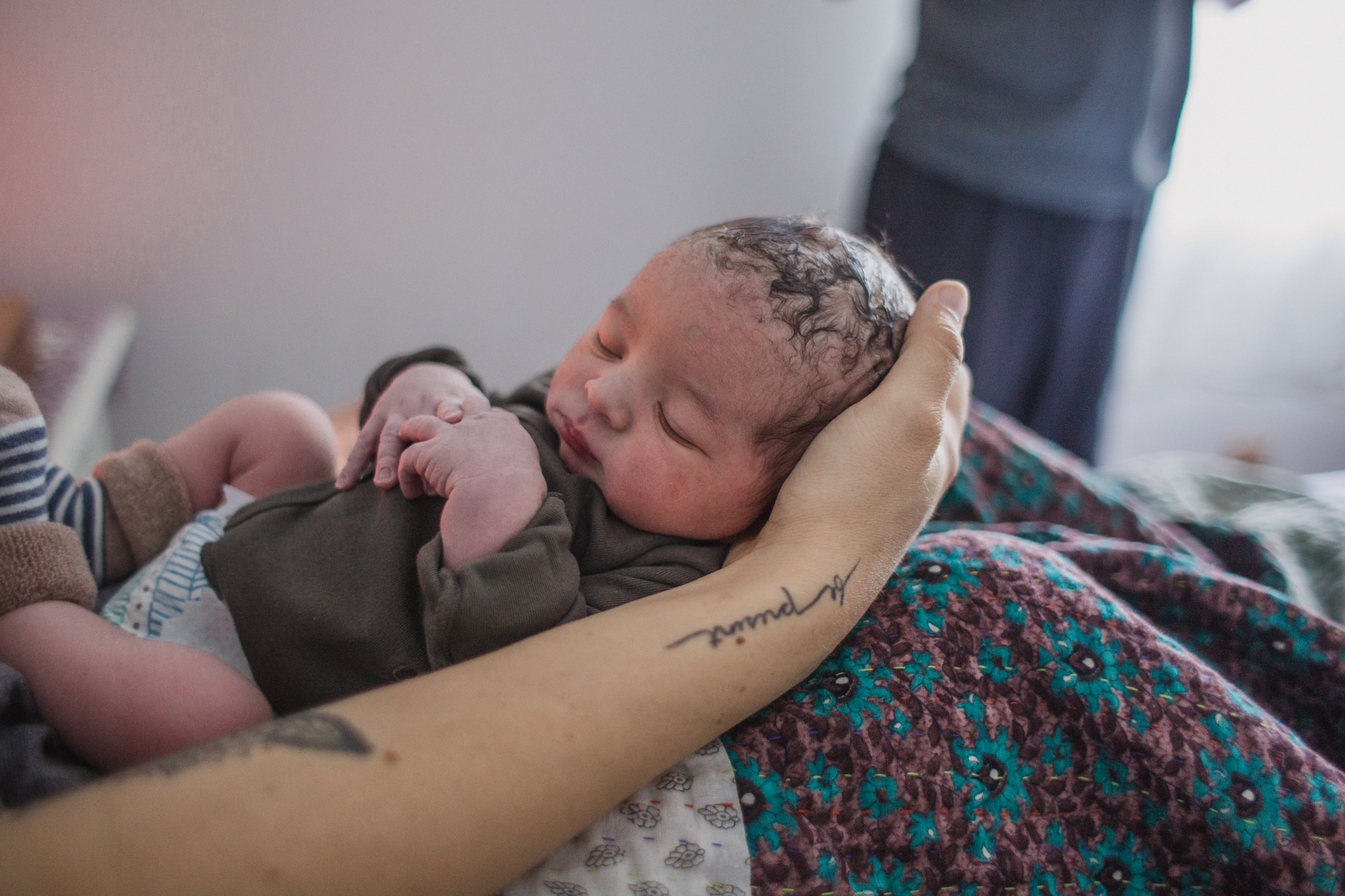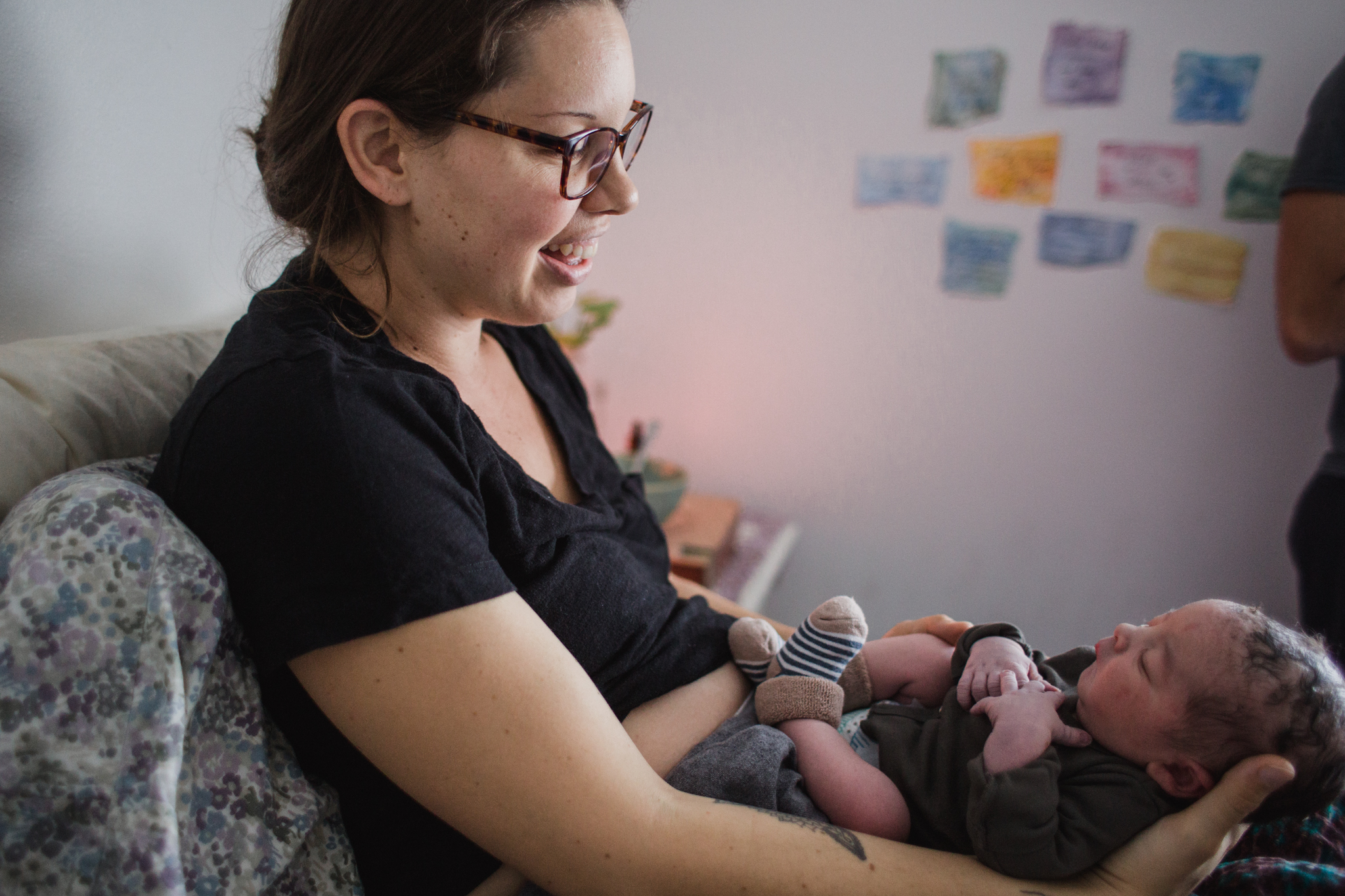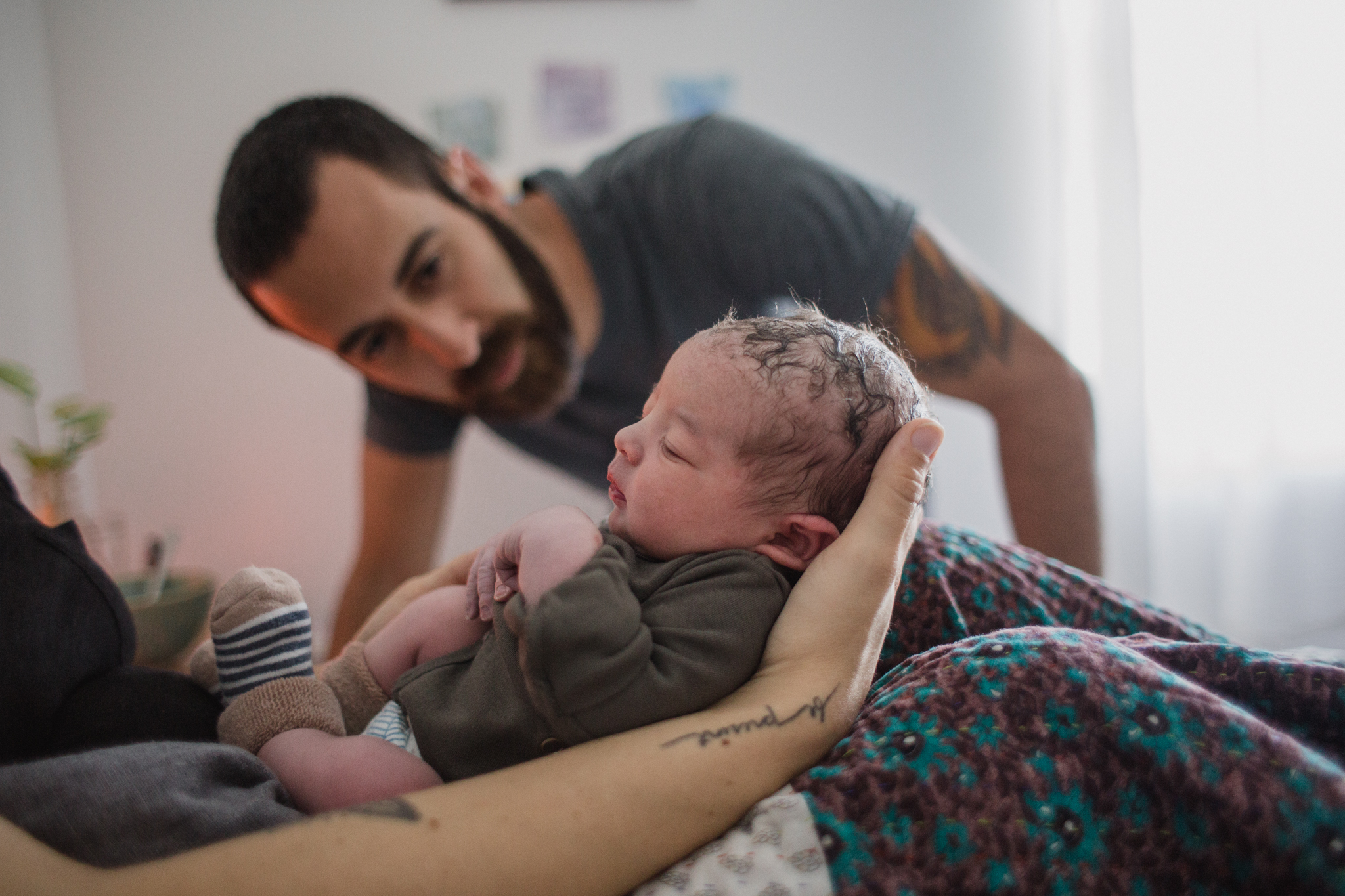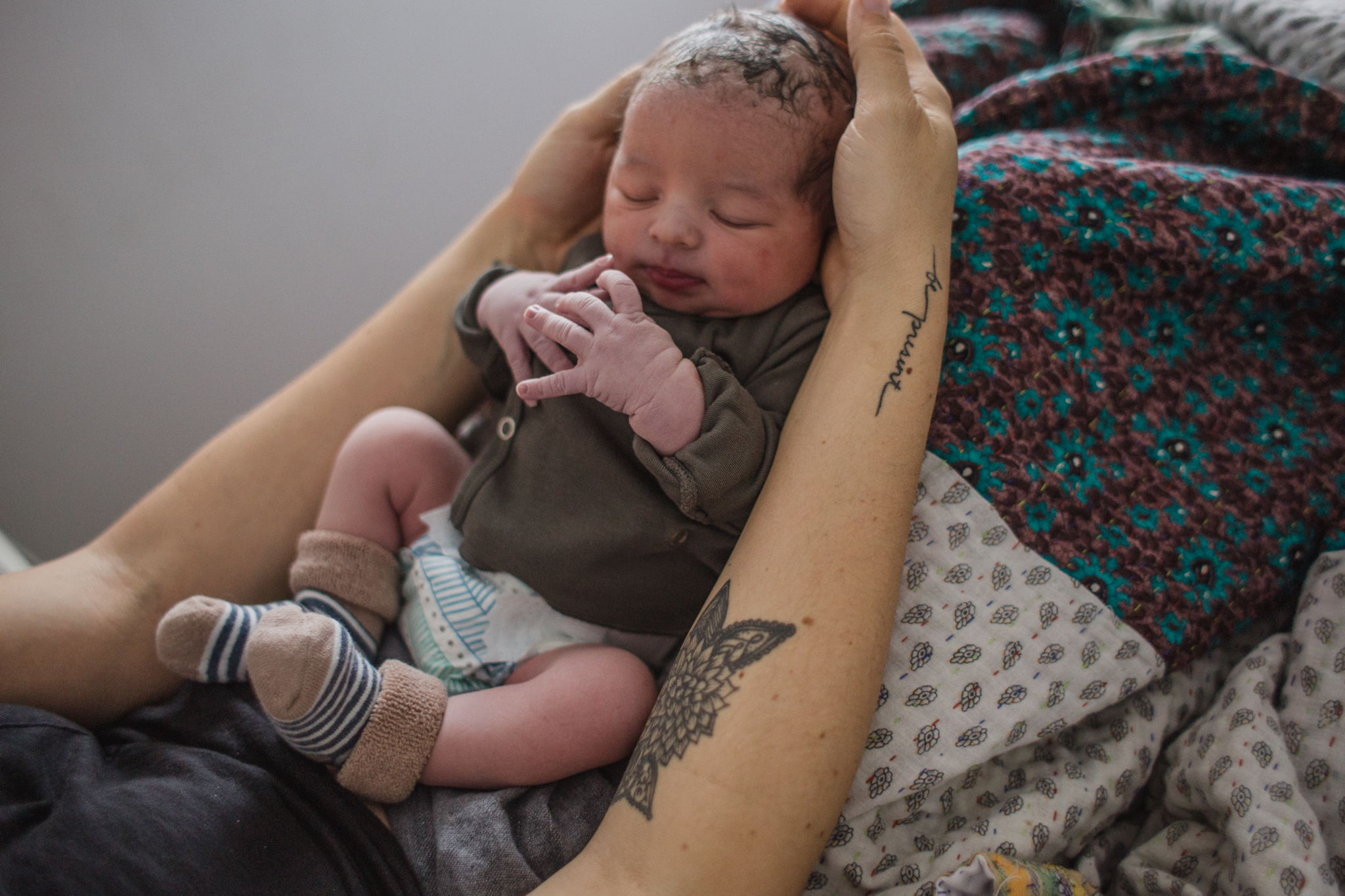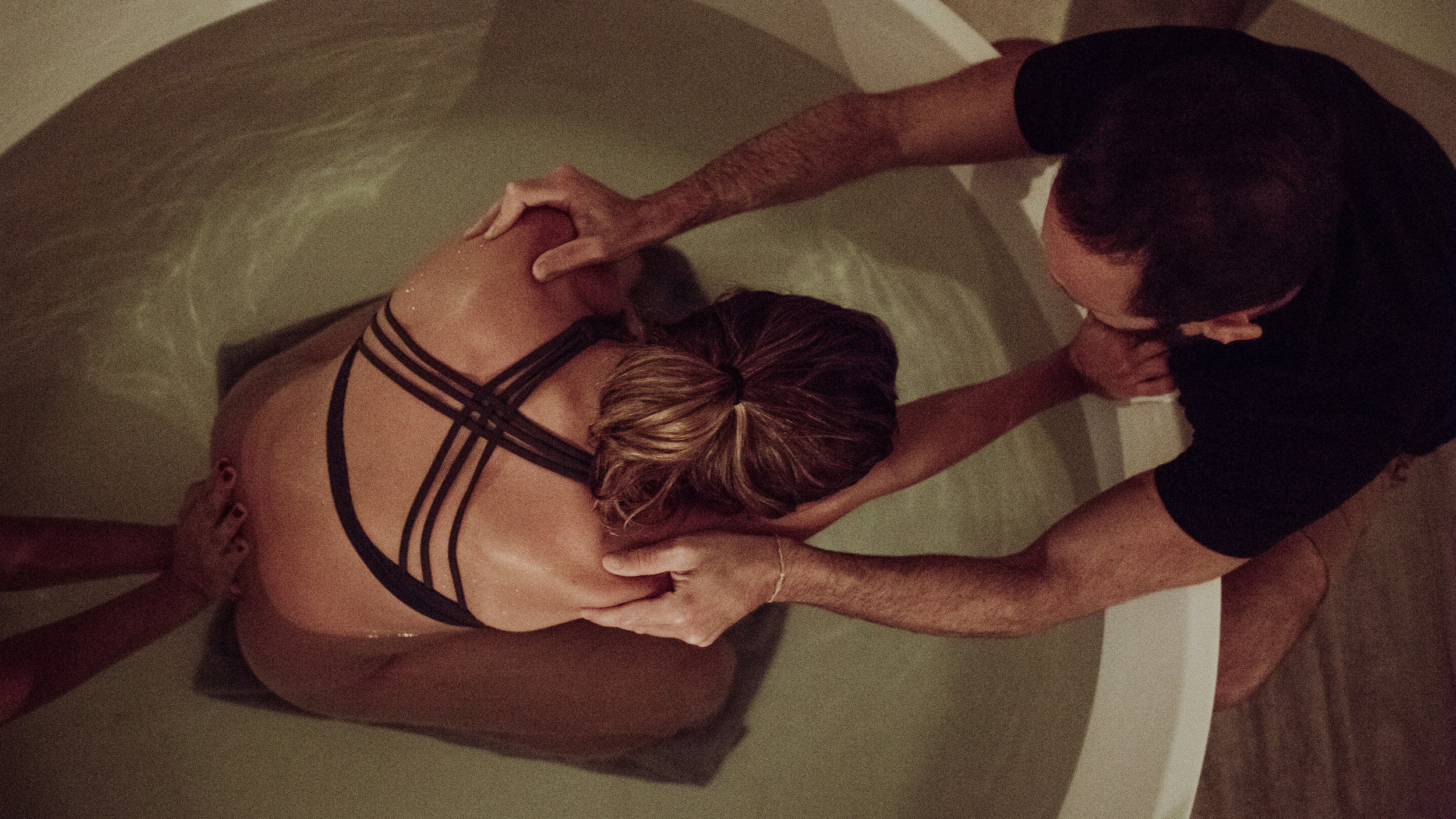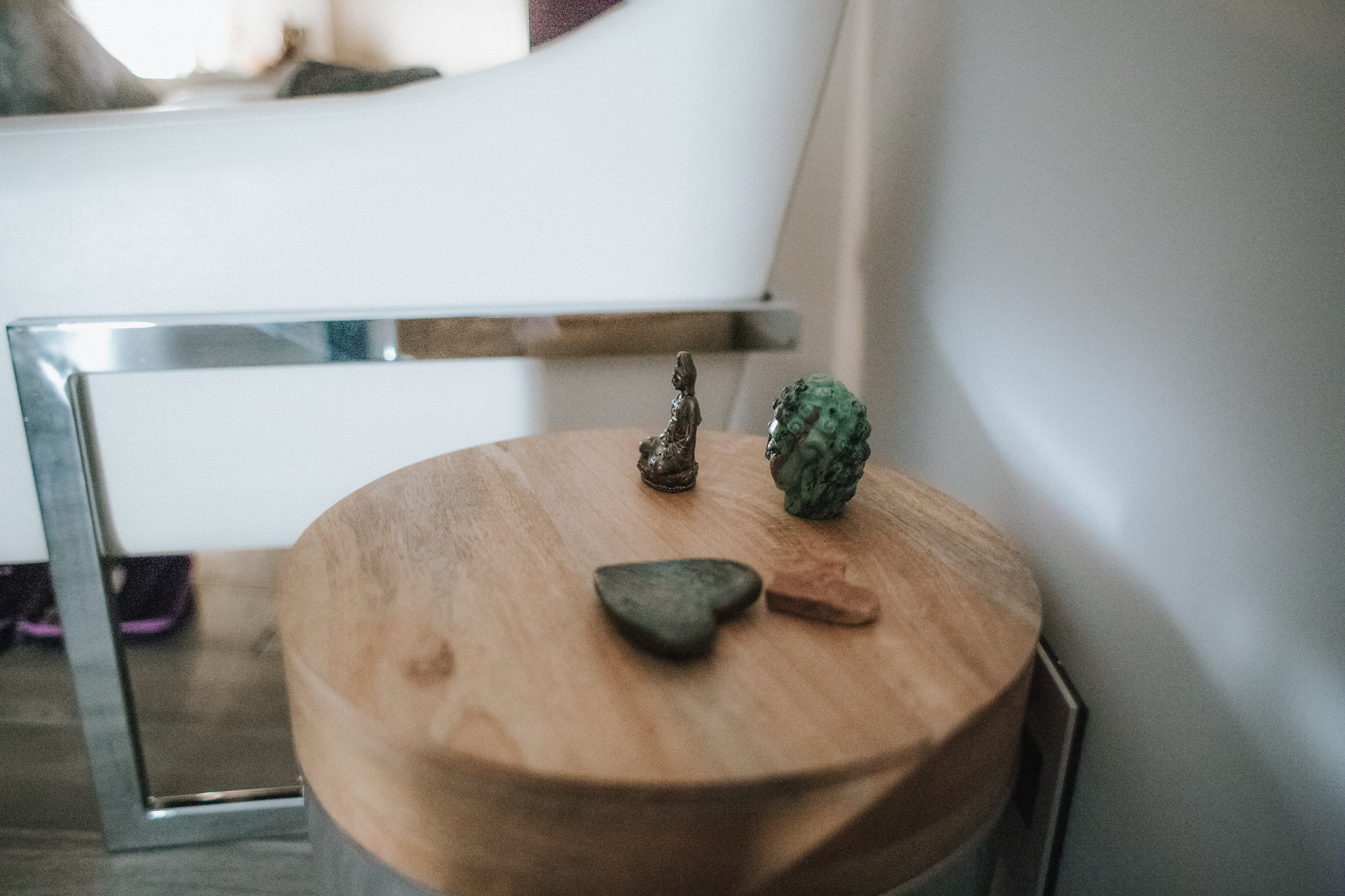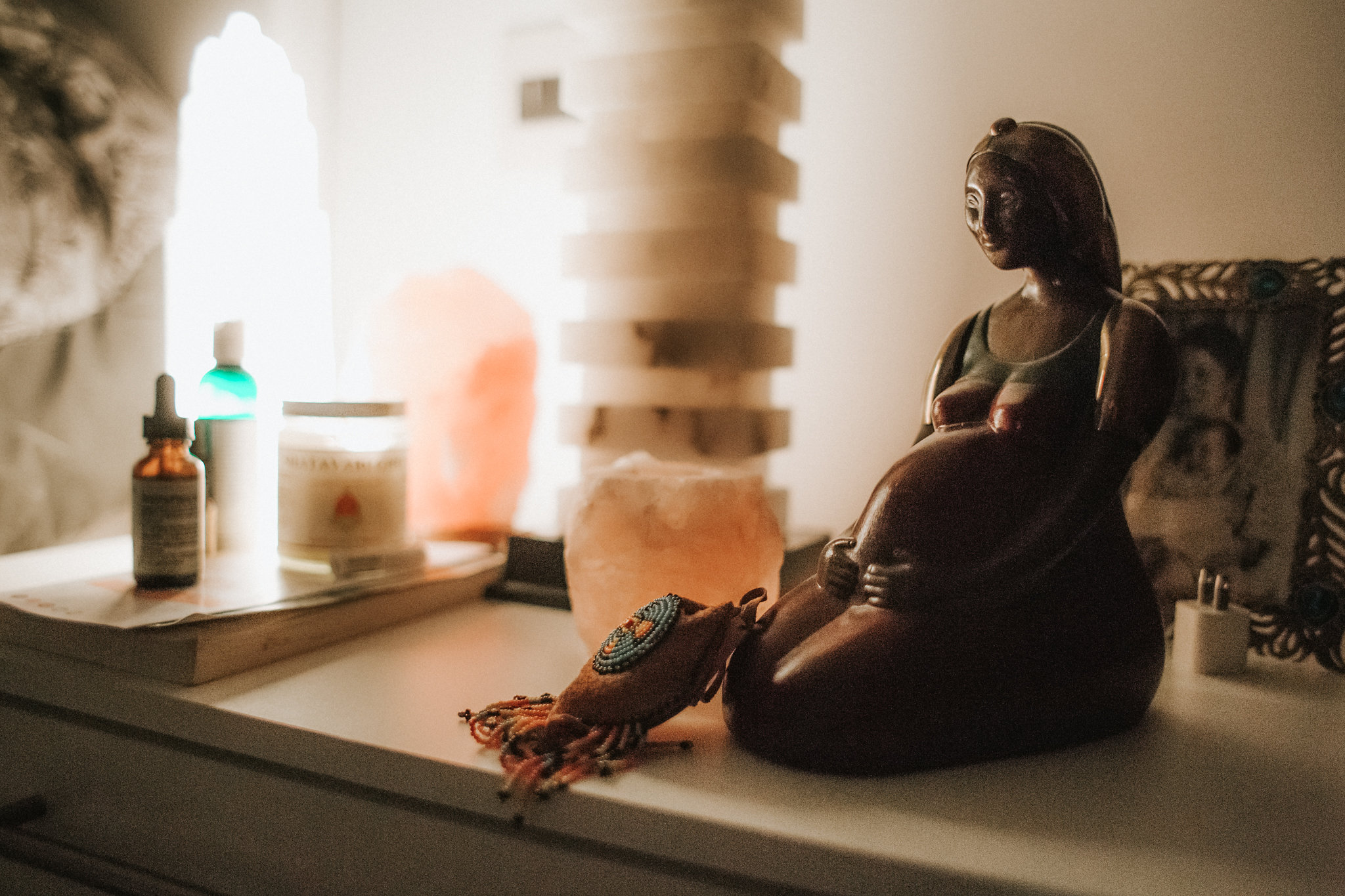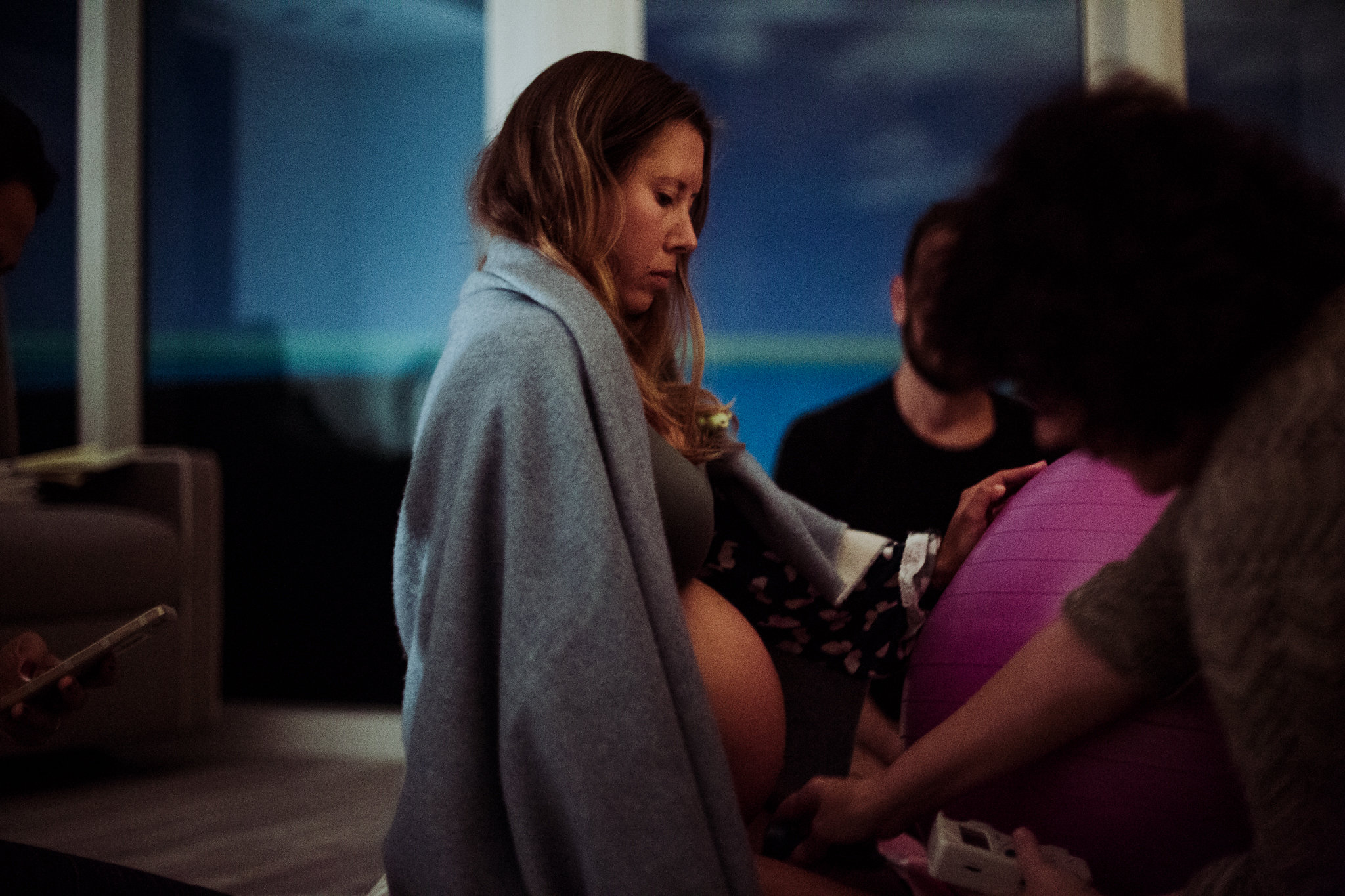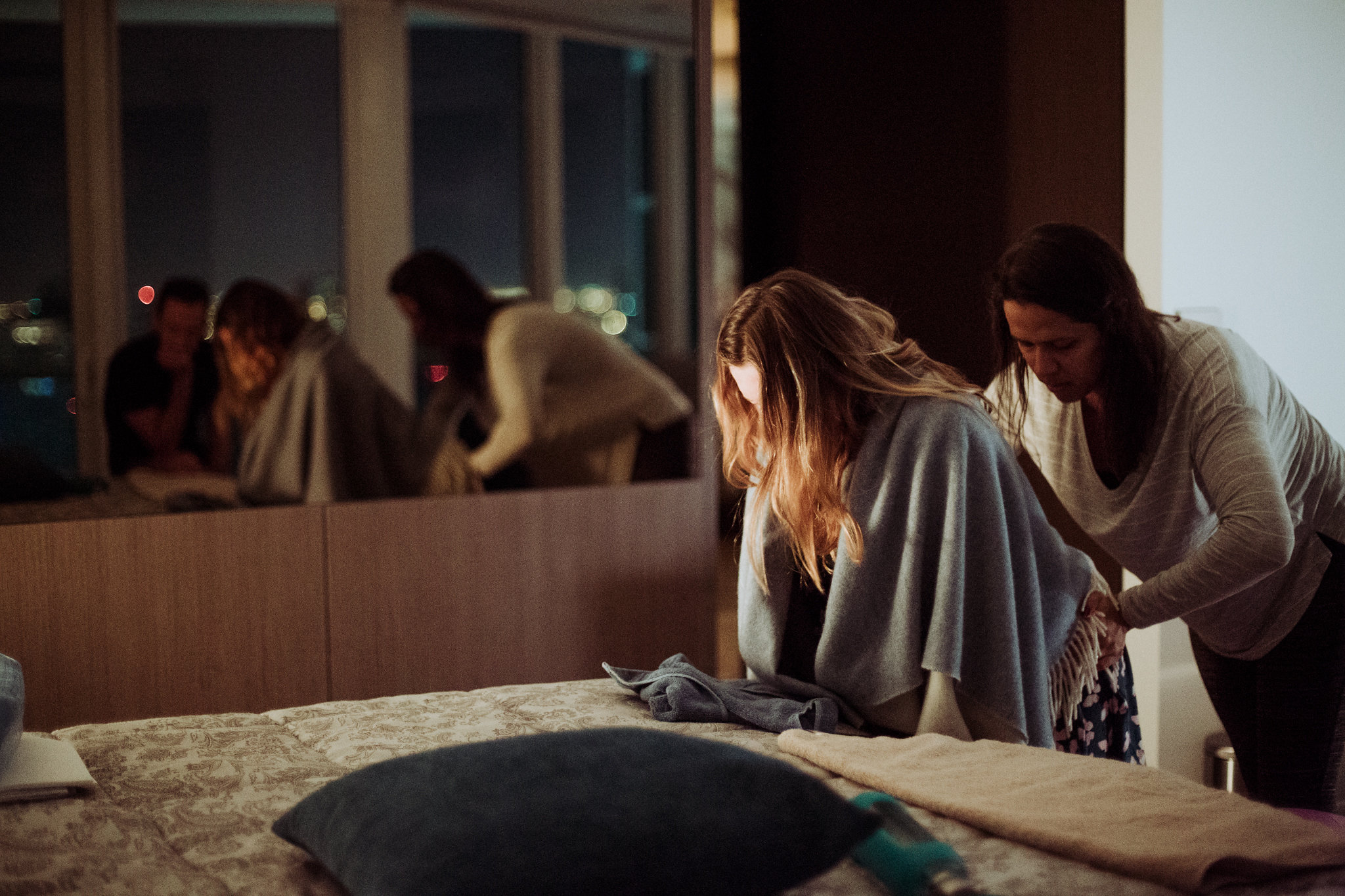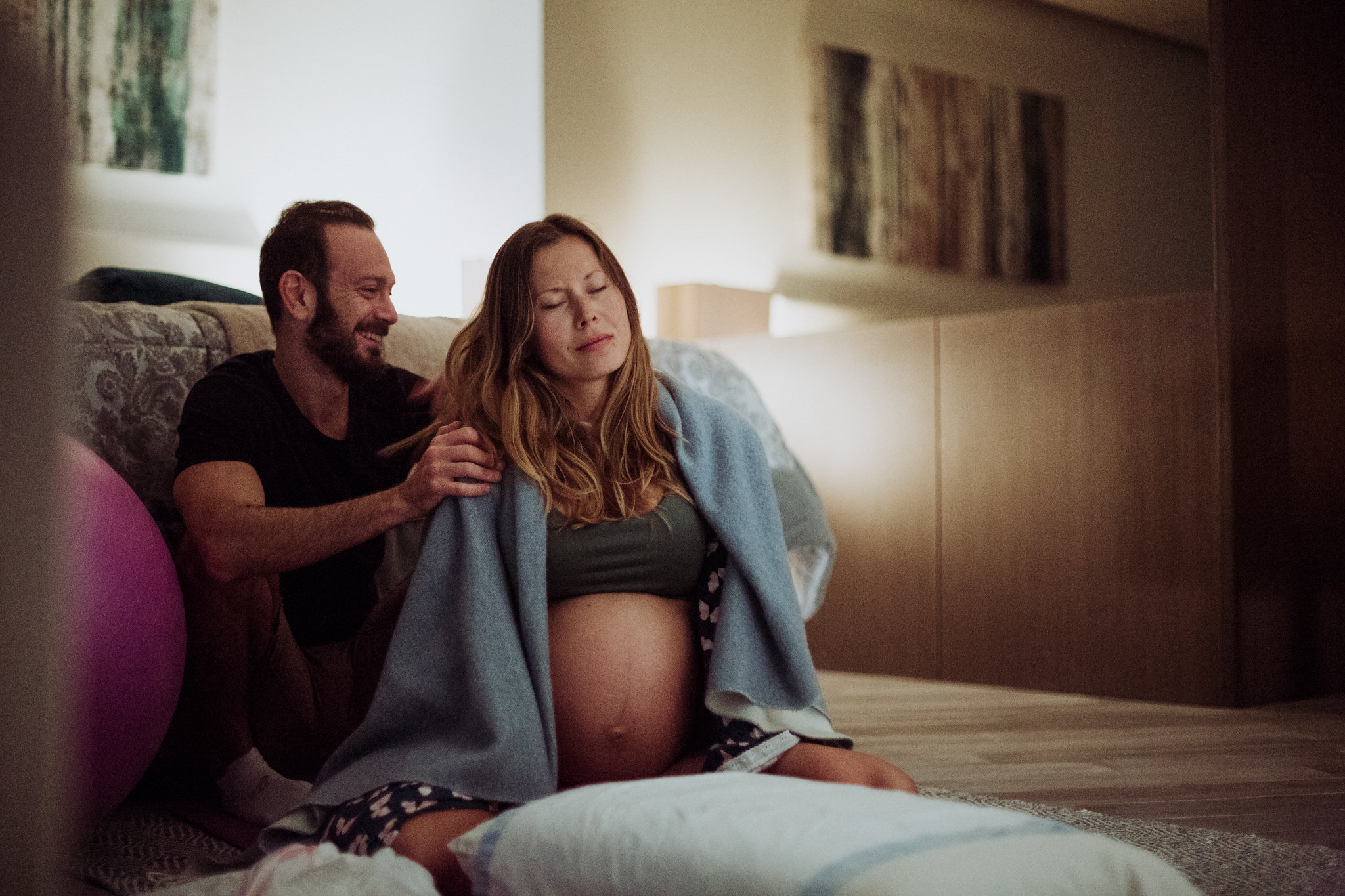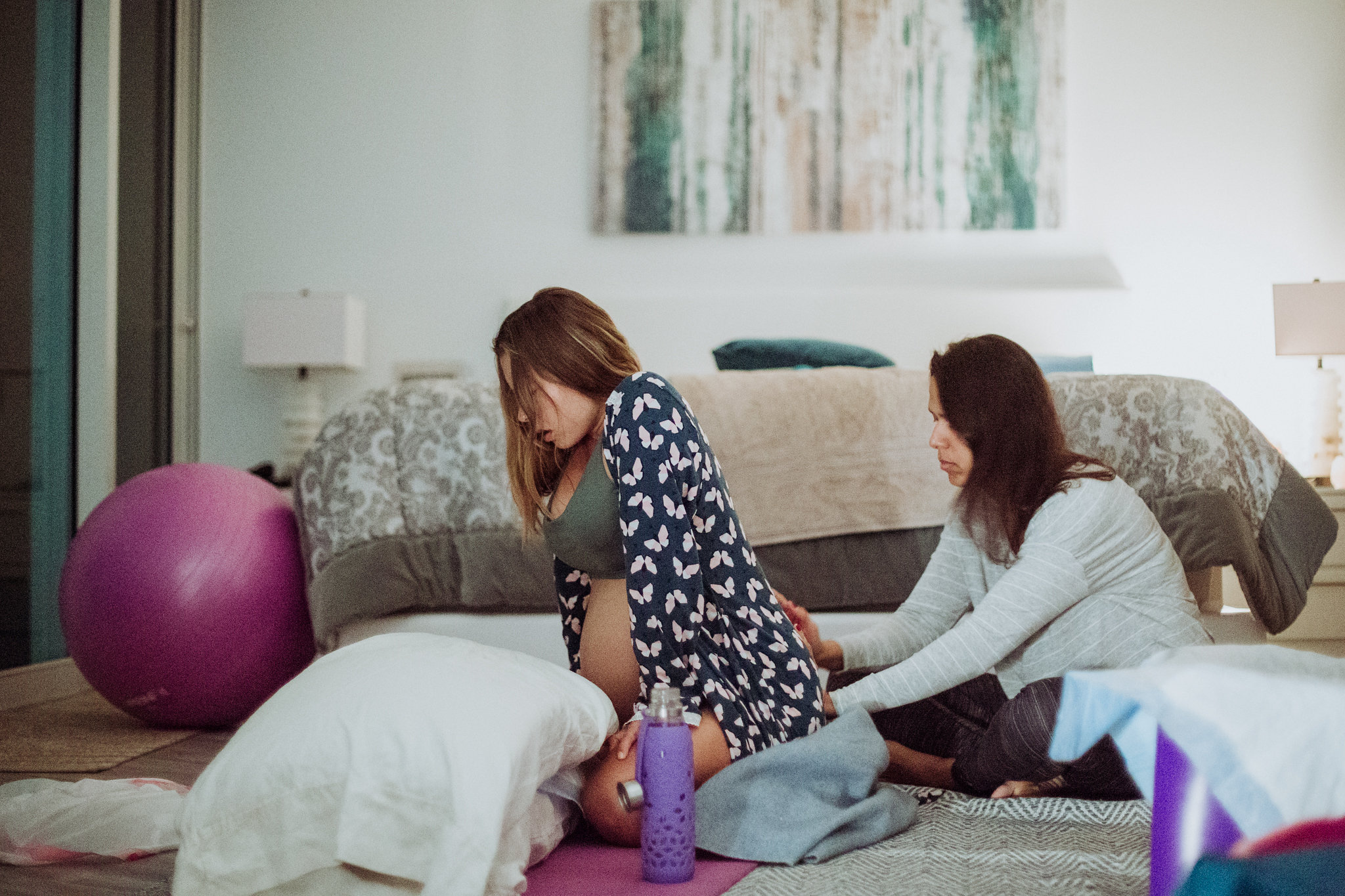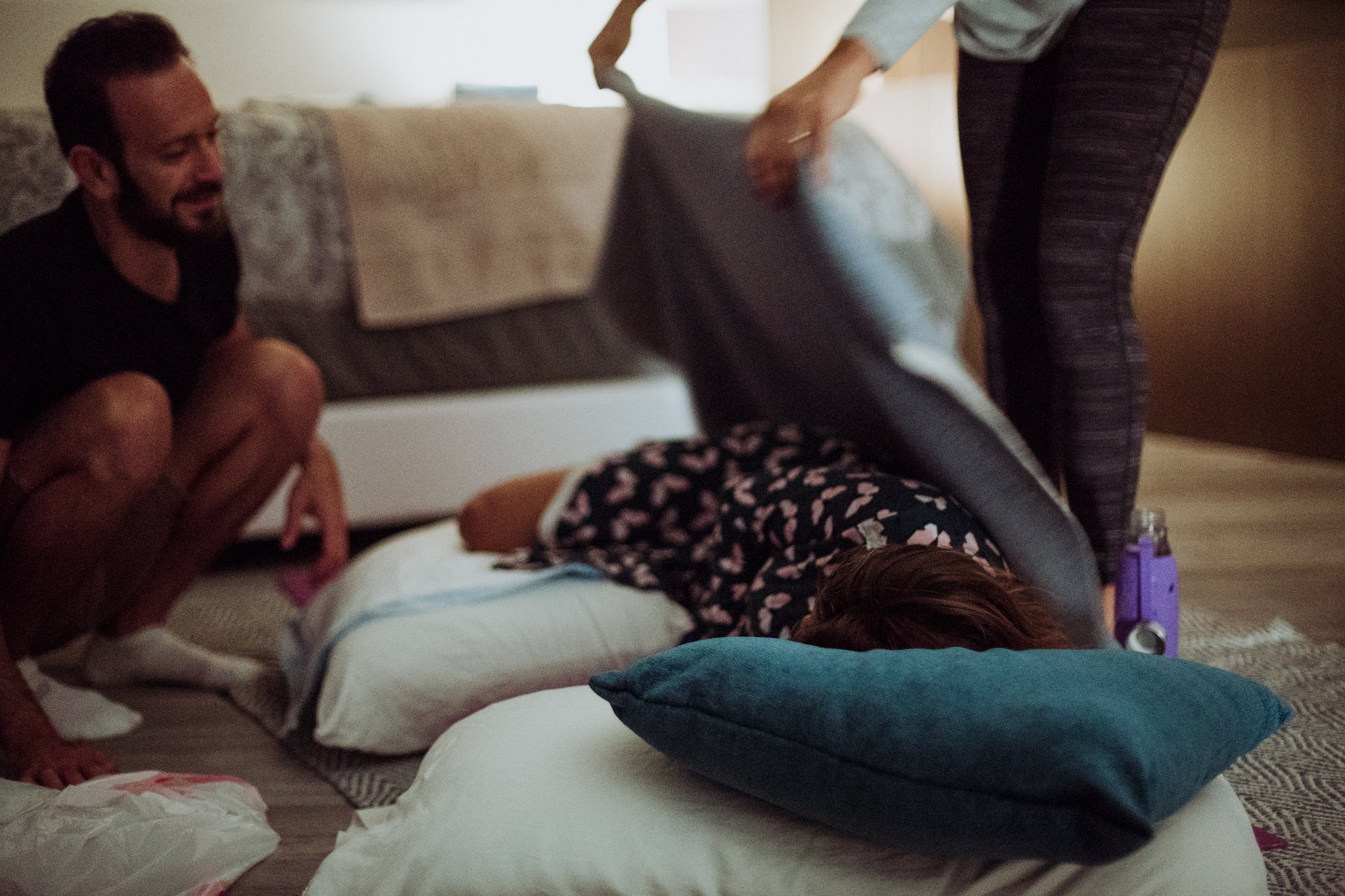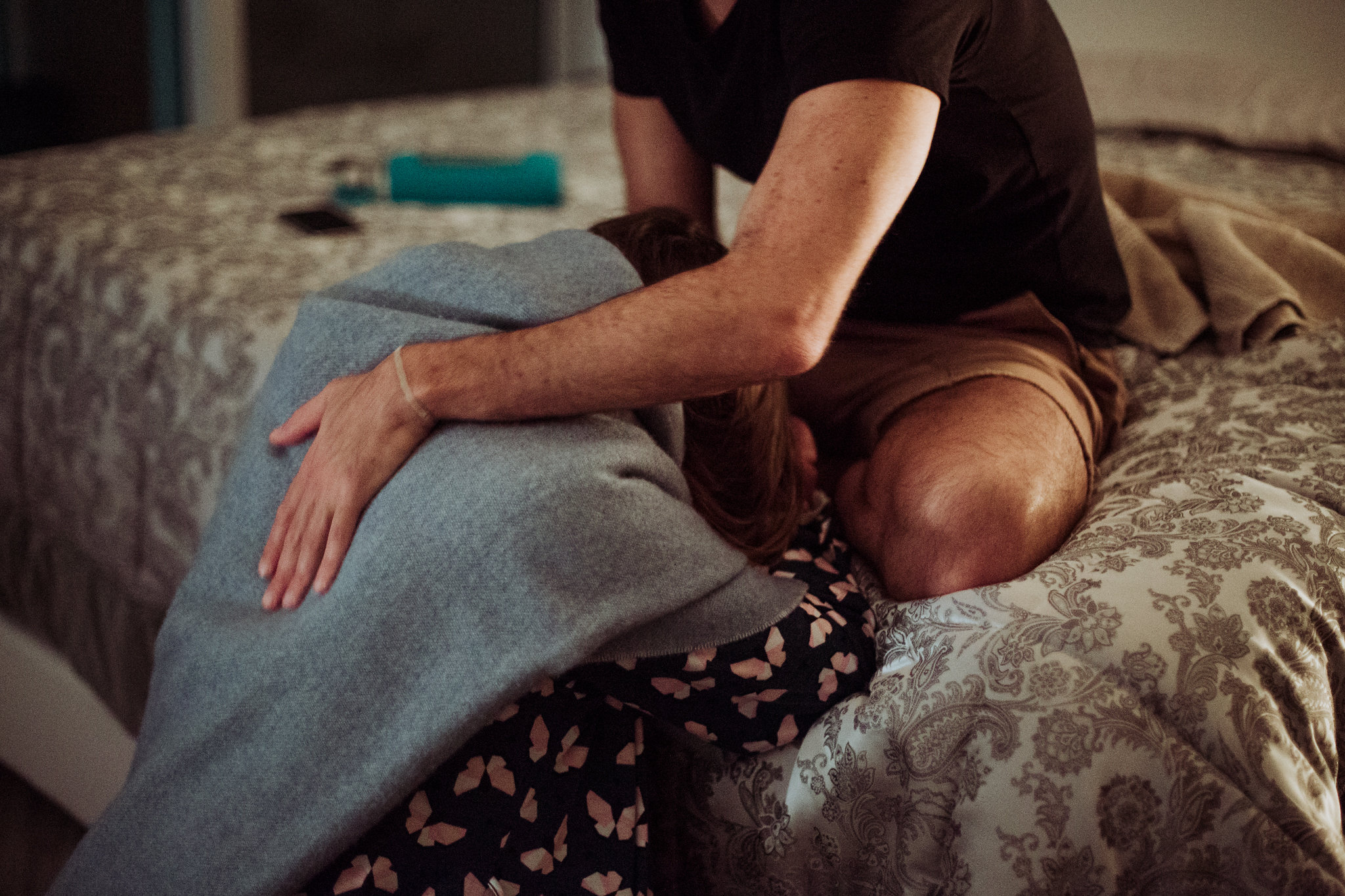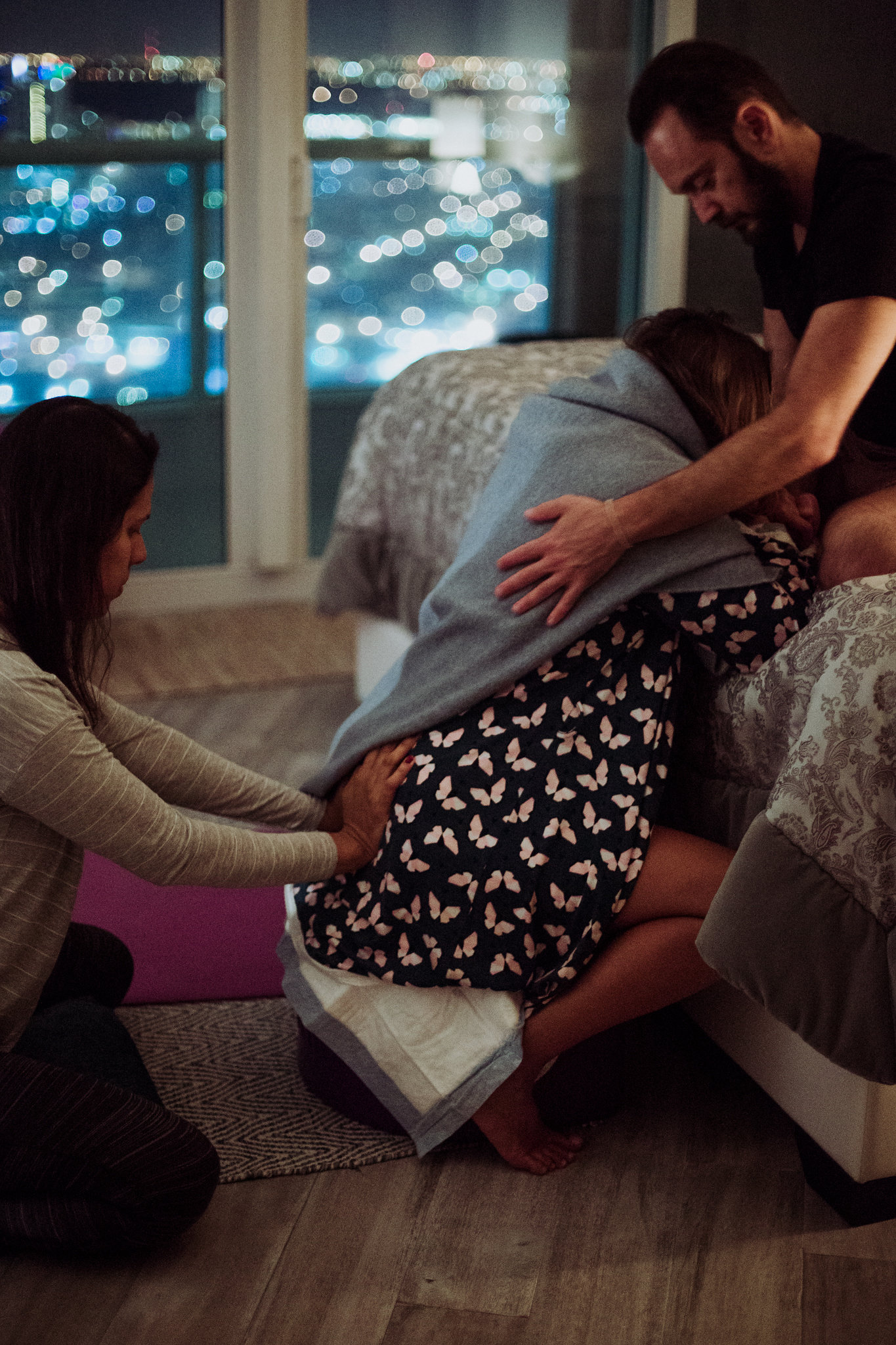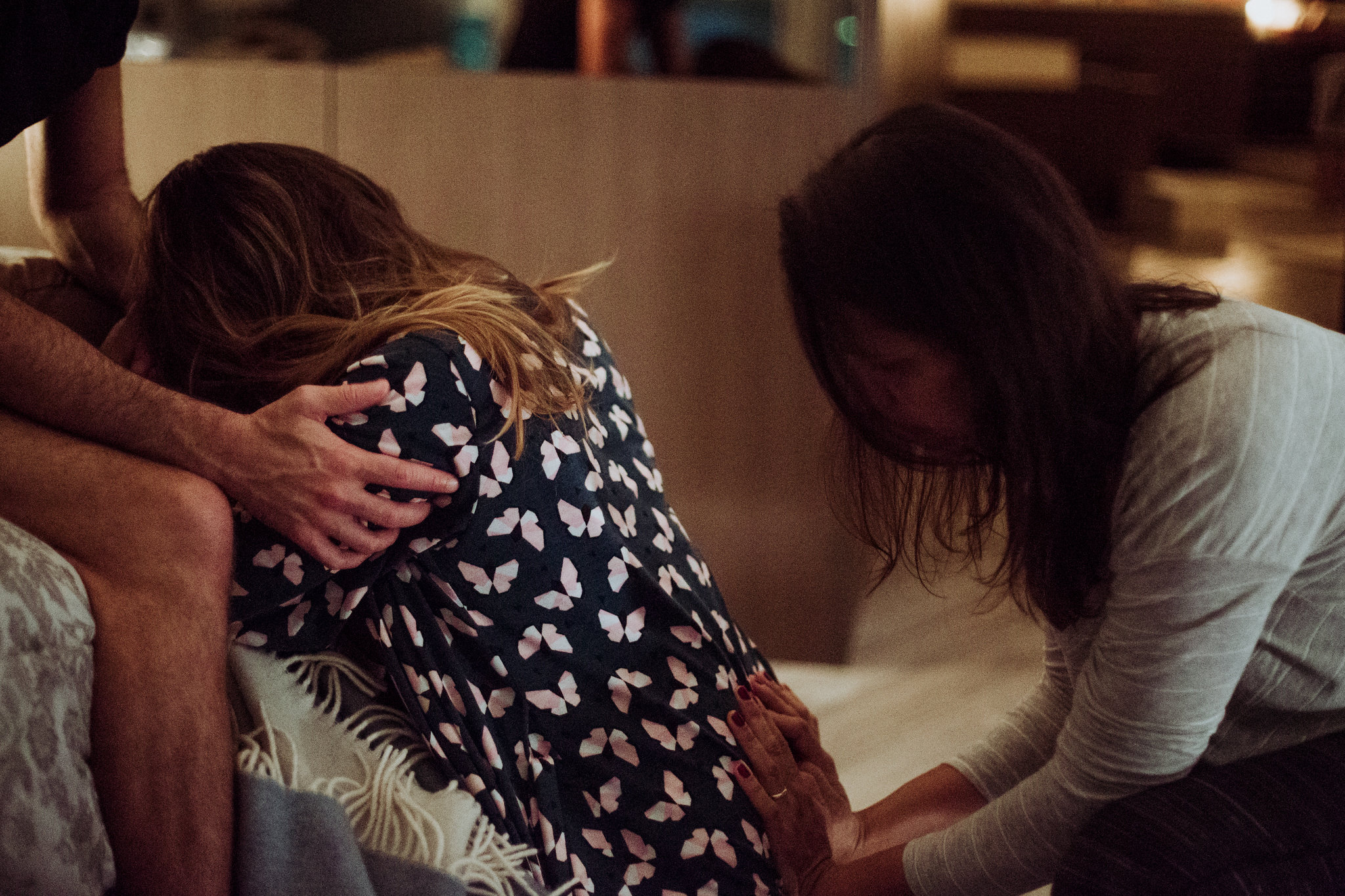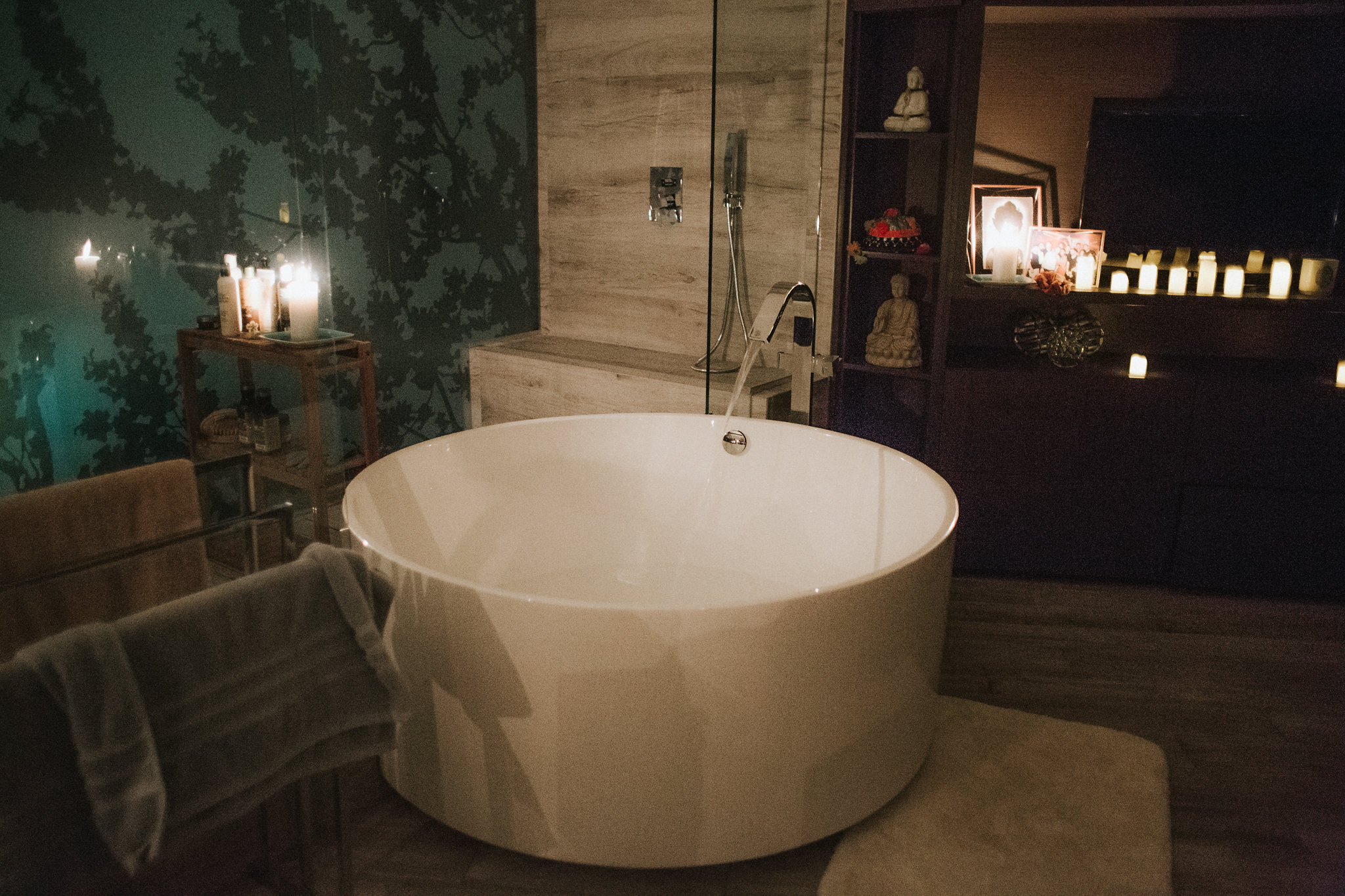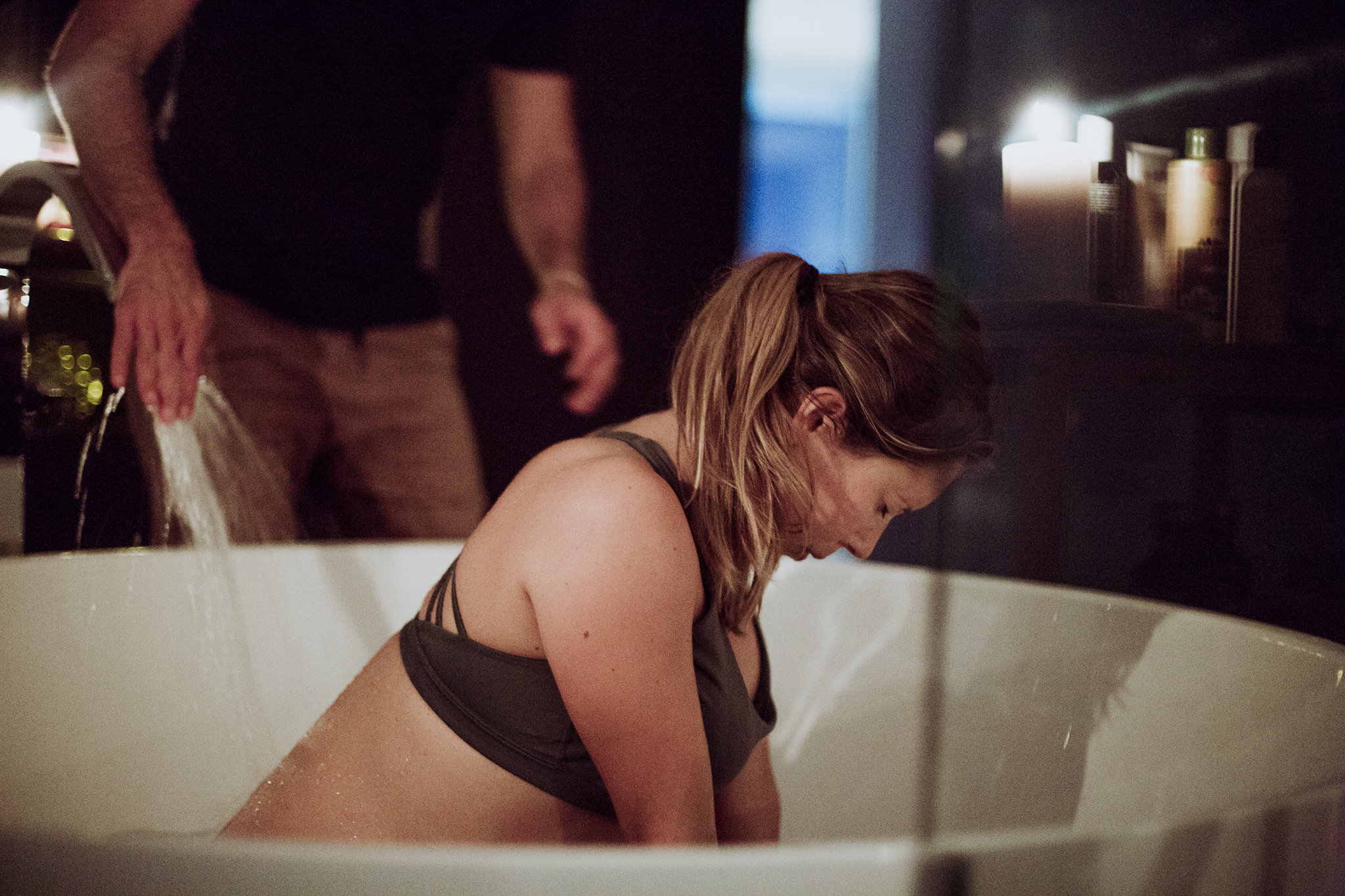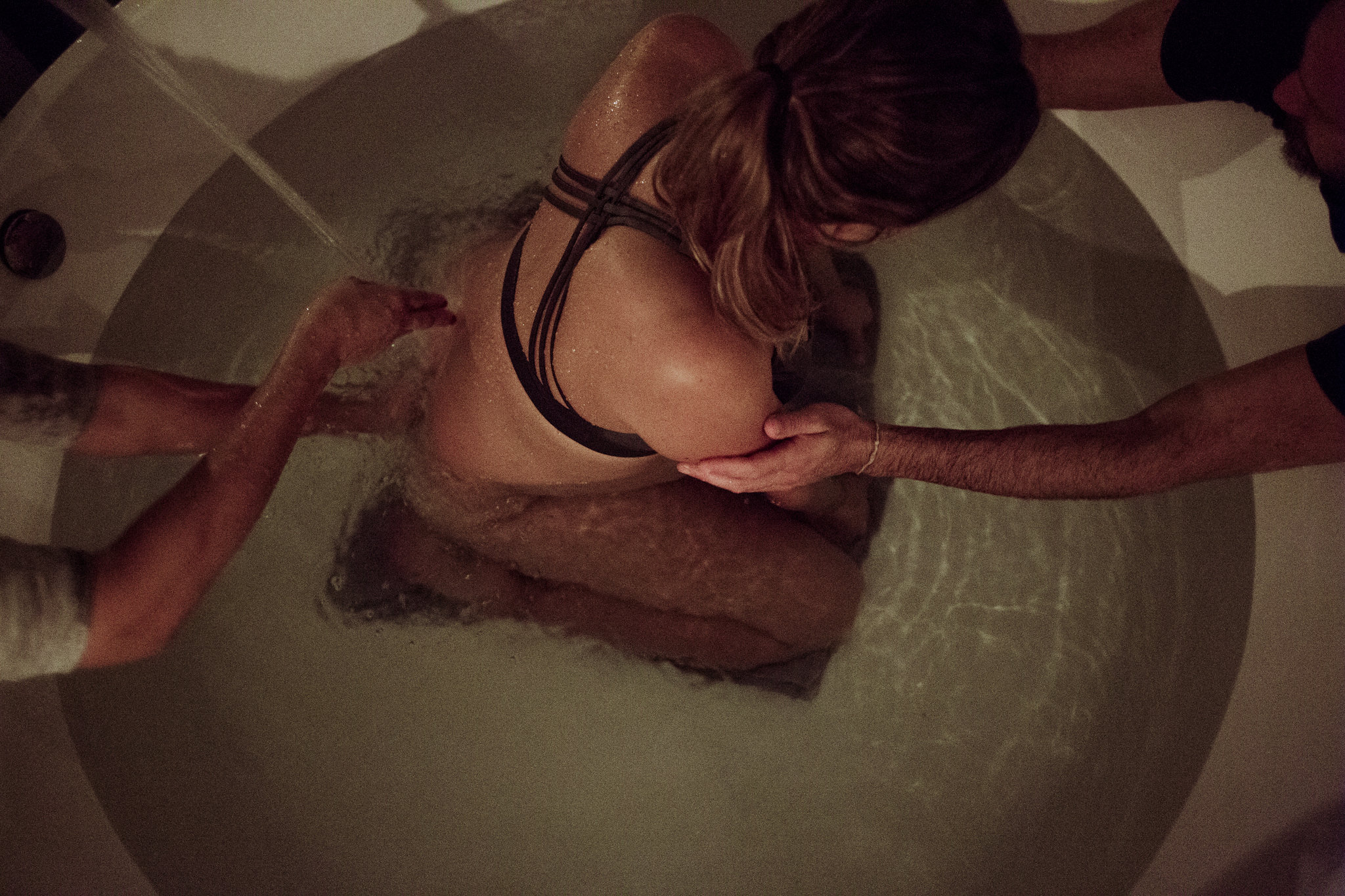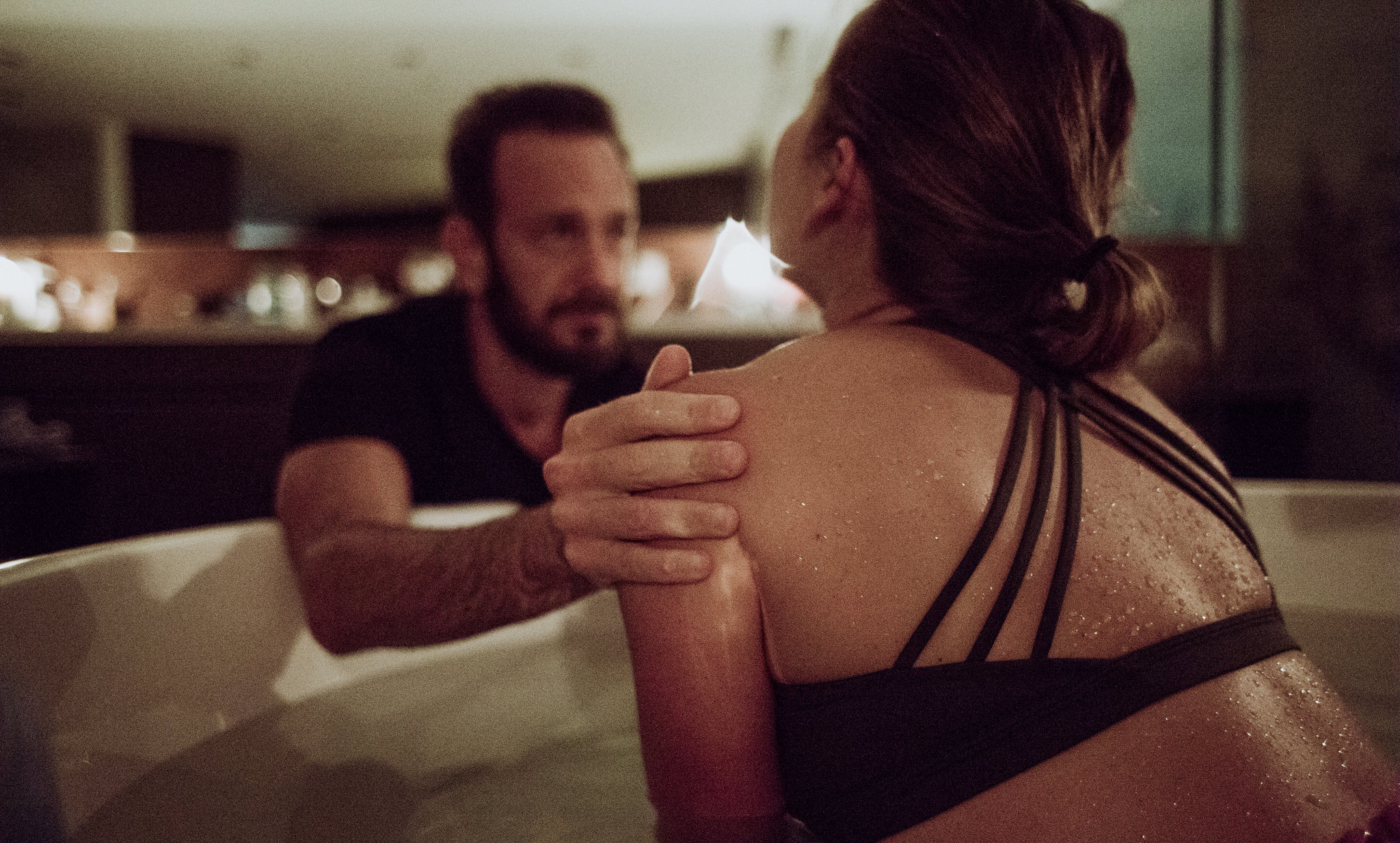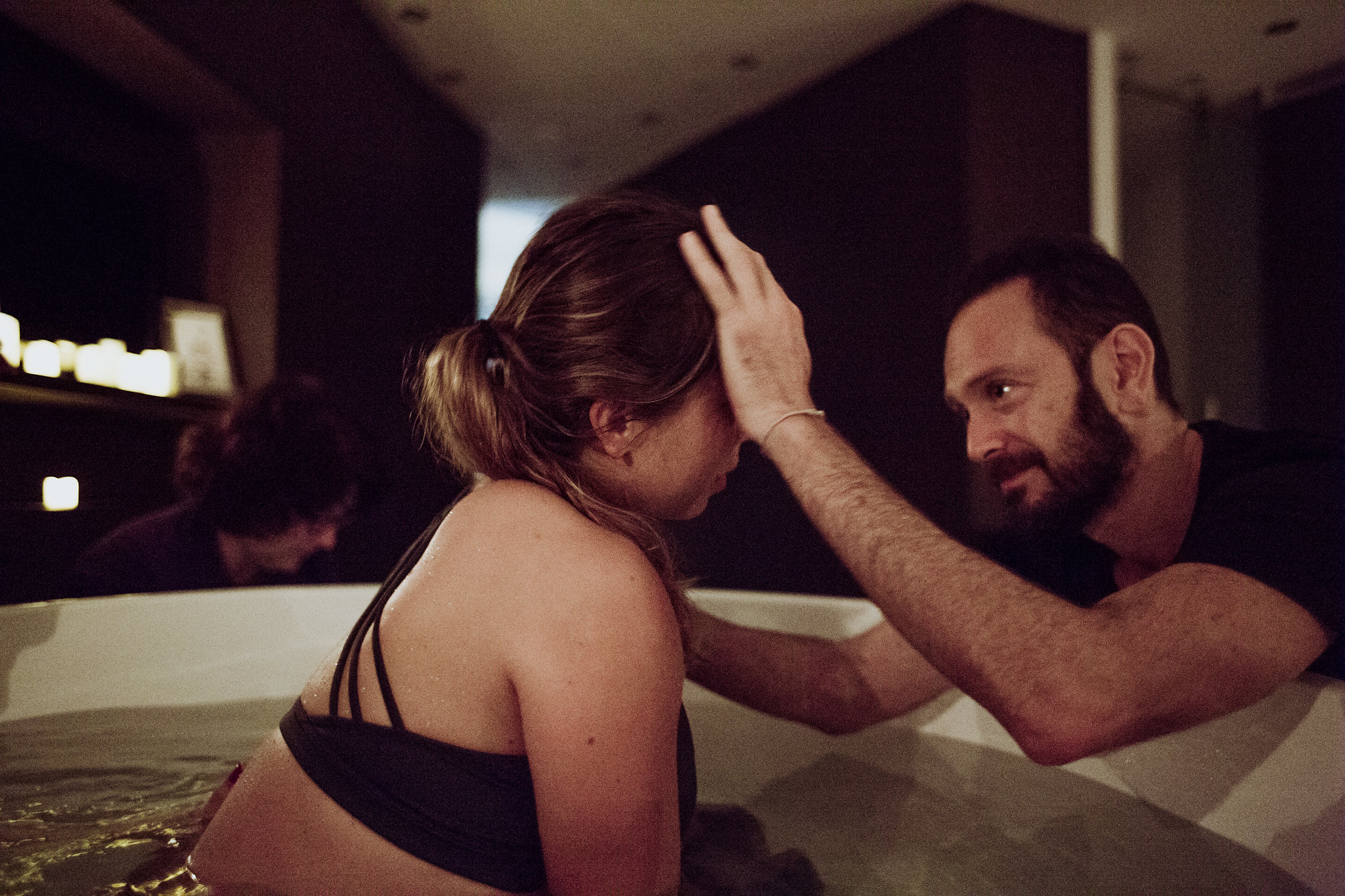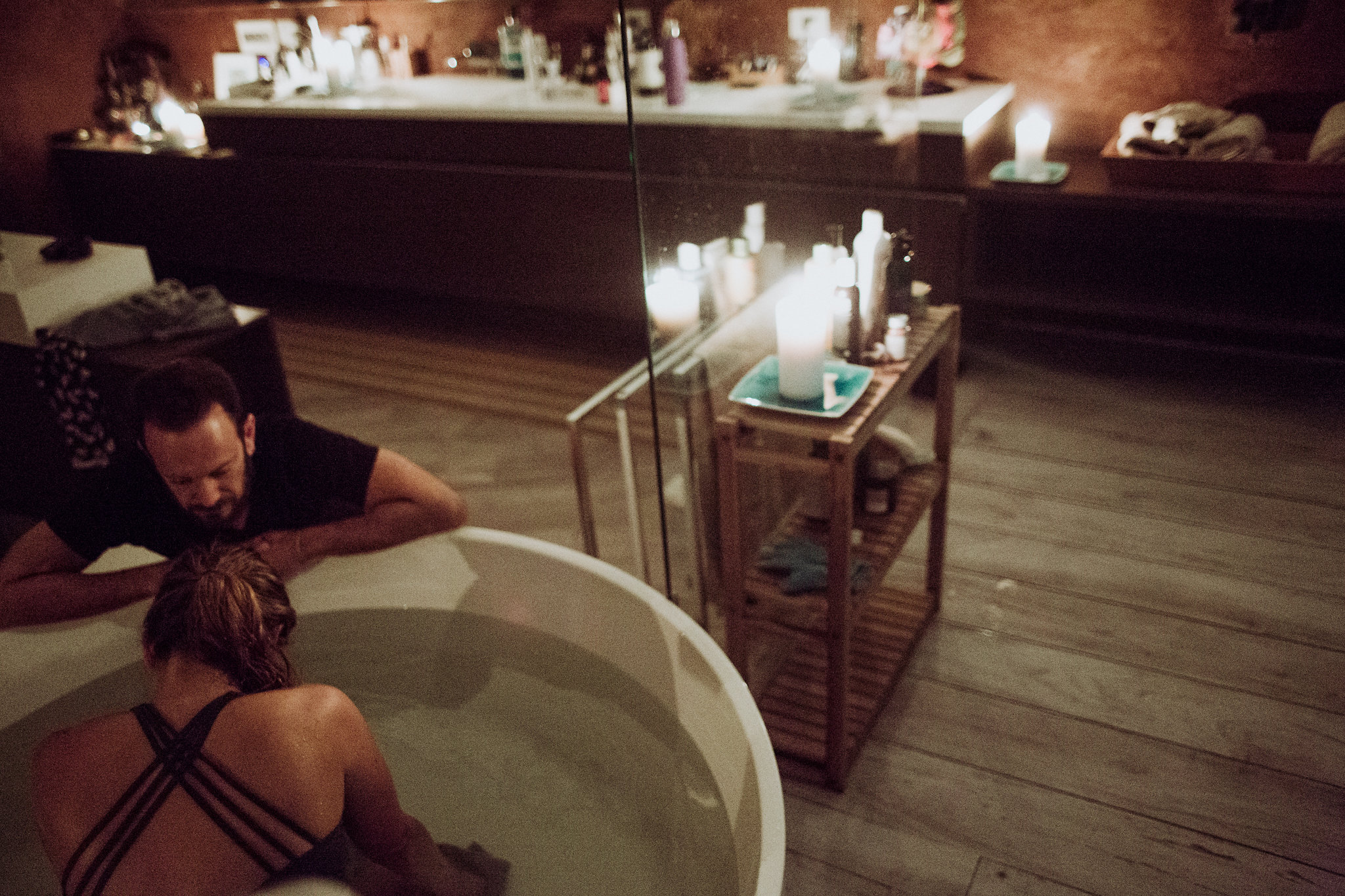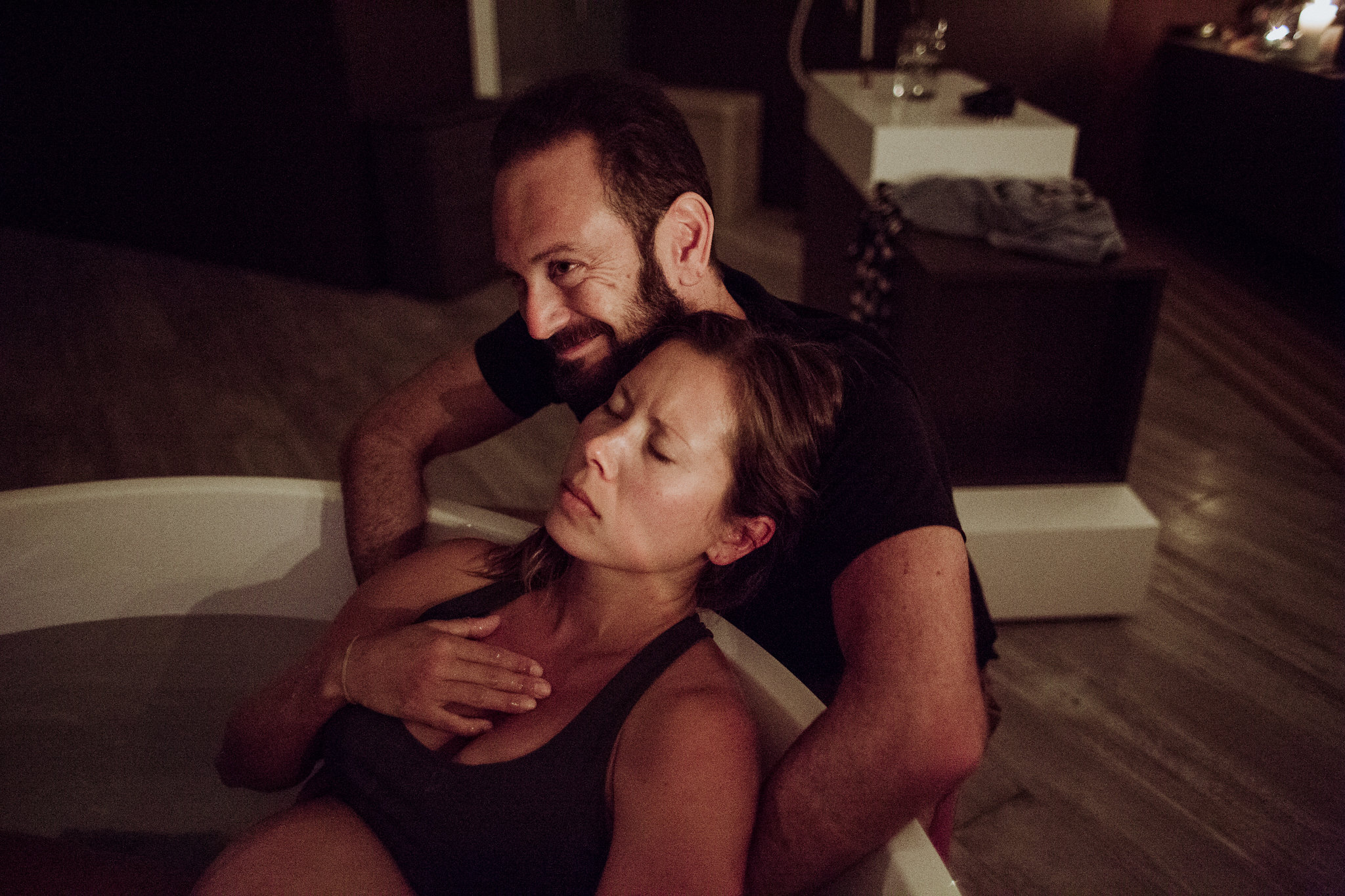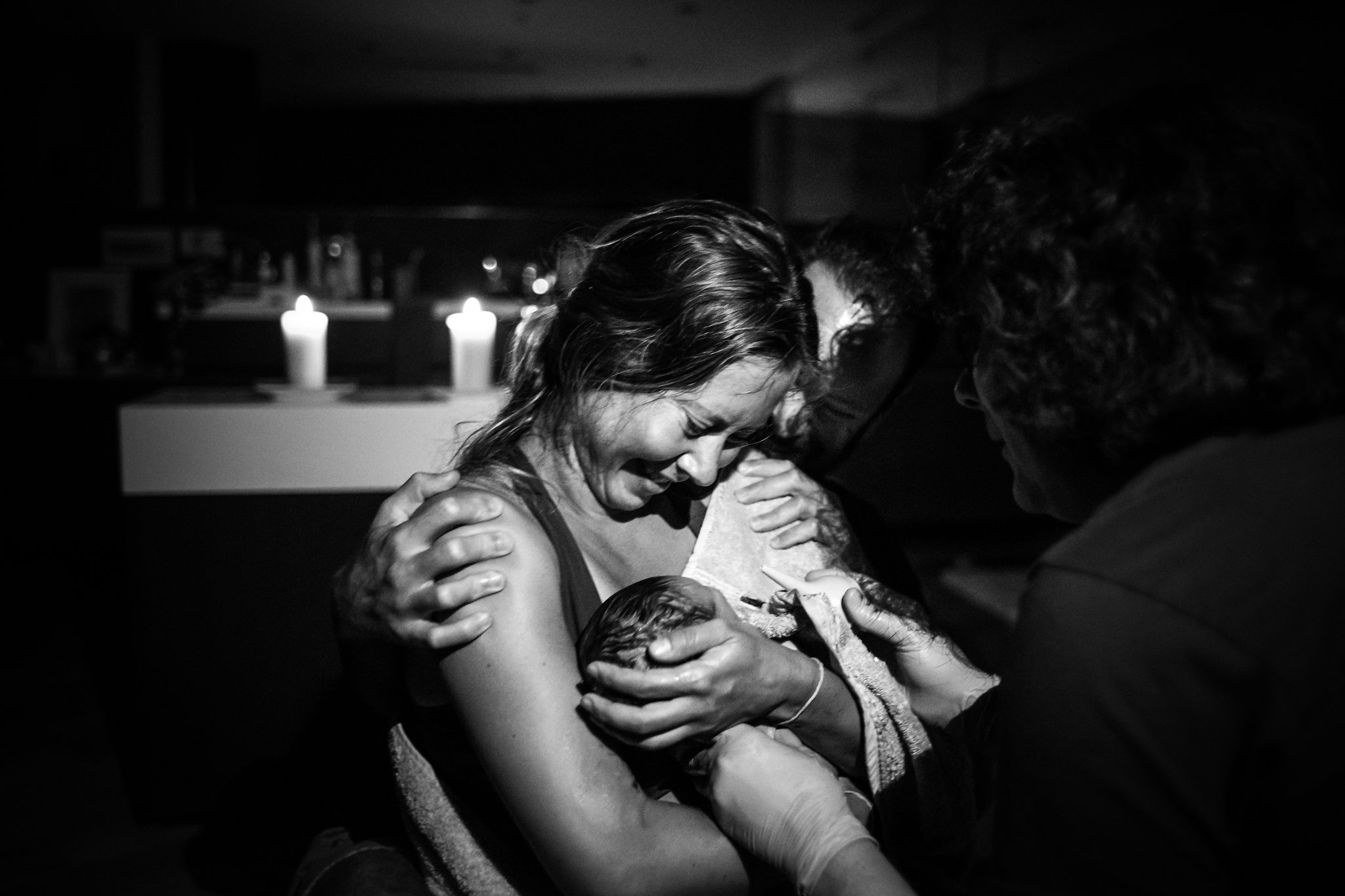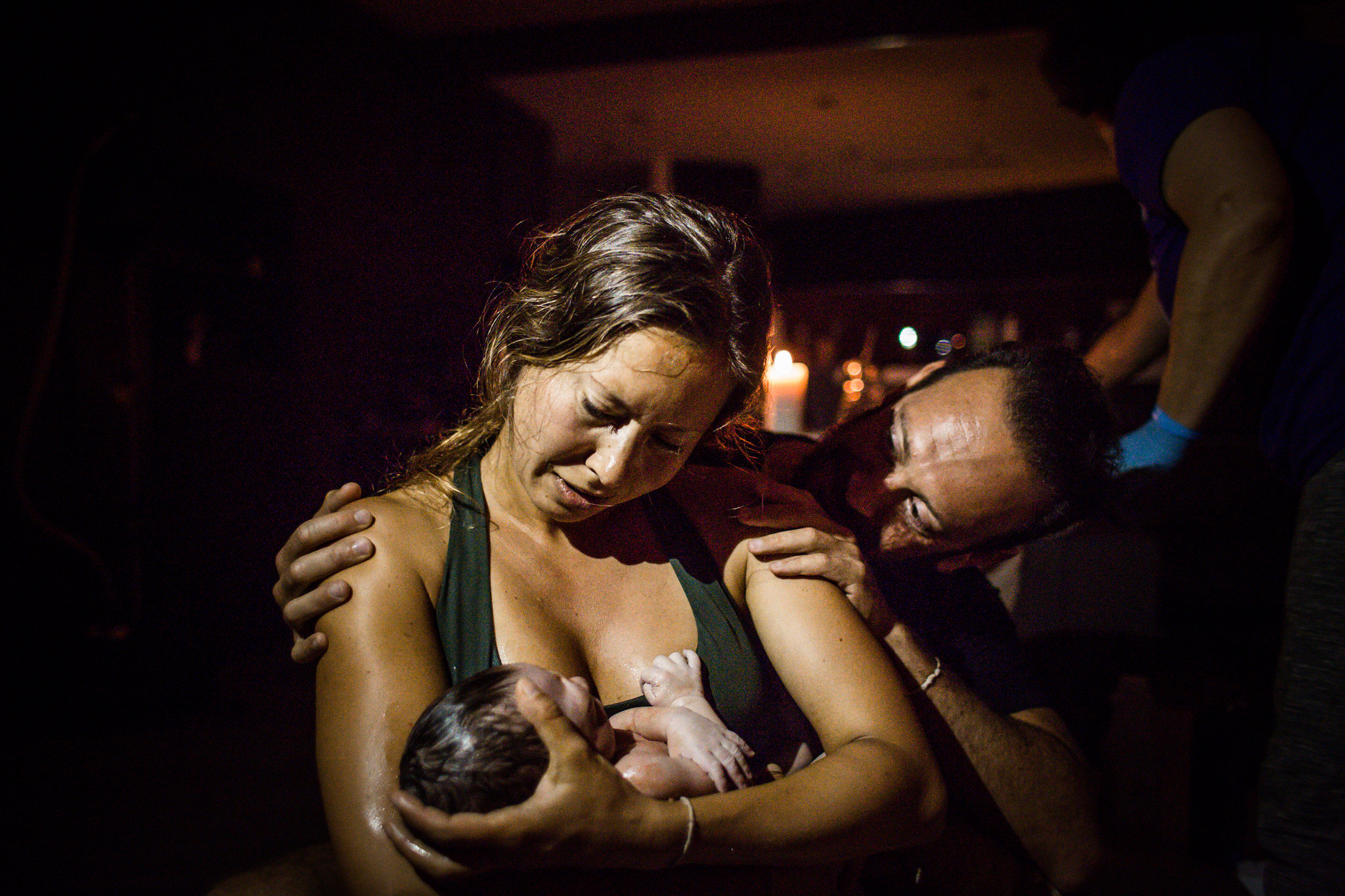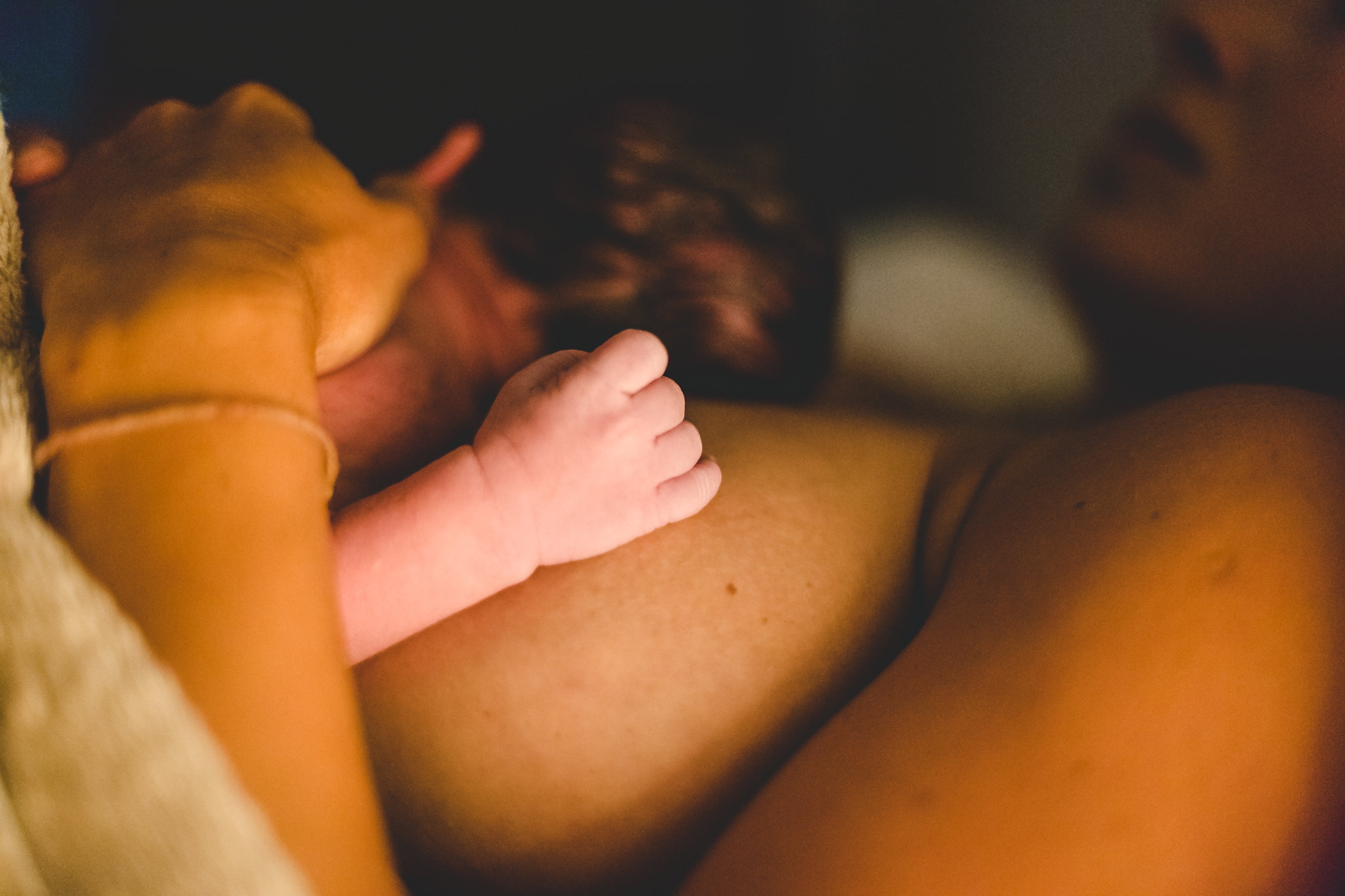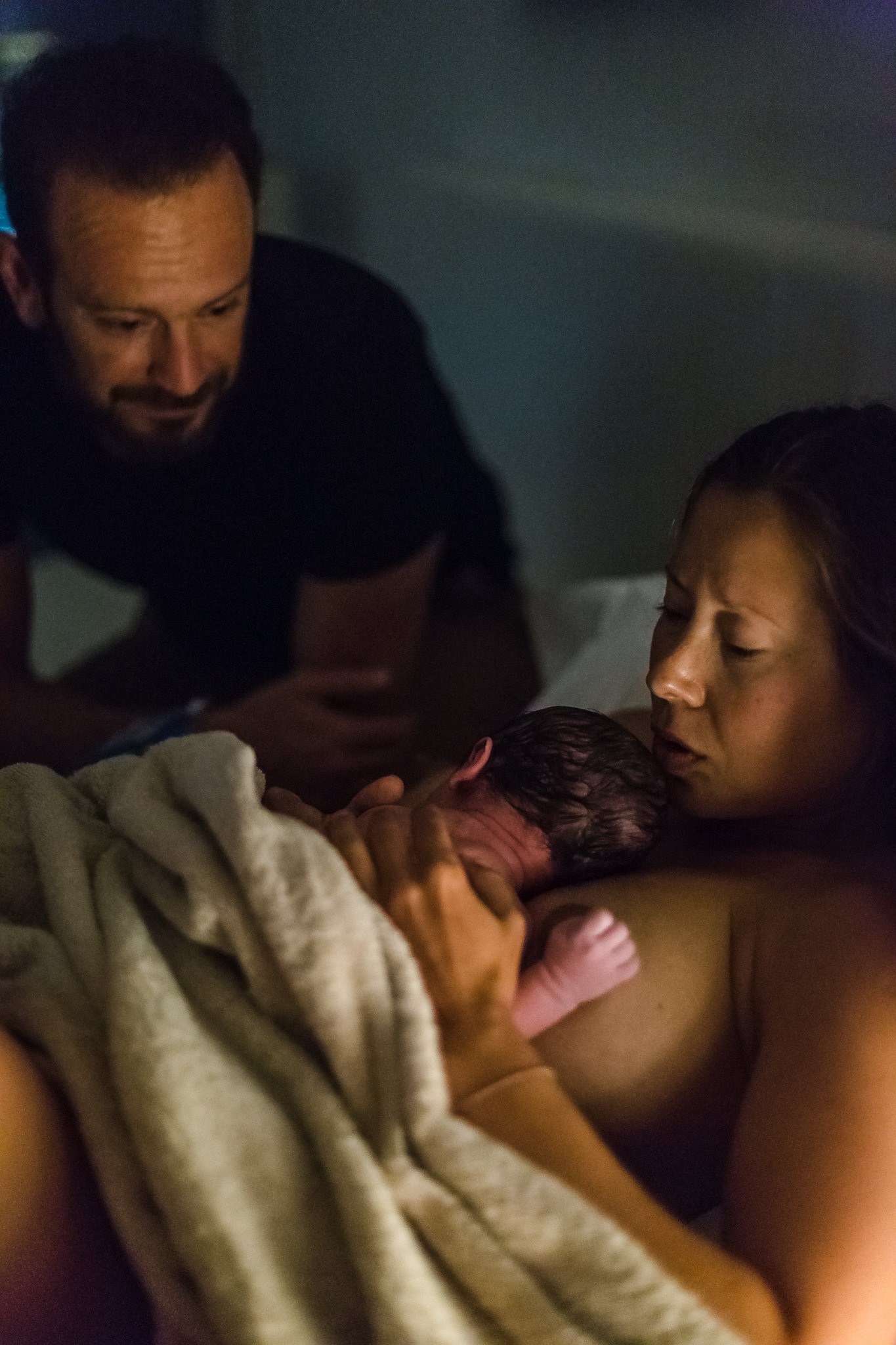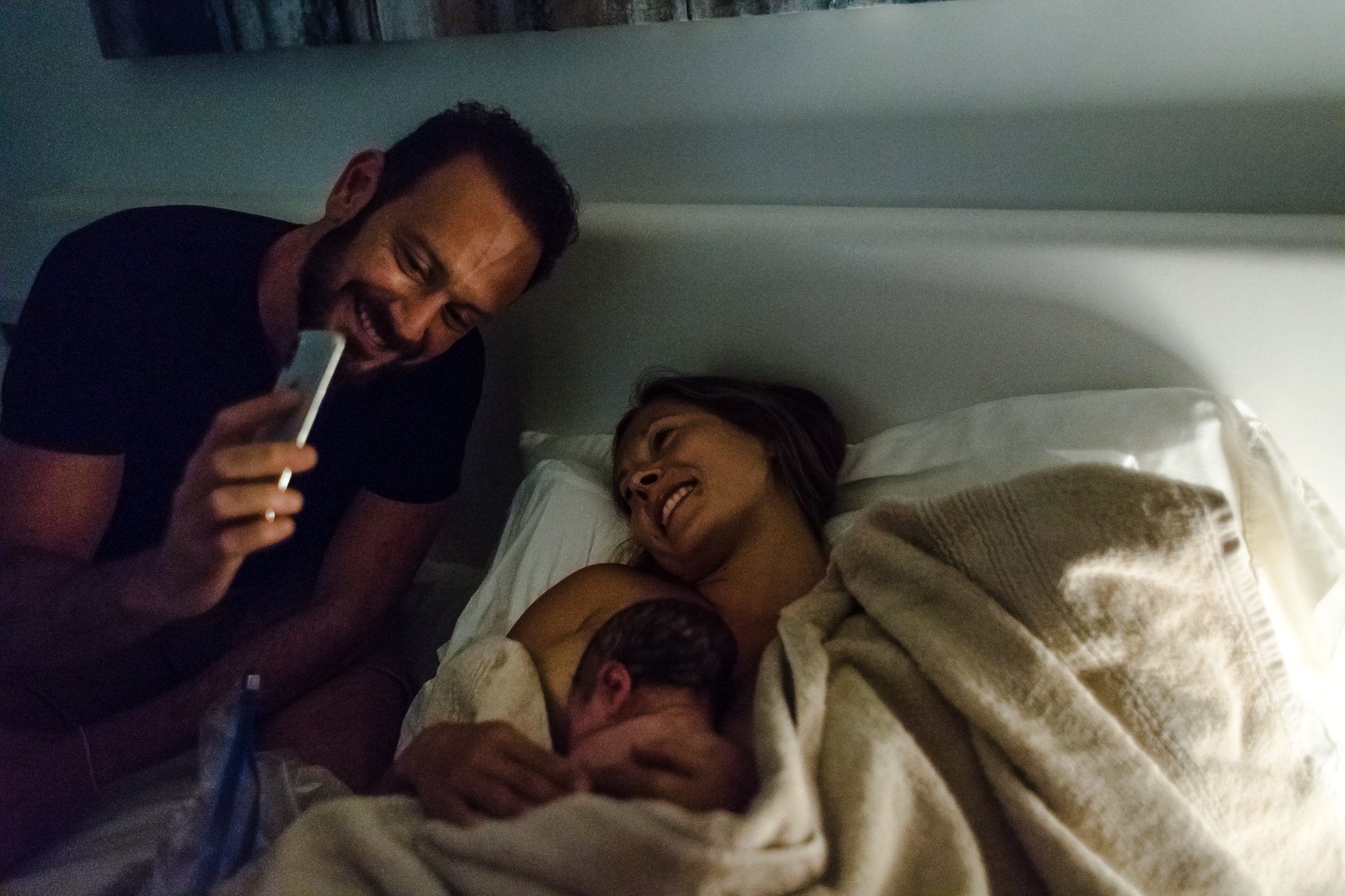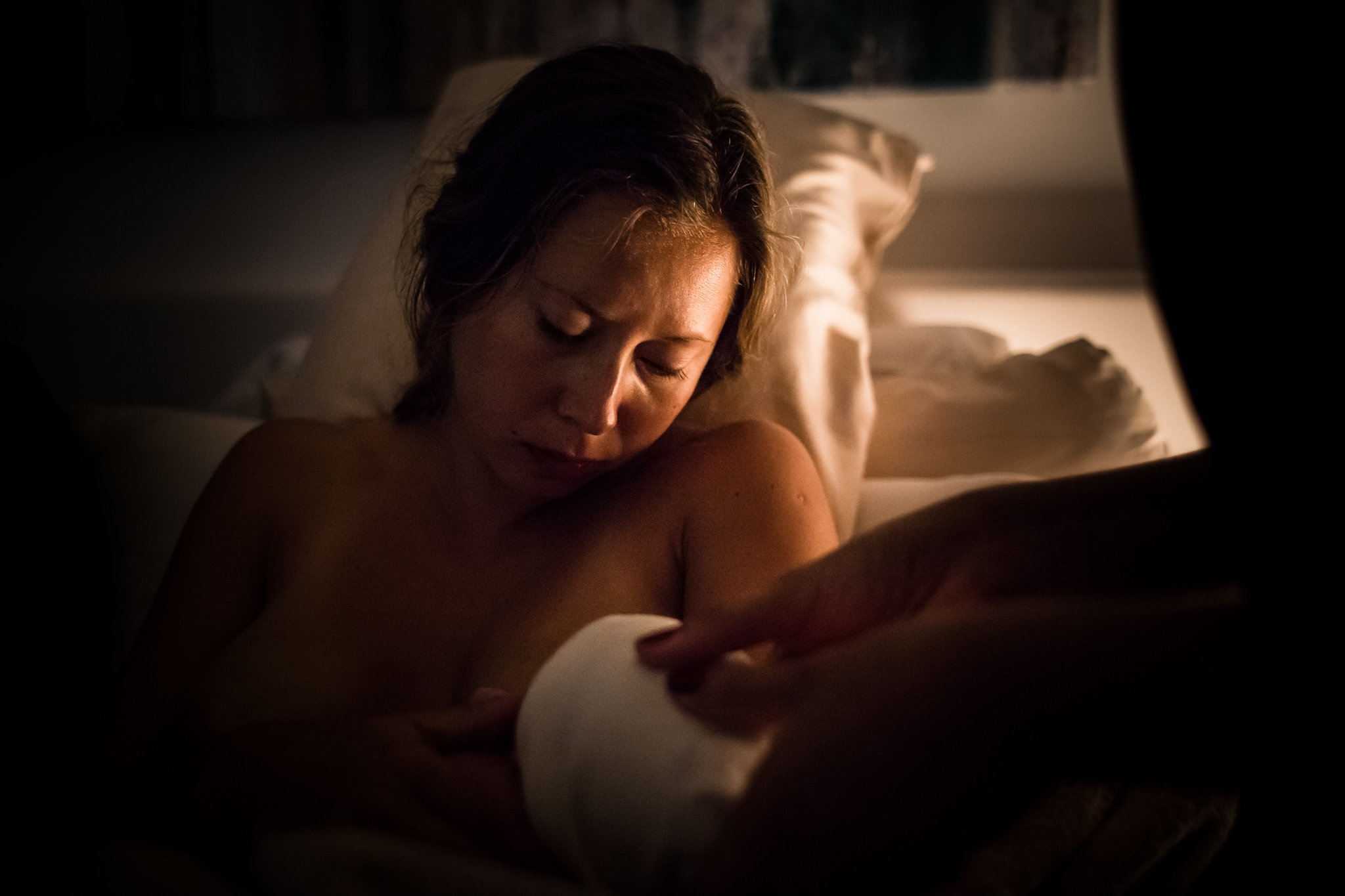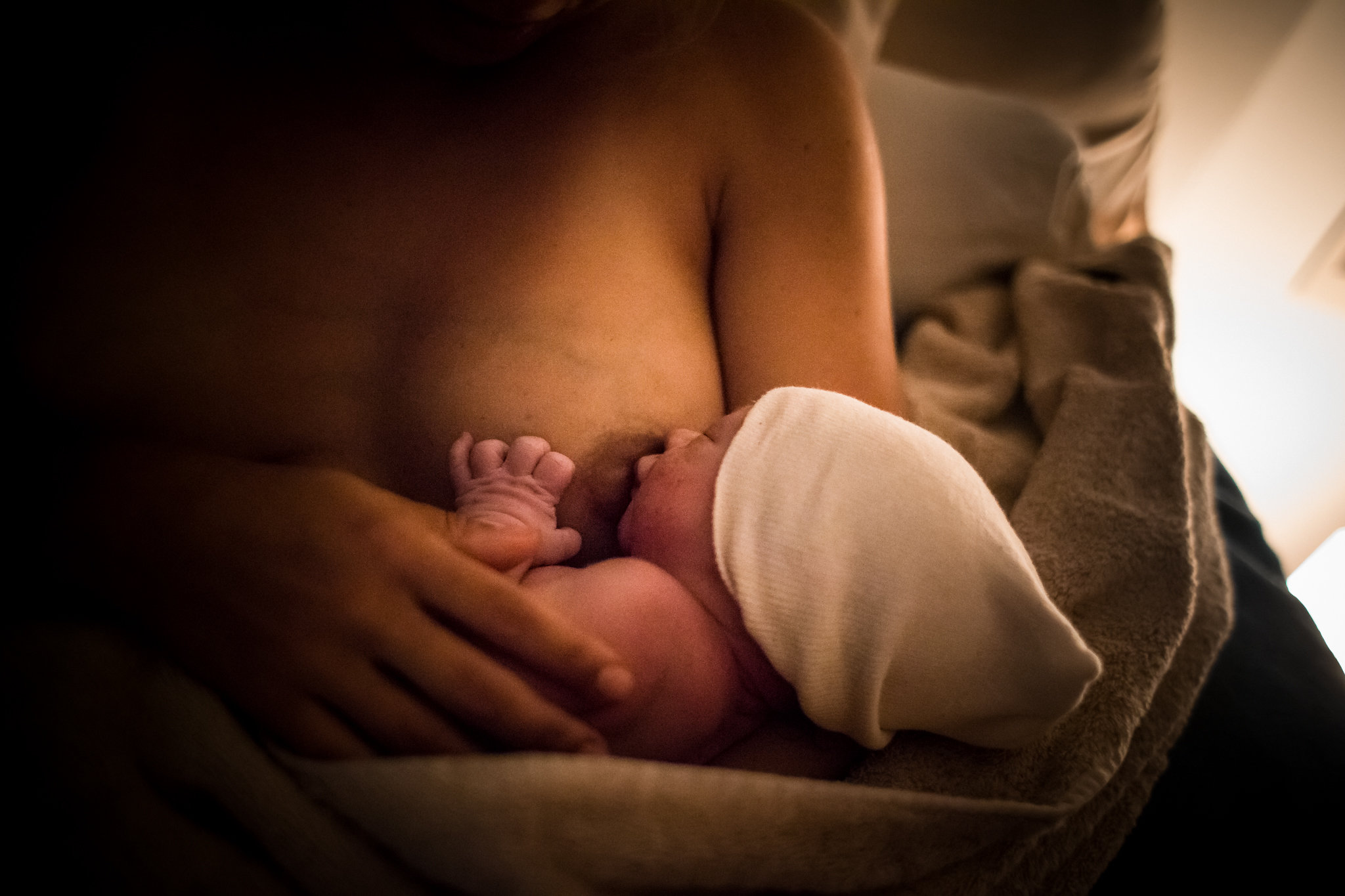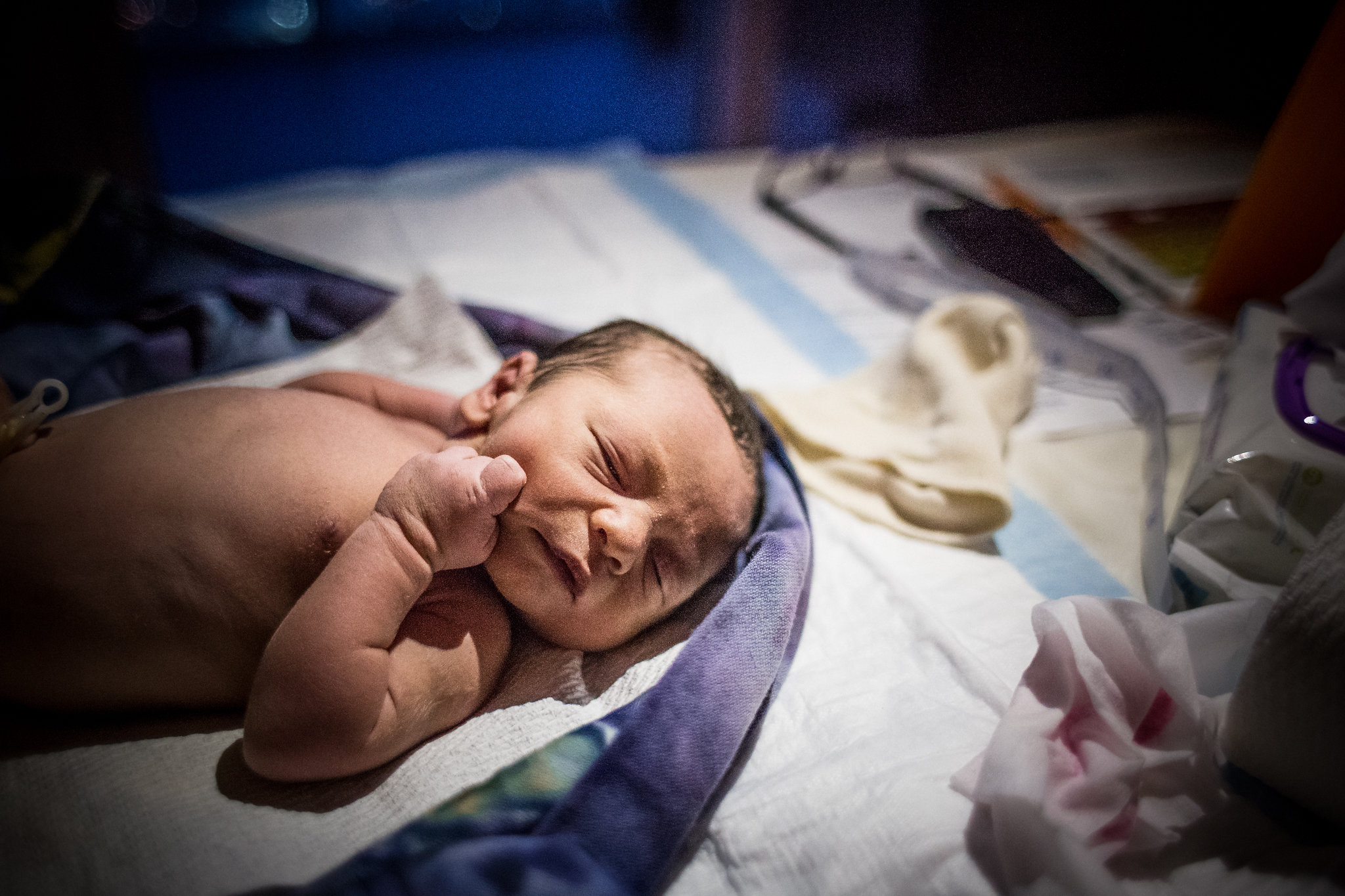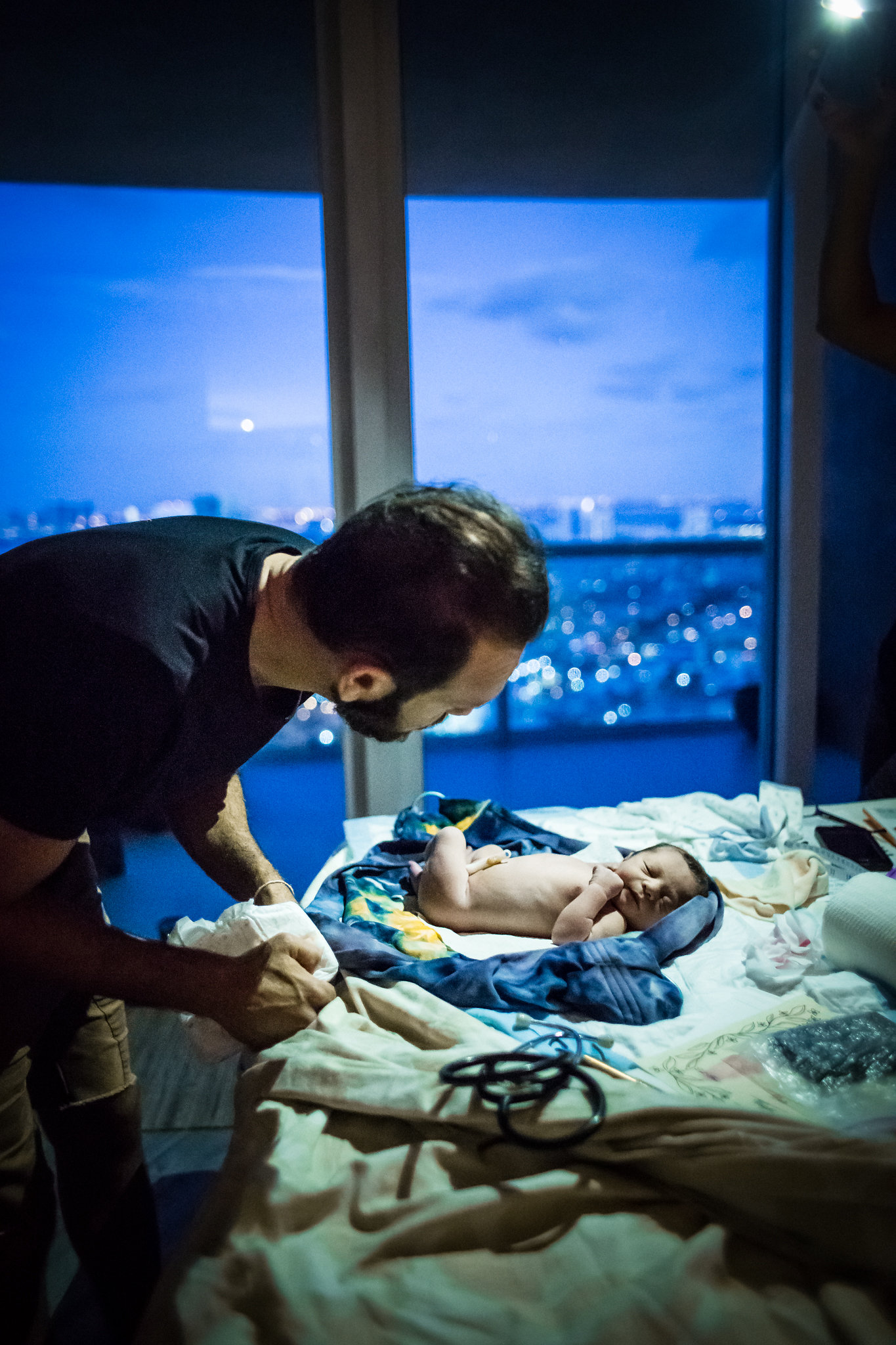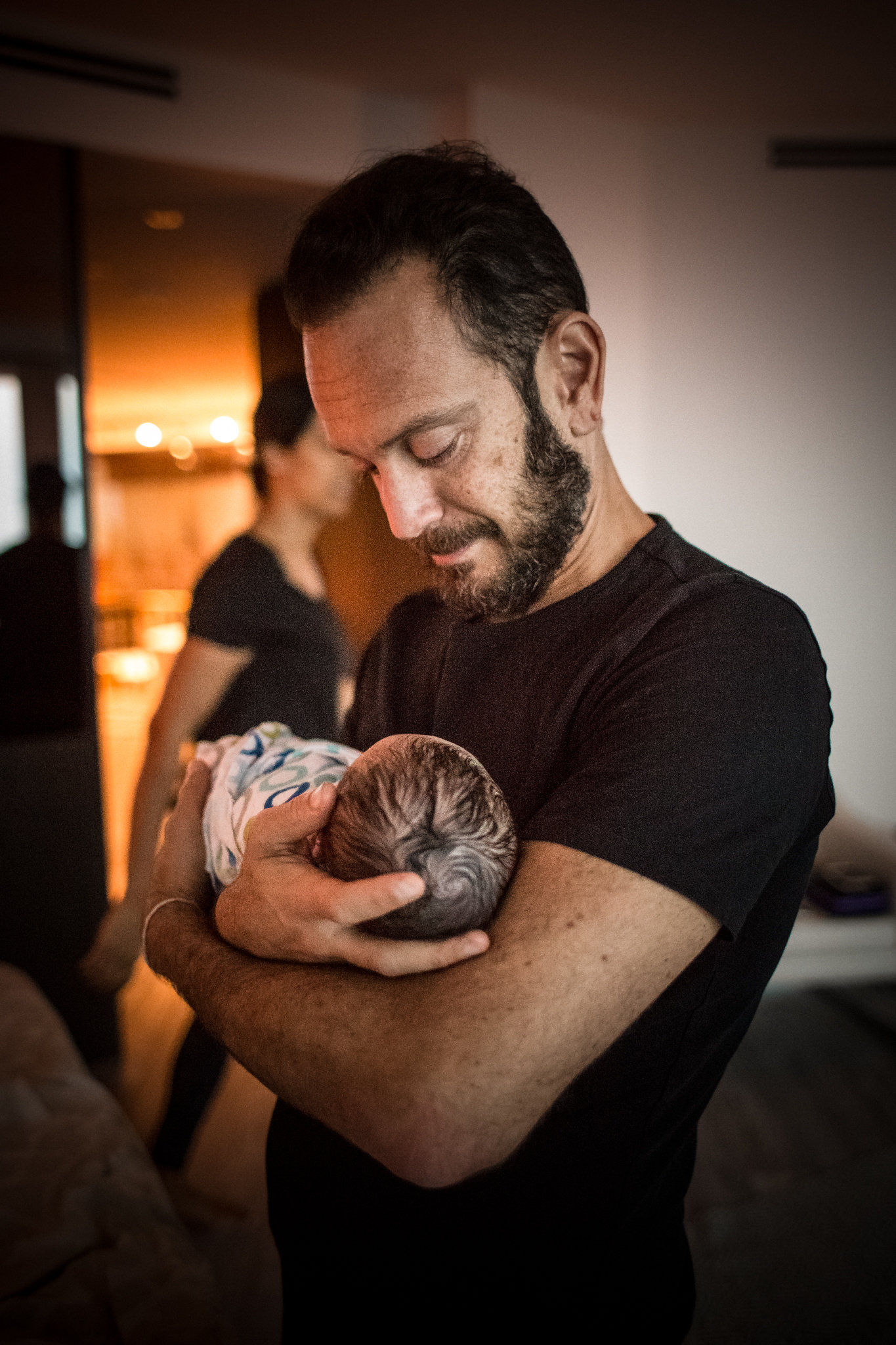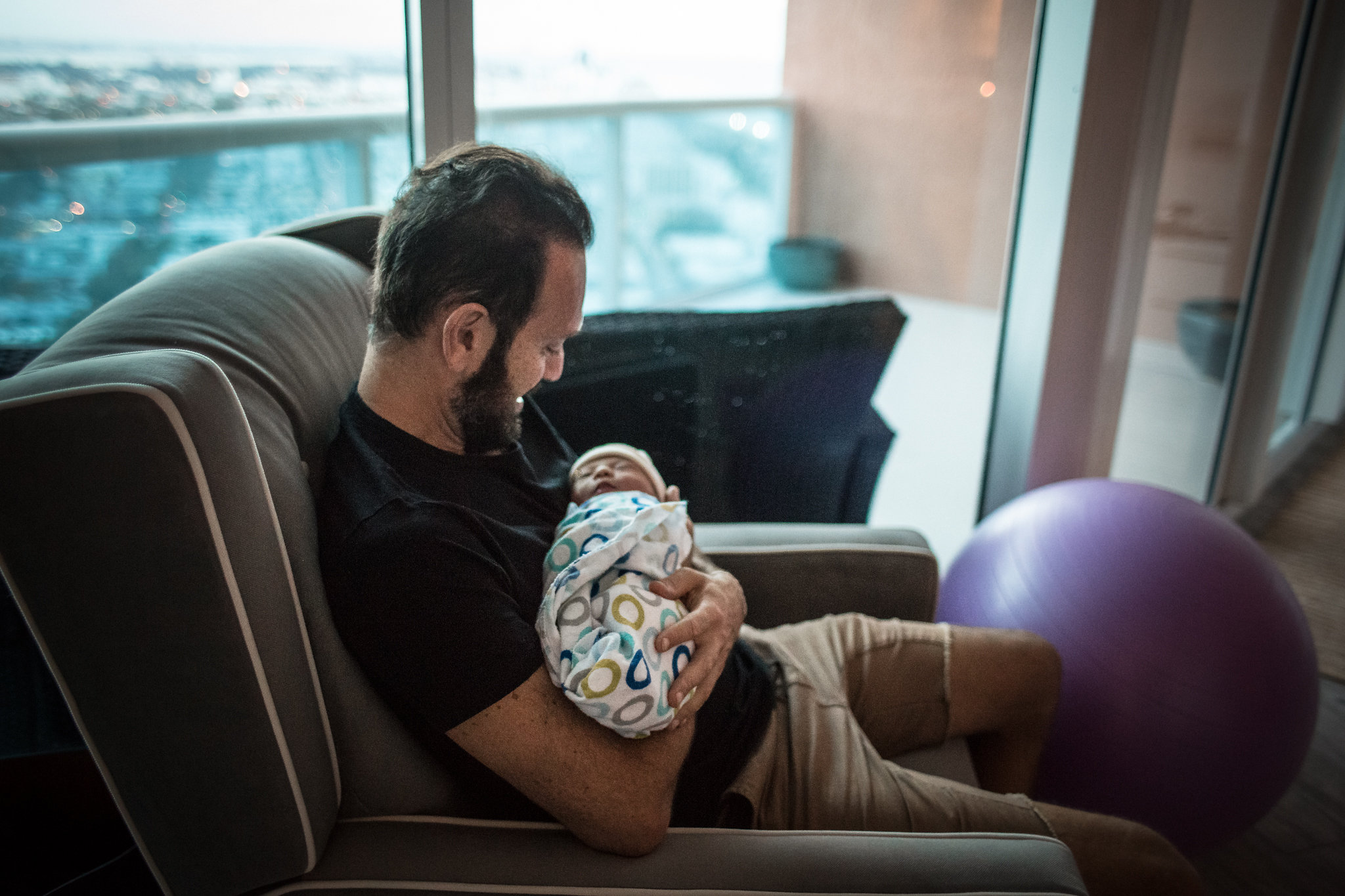I received a call from Shanitra mid-afternoon, her voice signaling that her home birth journey was unfolding rapidly. Dropping everything, I rushed to her Fort Lauderdale home, ready to capture the raw beauty of this intimate experience.
Calm Amidst Intensity: A Home Birth Guided by Intuition
Upon arriving at Shanitra's home, I was immediately struck by the peaceful atmosphere. Her midwife, the esteemed Christa West, moved with a calm assurance that instilled confidence in everyone present. Shanitra's family welcomed me with open arms, their warmth and excitement palpable. The personalized t-shirts she had lovingly created for her birth team revealed her thoughtful nature and set the stage for a truly connected and supportive birth experience.
Intimate Connection
Witnessing the unwavering support and love between Arndre and his wife as she embraces the power of labor in their tranquil home birth setting.
Empowering Labor: A Symphony of Support
Shanitra's labor was a testament to the strength and resilience of women. Supported by her loving family and the expert guidance of Christa and her midwifery students, she navigated each contraction with grace. Their constant presence and intuitive adjustments ensured Shanitra's comfort and progress, demonstrating the power of collaborative midwifery care.
A Breathtaking Arrival: Baby is Born!
As we gathered in the hallway, sharing stories and laughter, the moment of birth arrived swiftly. Water broke, and within moments, baby crowned. Dad, guided by Dawna’s calm instructions, caught his baby with unwavering love. It was a scene of pure joy, relief, and profound connection.
Relief.
I don’t think I have ever seen two midwifery students at a home birth plus the main midwife. I LOVED it. I LOVED everything I got to hear and learn. Makes me want to go through midwifery school just to learn. (not to be a midwife). I am obsessed with the beautiful information.
THIS WAS THE RADDEST FREAKIN' MOMENT when Dawna laid baby girl out for me to capture the POWERFUL organ that GAVE THIS CHILD LIFE! There is NOTHING AS AMAZING as the power of the placenta!! You're either freaking out together with me about how amazing this is, how you WISH you had this exact photo of your babies (GIRL I HEAR YOU and I WISH I had this photo of my girls and their placentas - I never even saw how my first daughter's placenta even looked it) OR MAYBE YOU'RE LOW KEY FREAKING OUT THAT THIS IMAGE IS A LITTLE GROSS. Let me be the first birth worker to tell you: THAT'S OK! It's important to hold space for the fact that nobody is expecting you to be a birth advocate from the very first time you're exposed to birth. It's OK if the first time you saw a placenta or heard about placenta consumption made you cringe a little bit. I TOTALLY DID! You're NOT alone. ✋✋✋ What the difference for me personally was, when I got pregnant with my second child, and I thought back on my post partum with my first child and I realized how difficult PPD (post partum depression) was for me. I didn't want to go through that again. I began my research. When I learned placenta encapsulation (dehydrate placenta > encapsulate the powdered substance.... all in a sterile process) can help you have a defense against that and other post partum challenges, and I confirmed it was sanitary/not dangerous - I was instantly on board. (SPOILER: I totally couldn't have done a 2nd post partum with my second baby without my placenta pills) But besides the obvious benefit to YOU, this is a powerful organ your baby and your body grows and produces as a powerhouse of nutrients to grow your baby up until the very first moment your baby takes their very first breath in your arms. That is mind blowing. There is NO OTHER organ in existence that can do this. #placenta
Have you ever just fallen in love with a kid! I love this little boy! I am so lucky and grateful I convinced him to give his mama a kiss on her cheek (when he thought no way!)
I just love this so much






